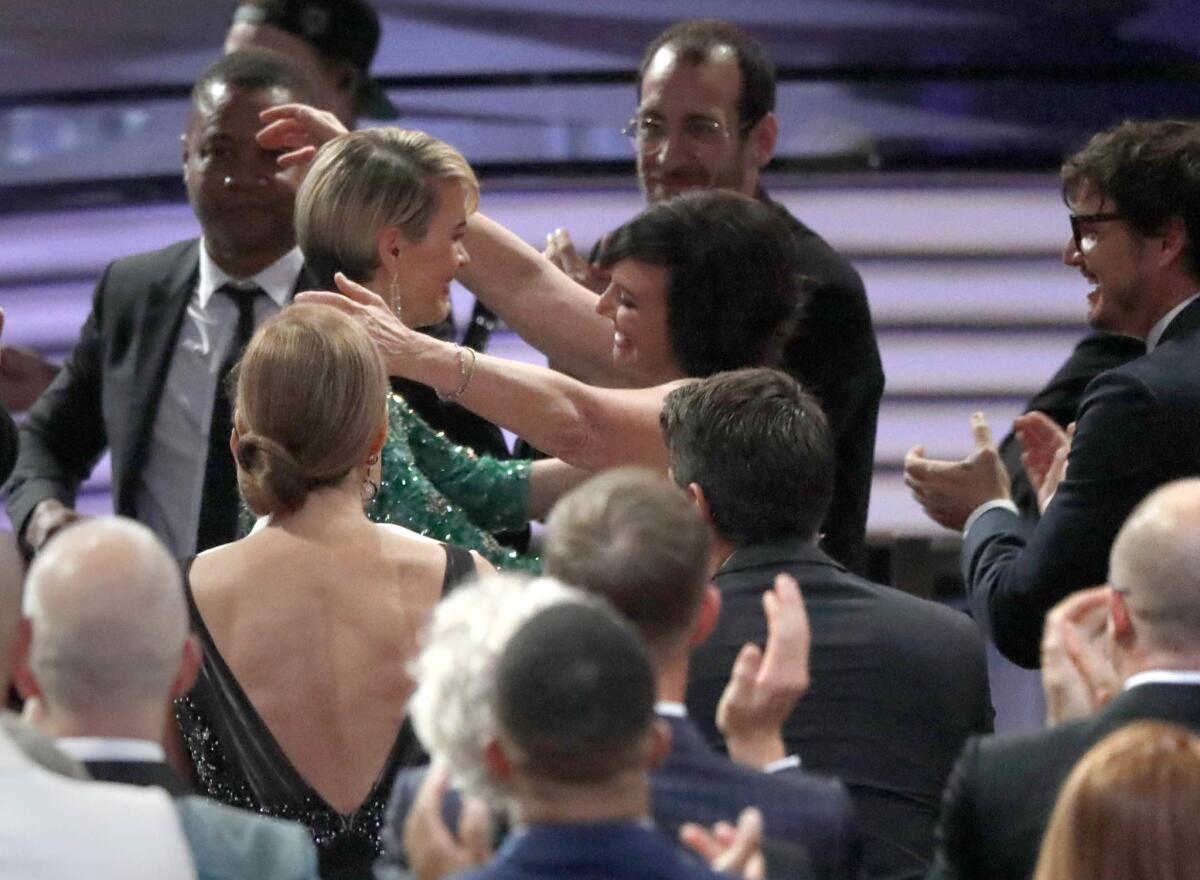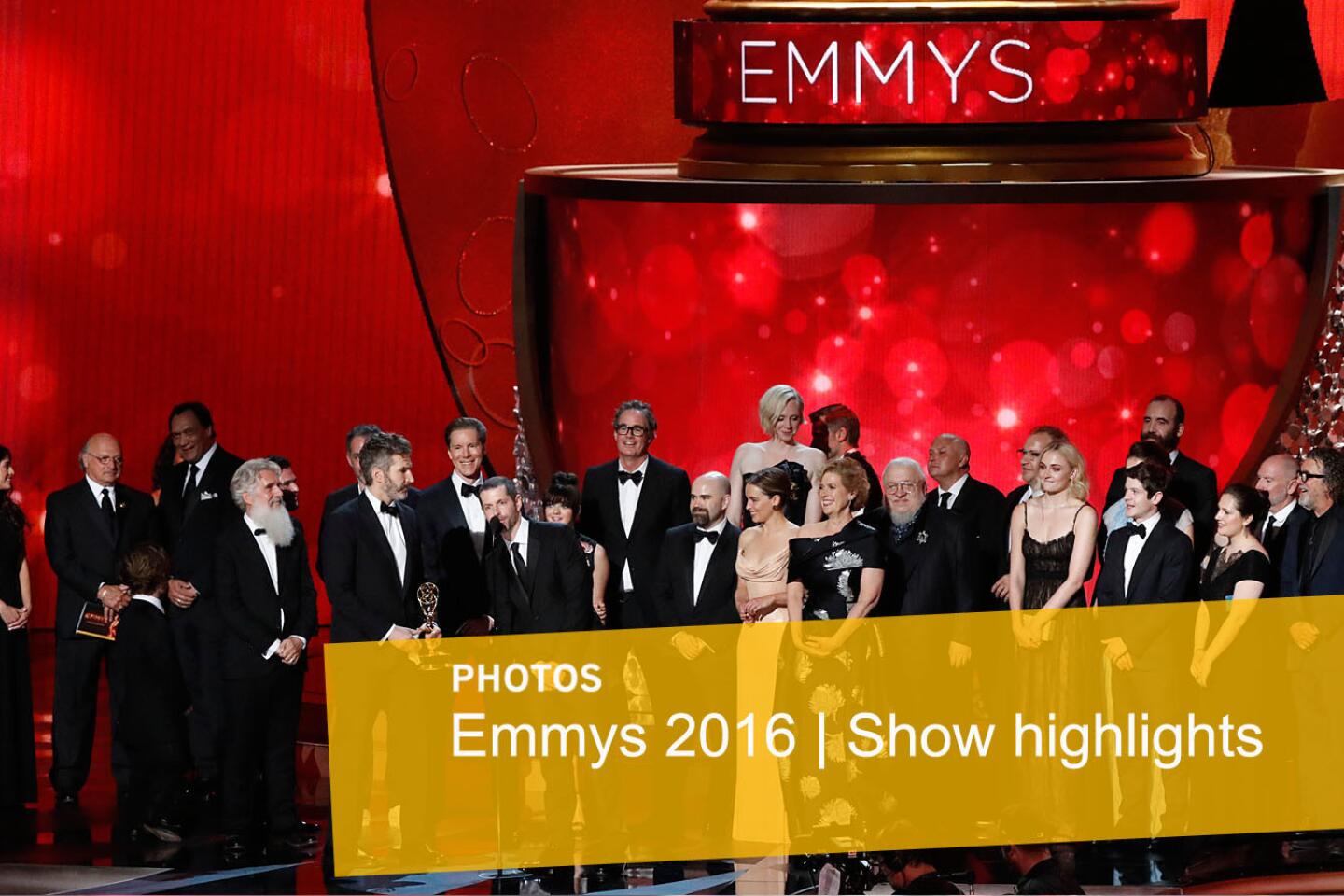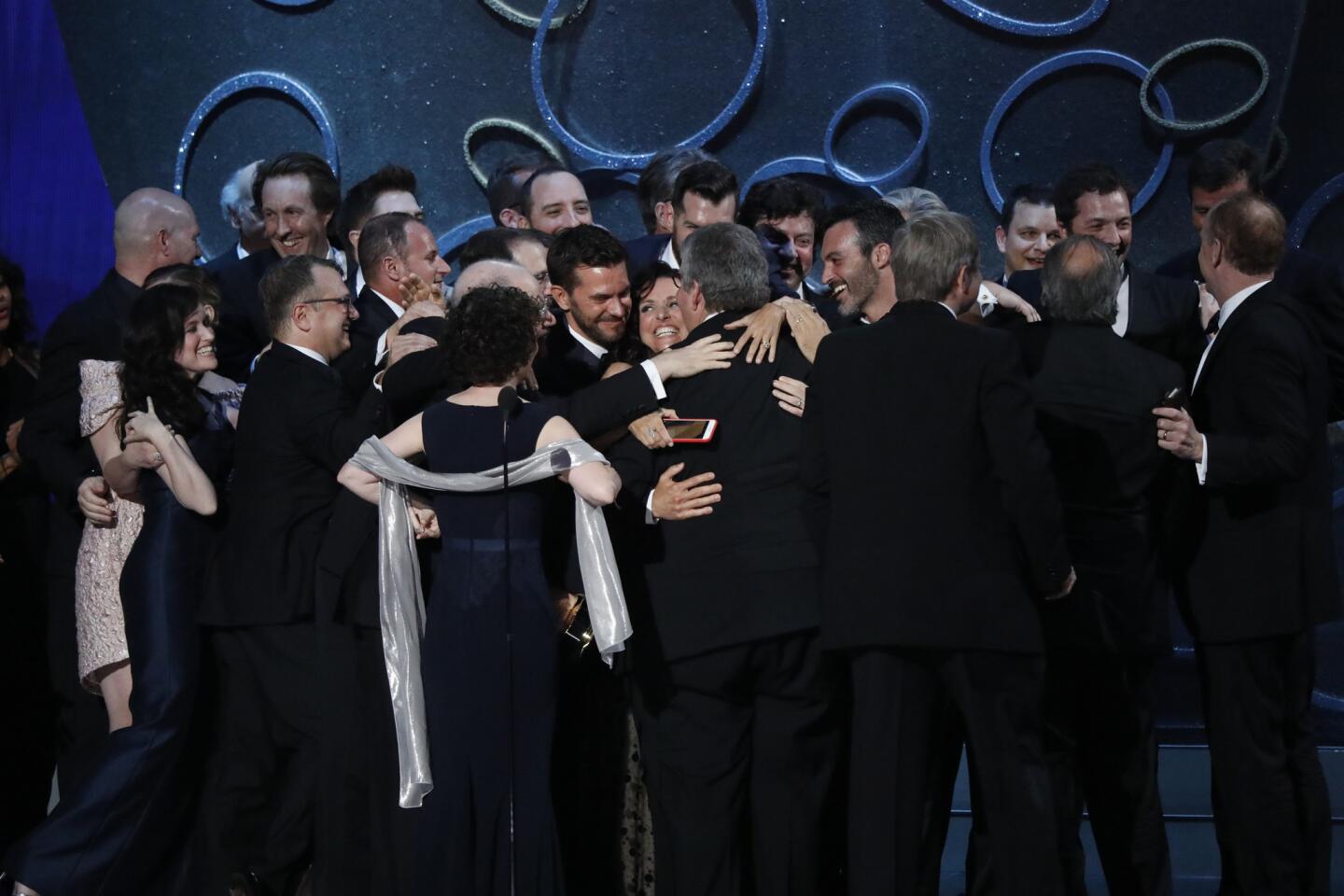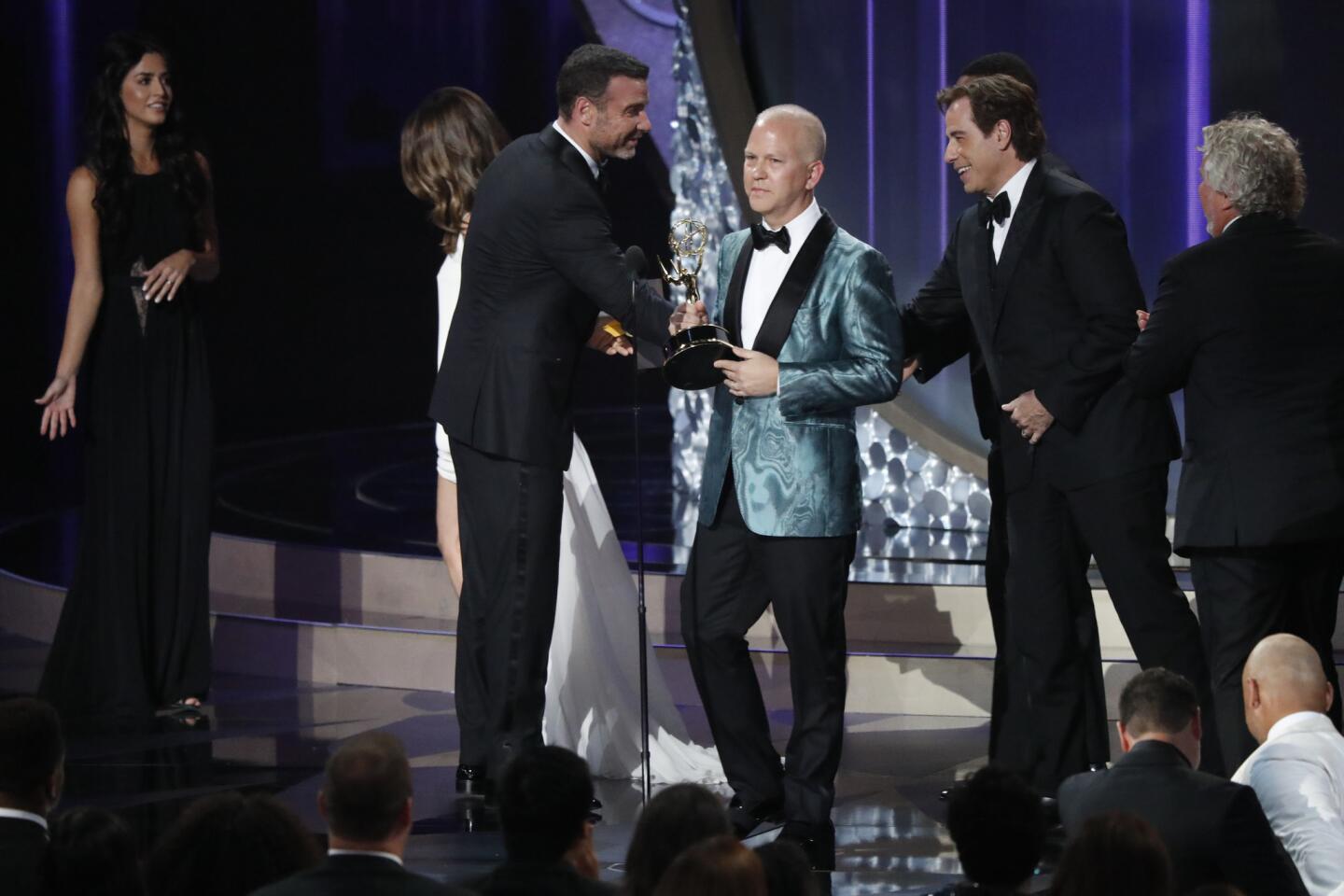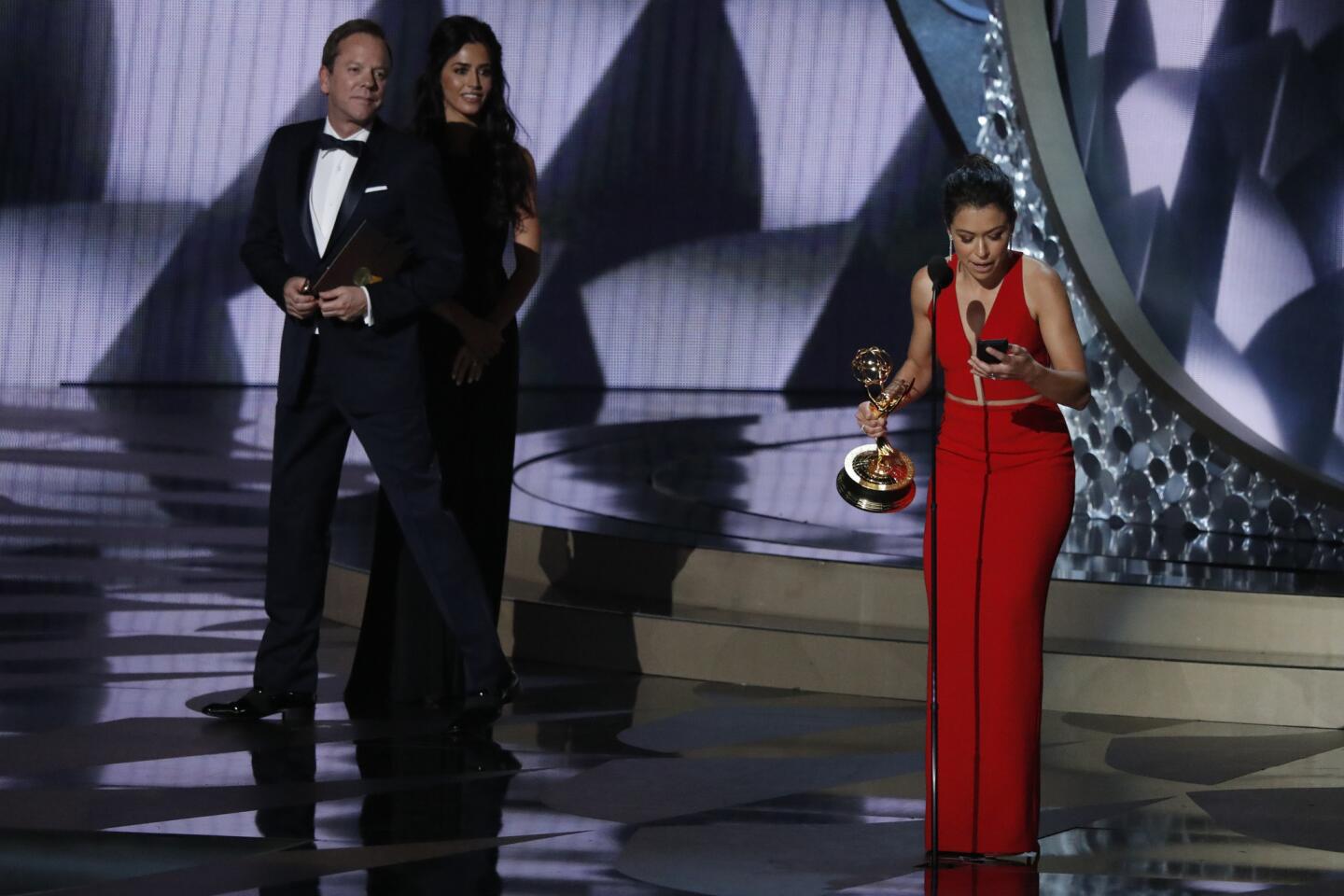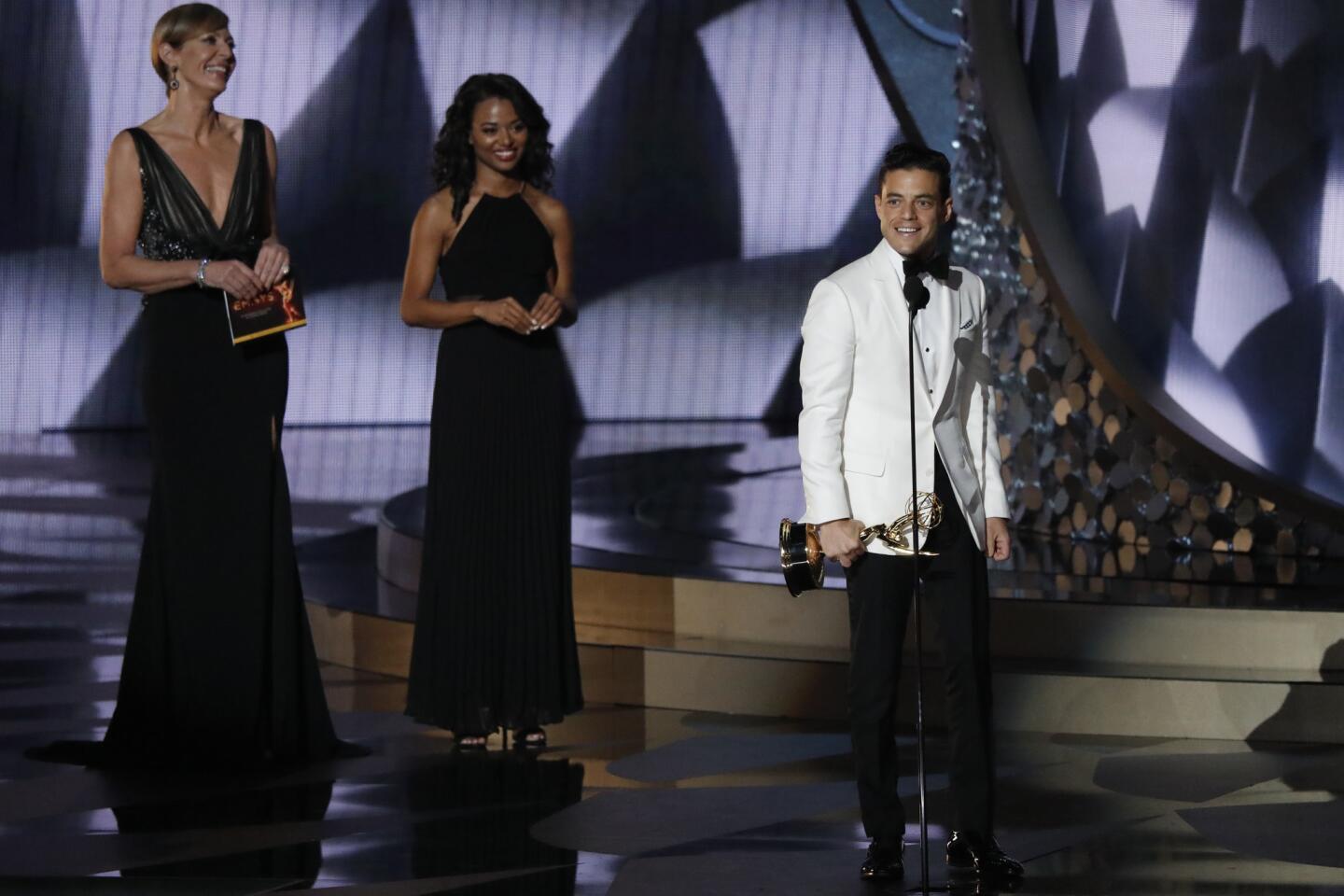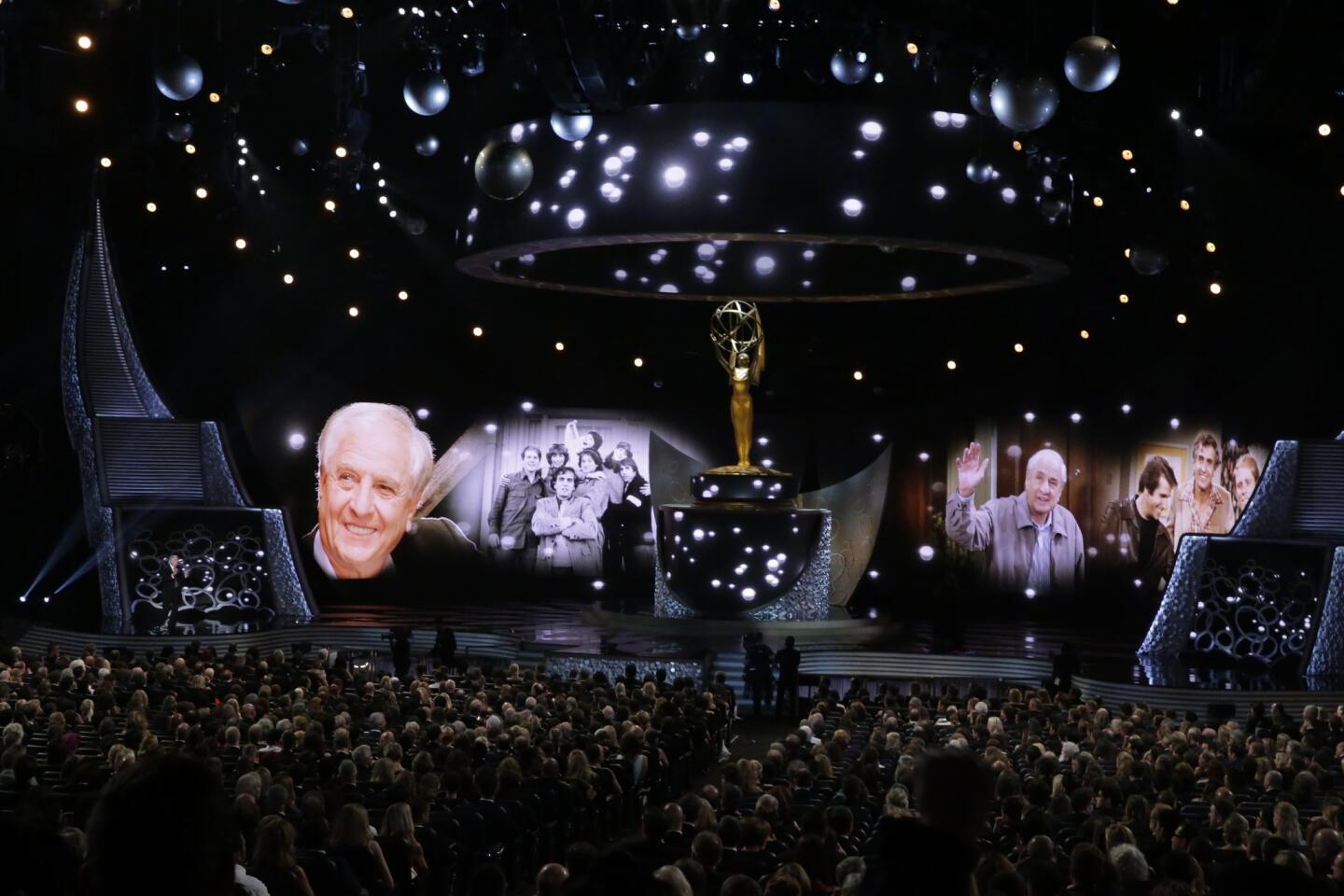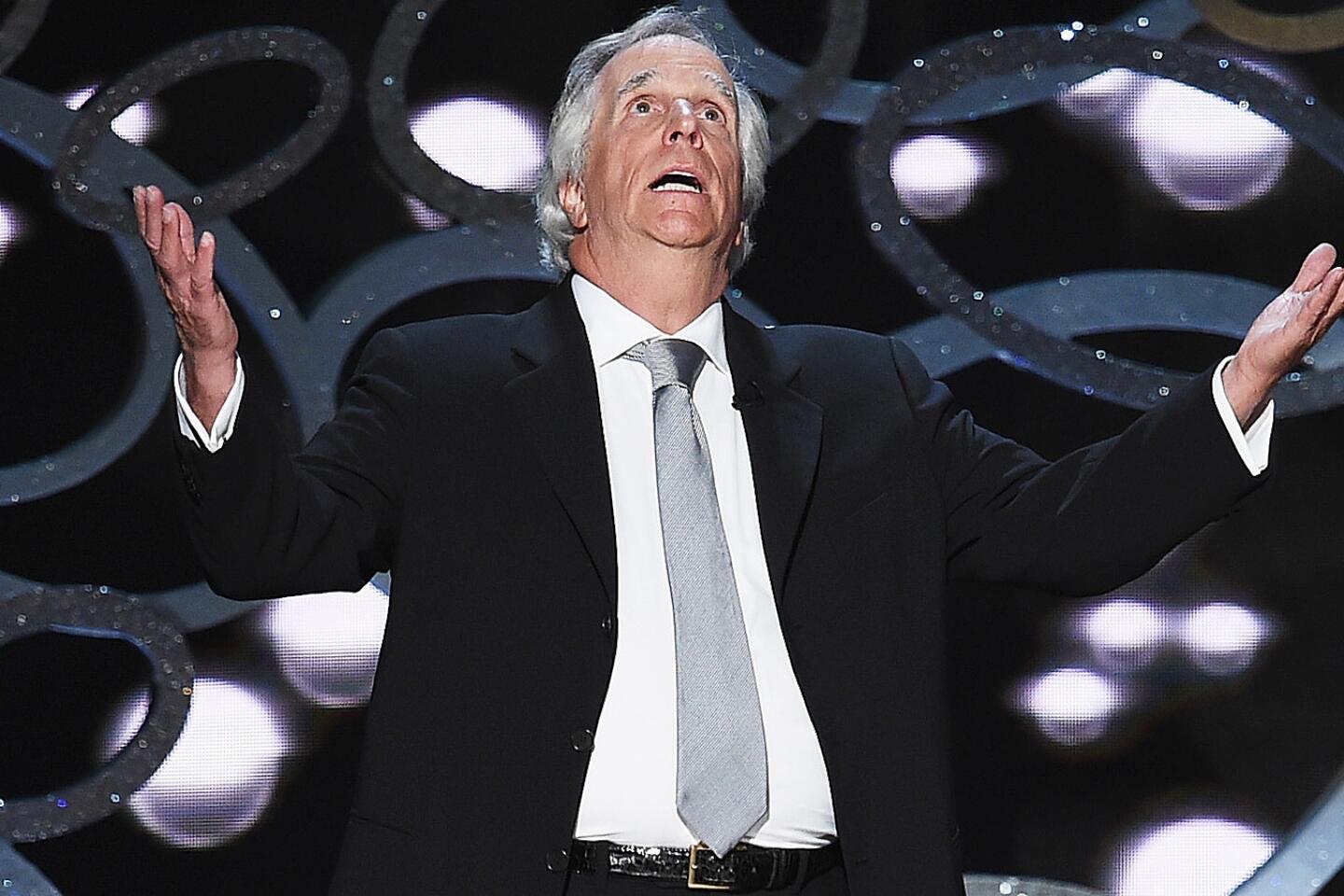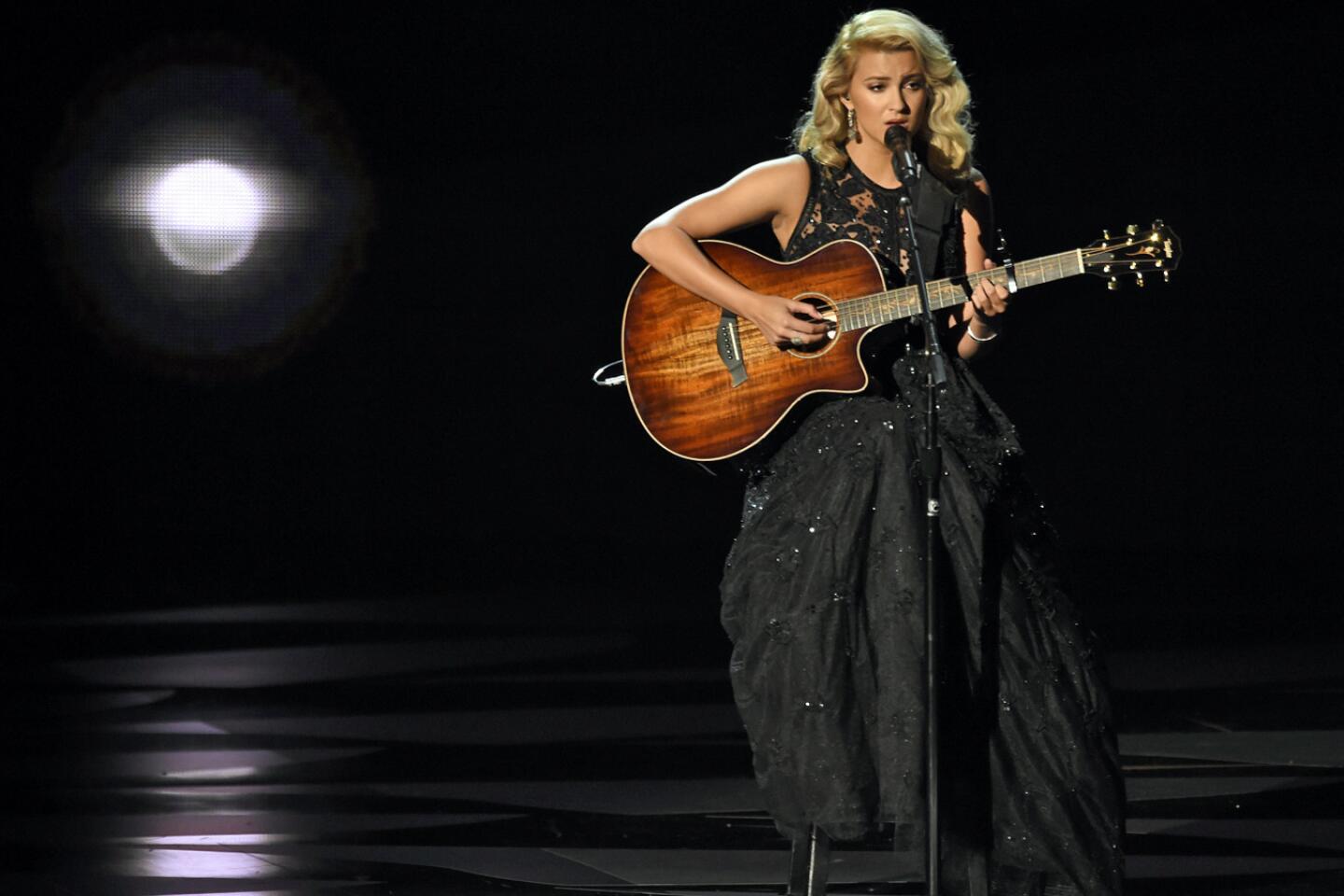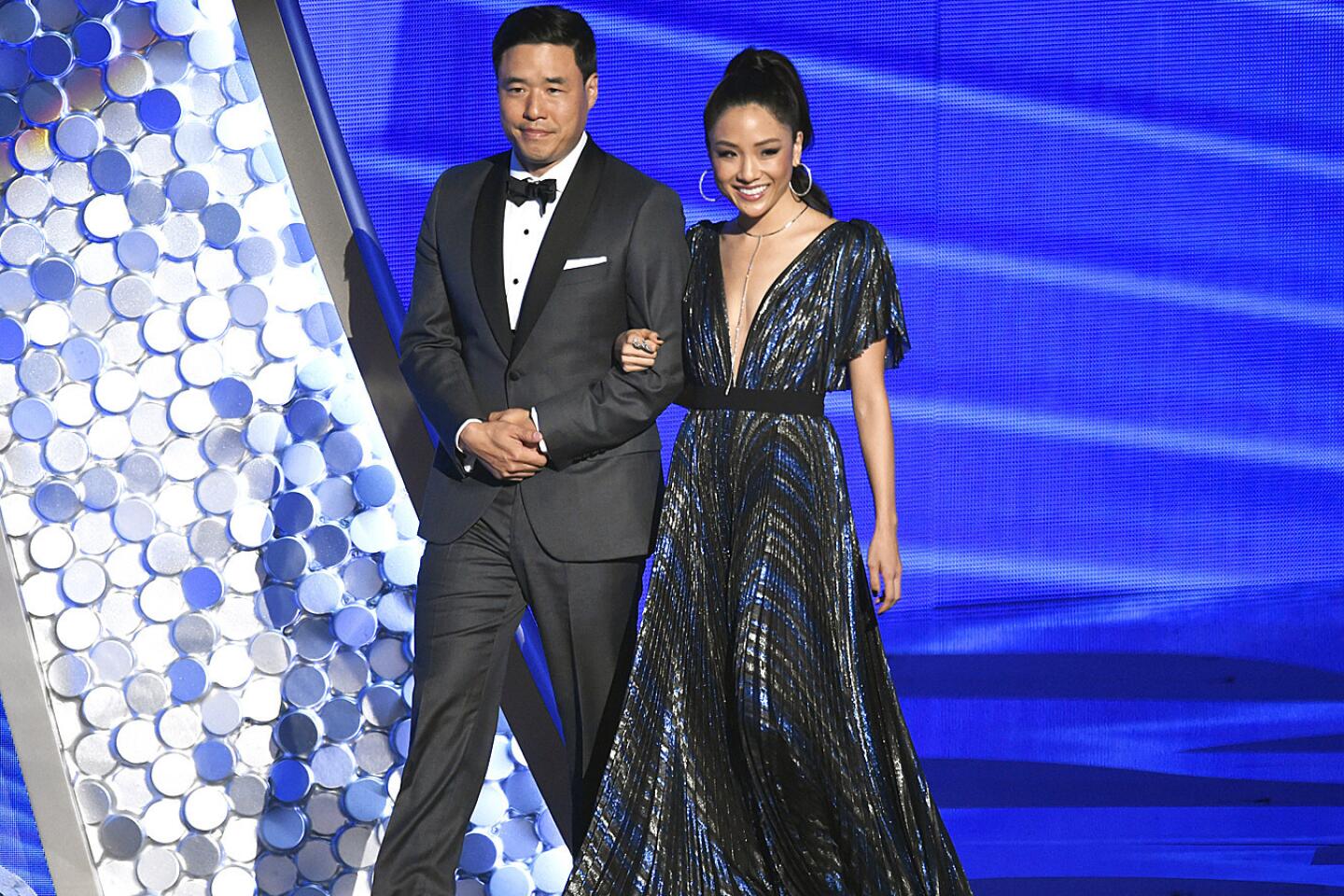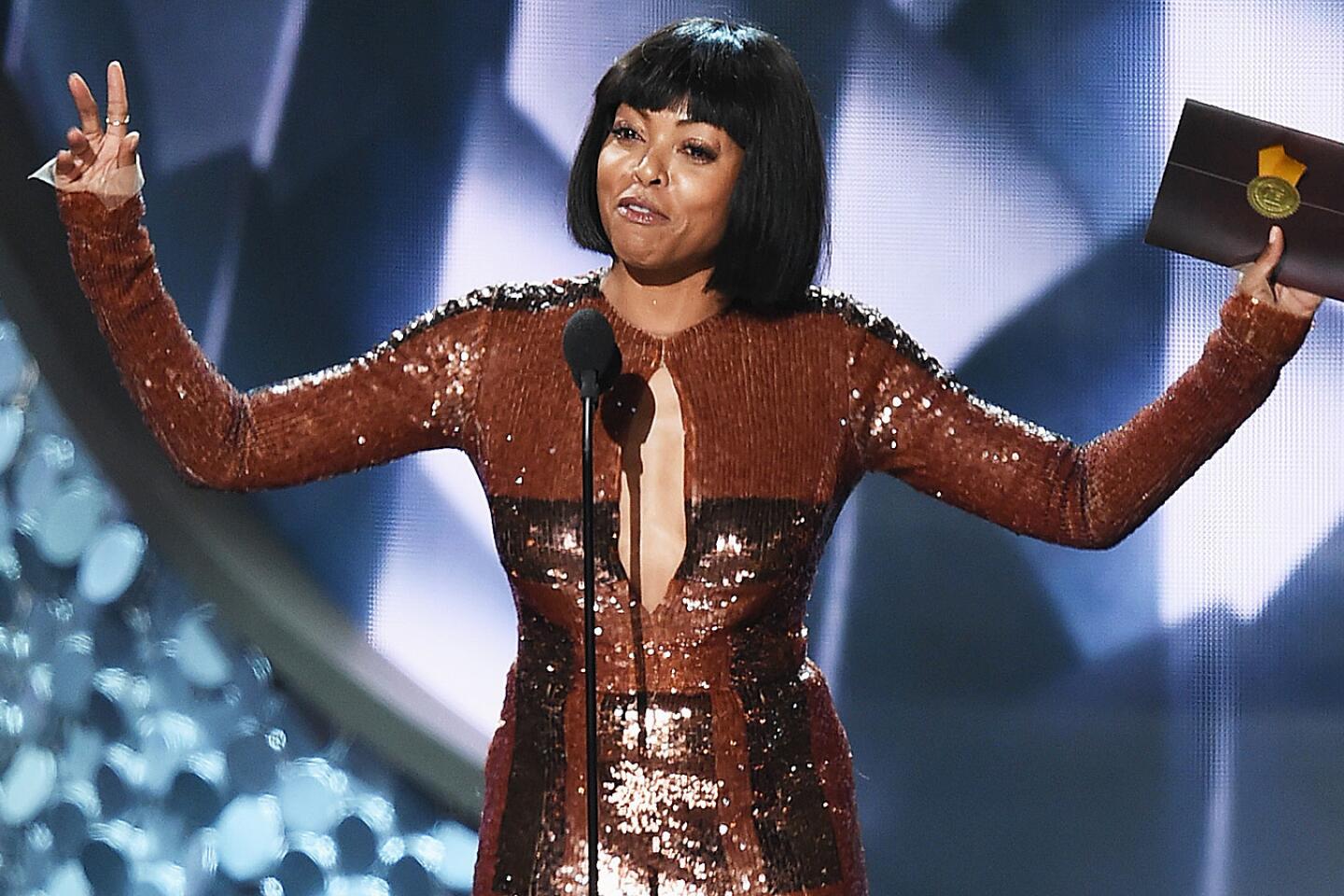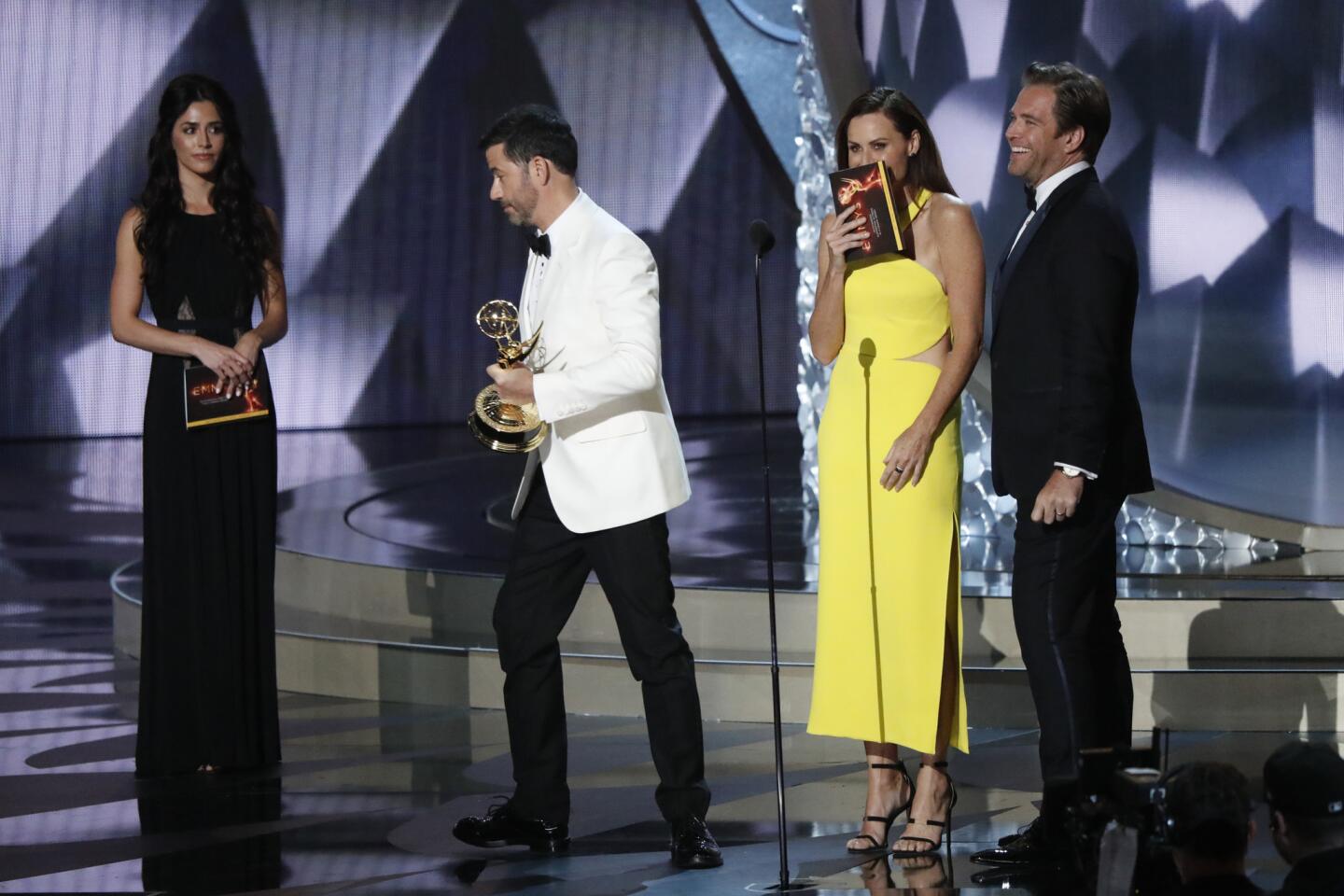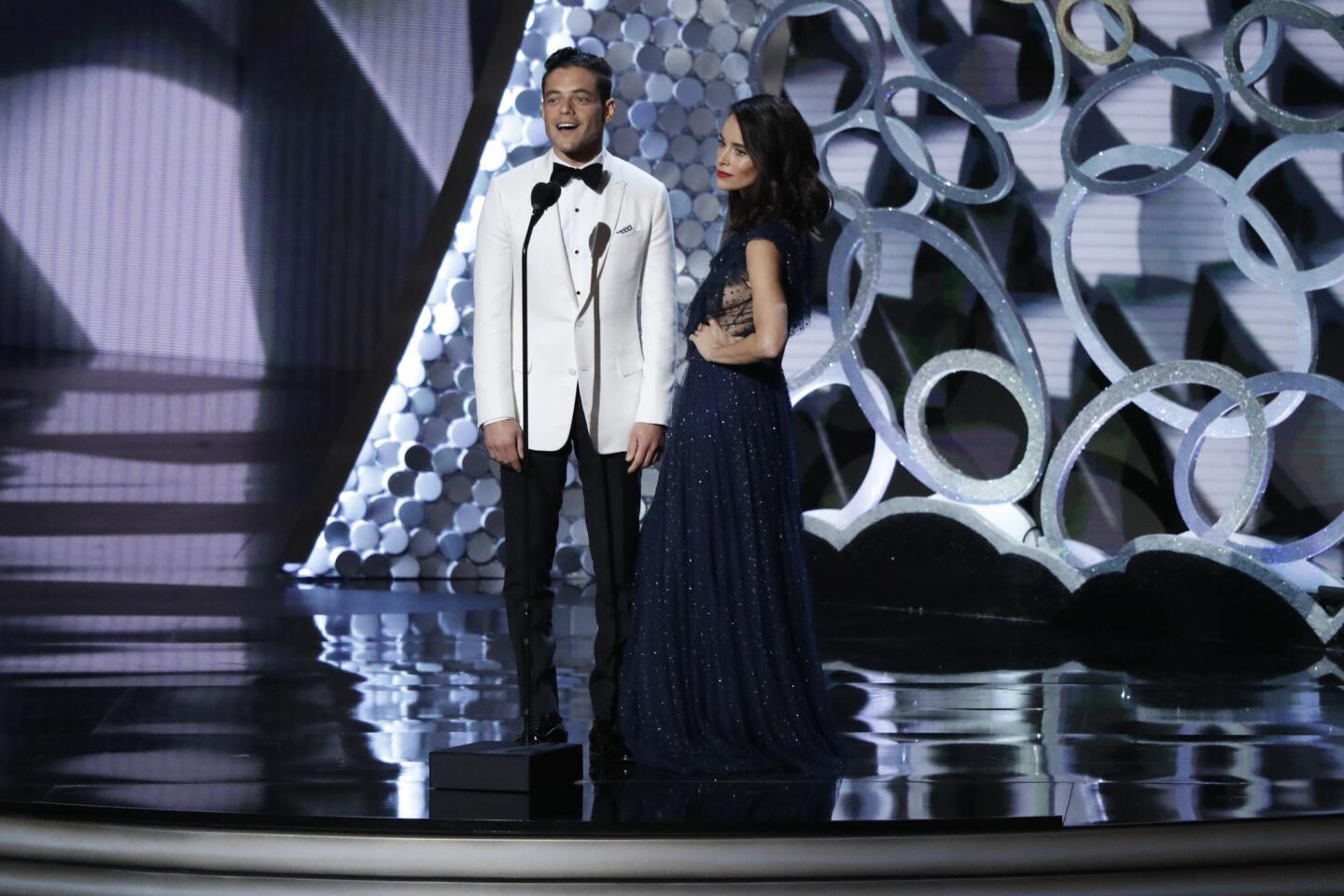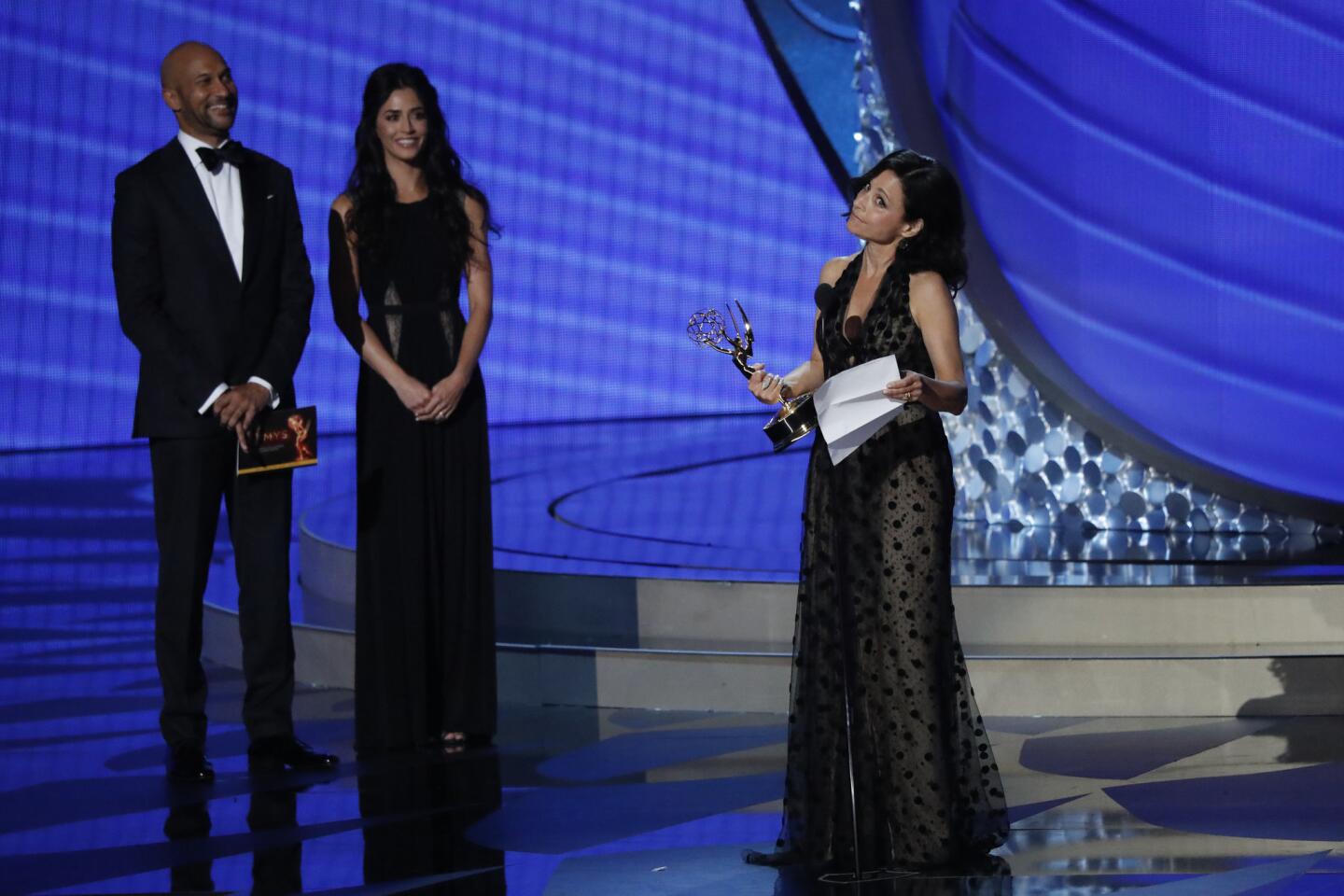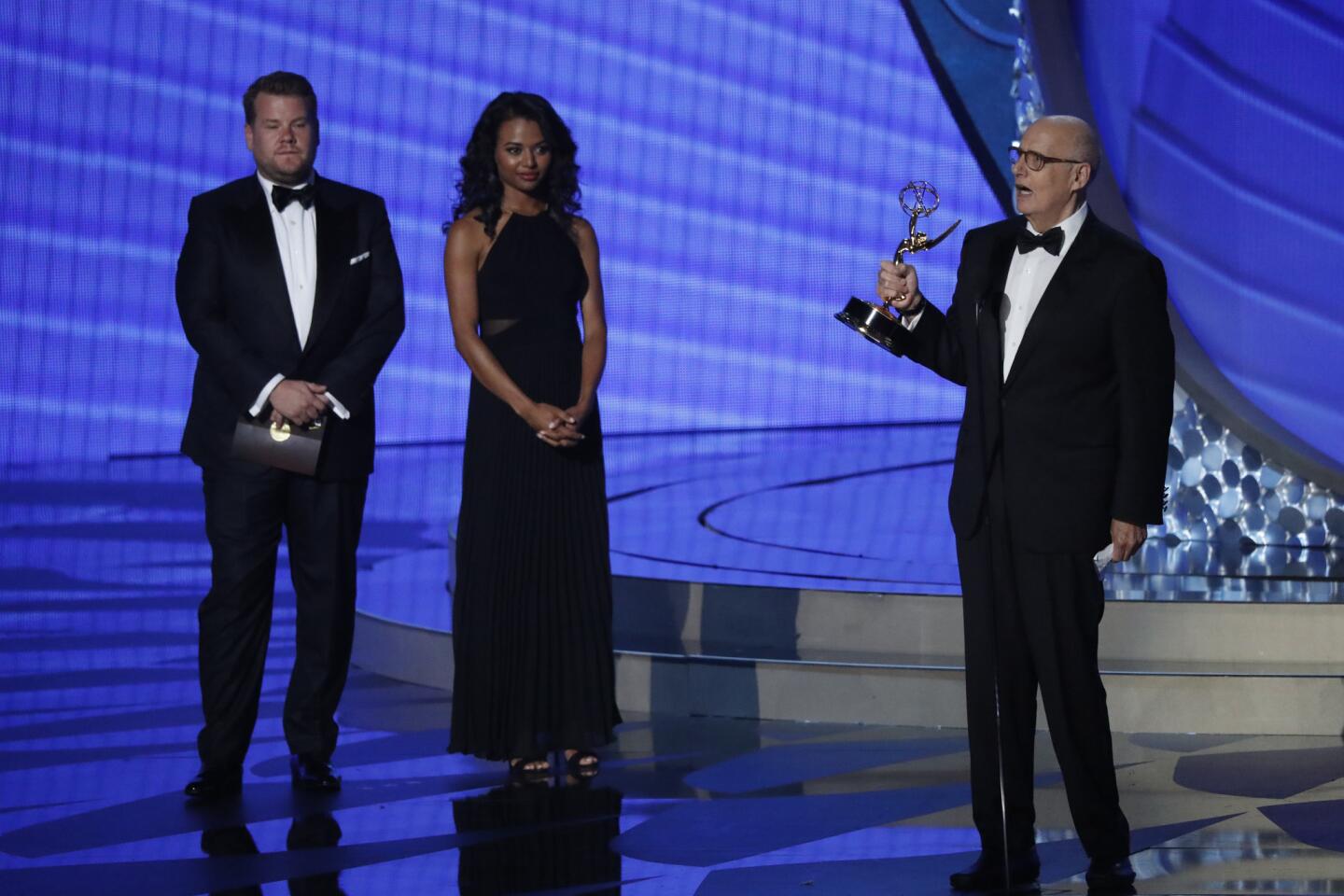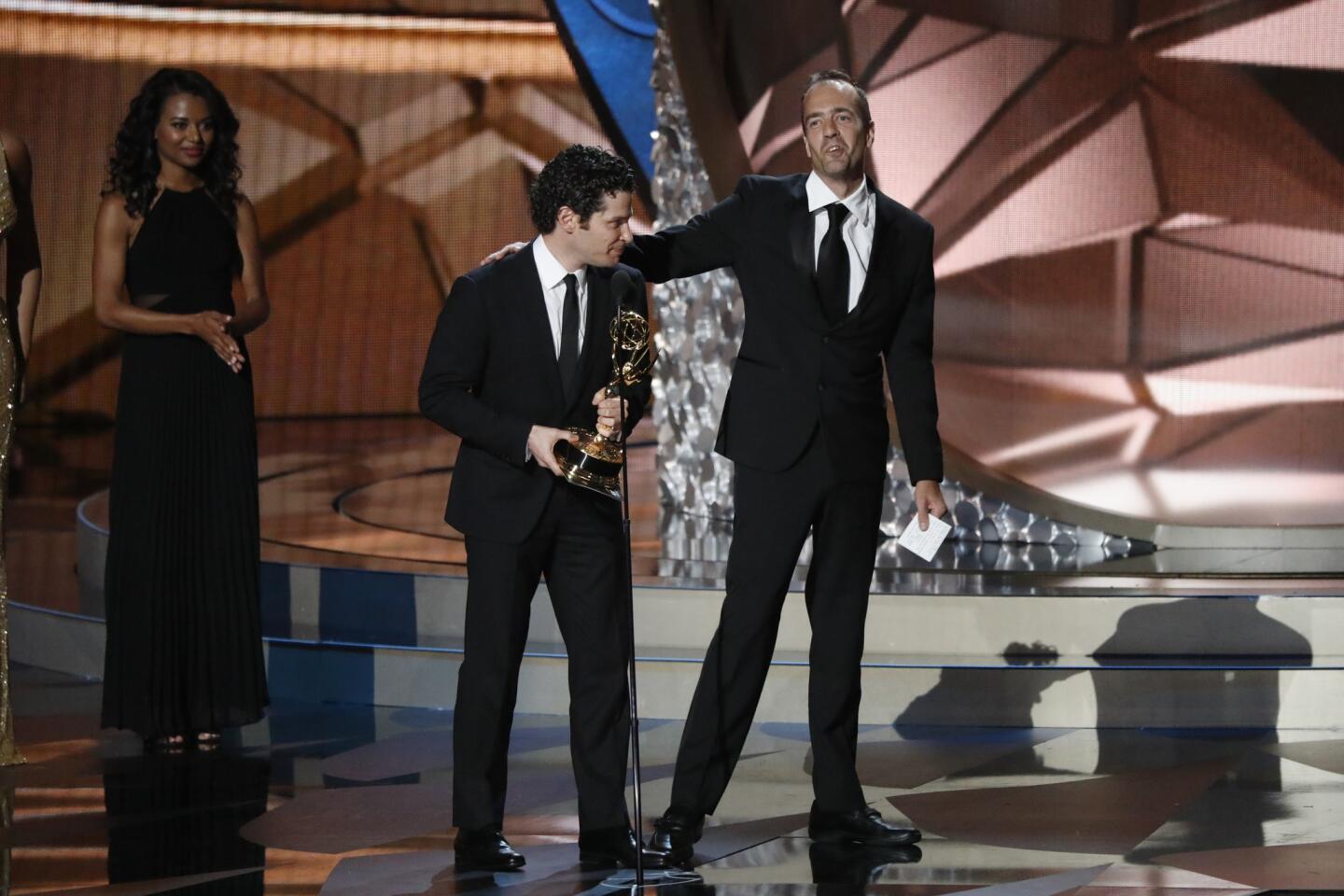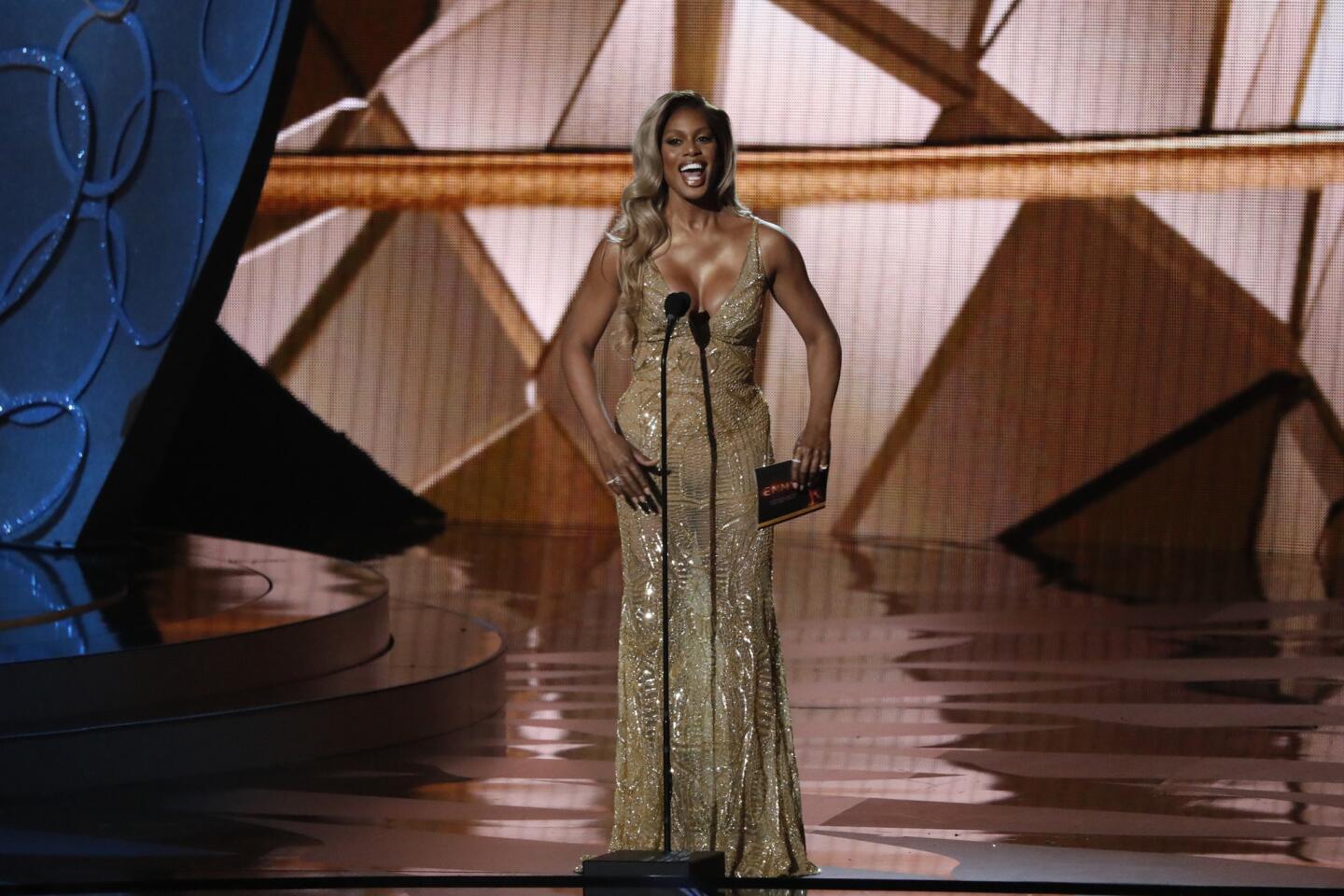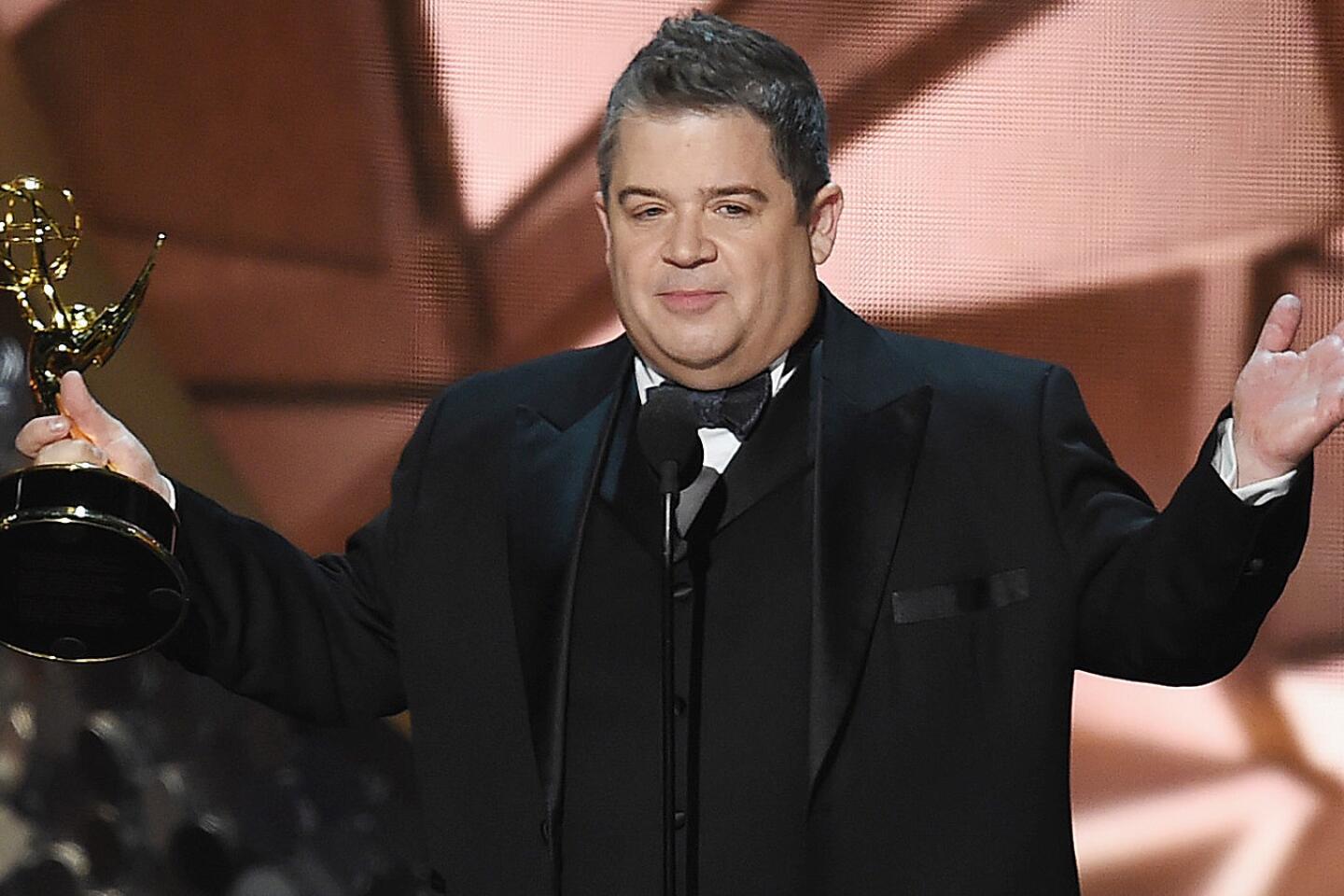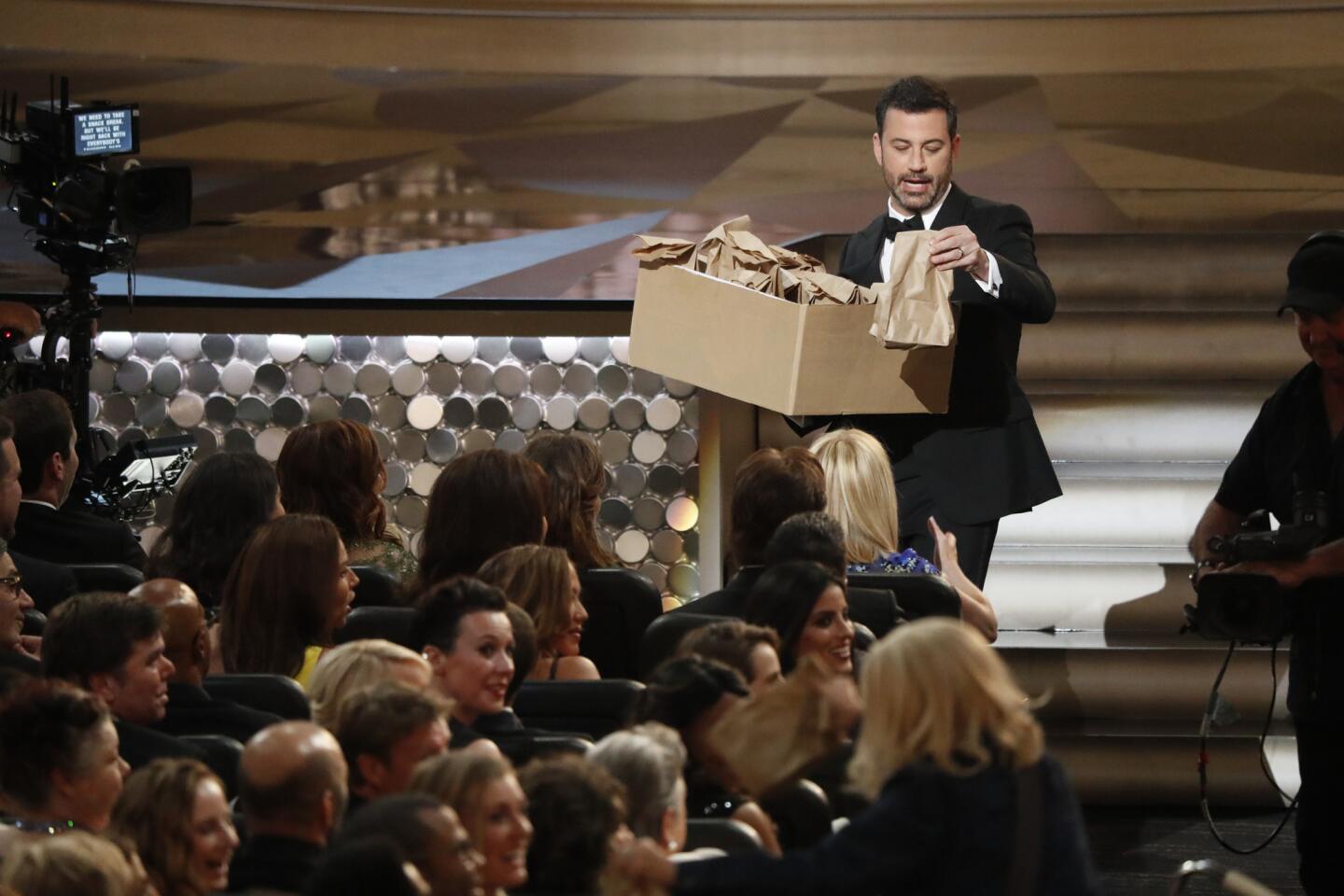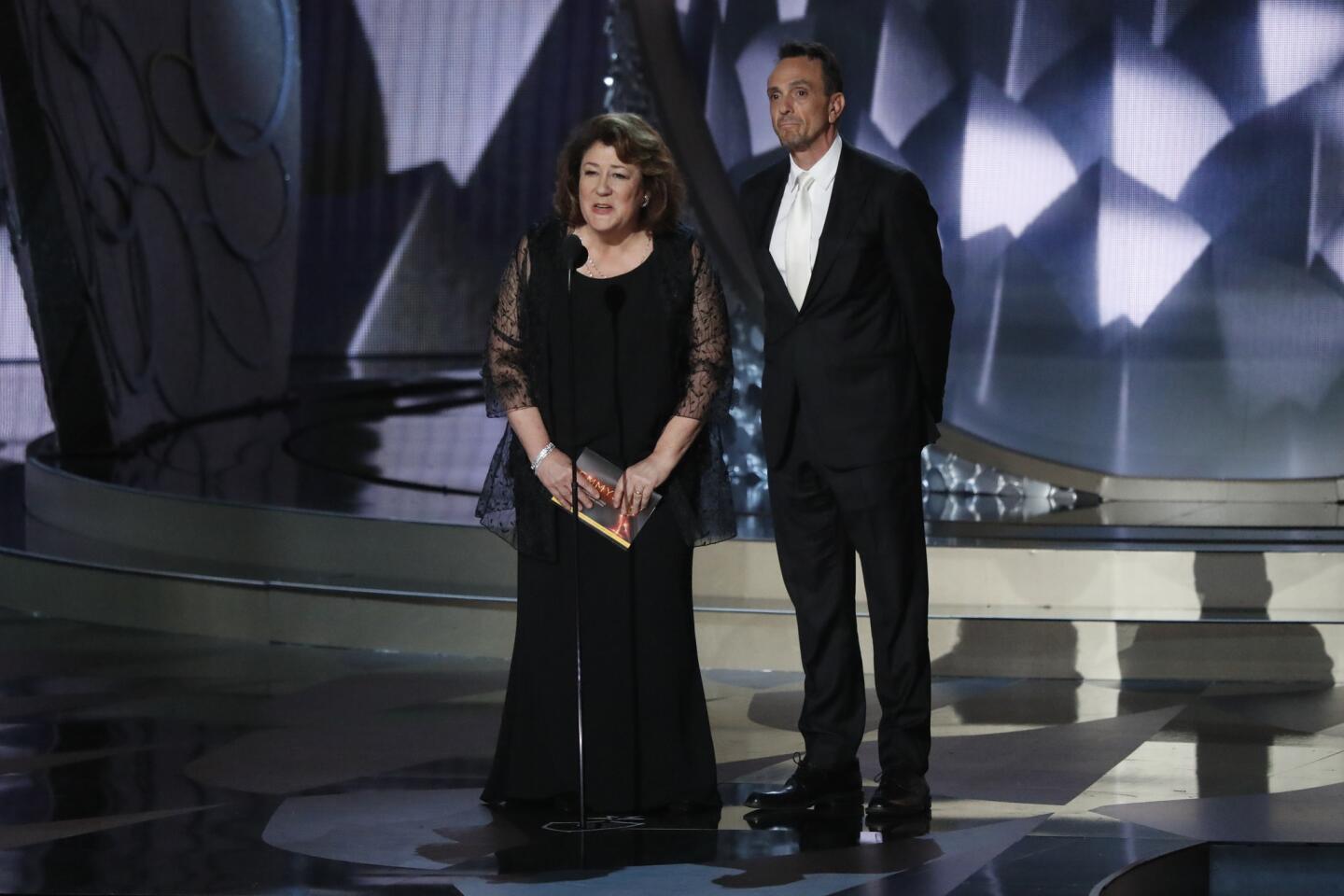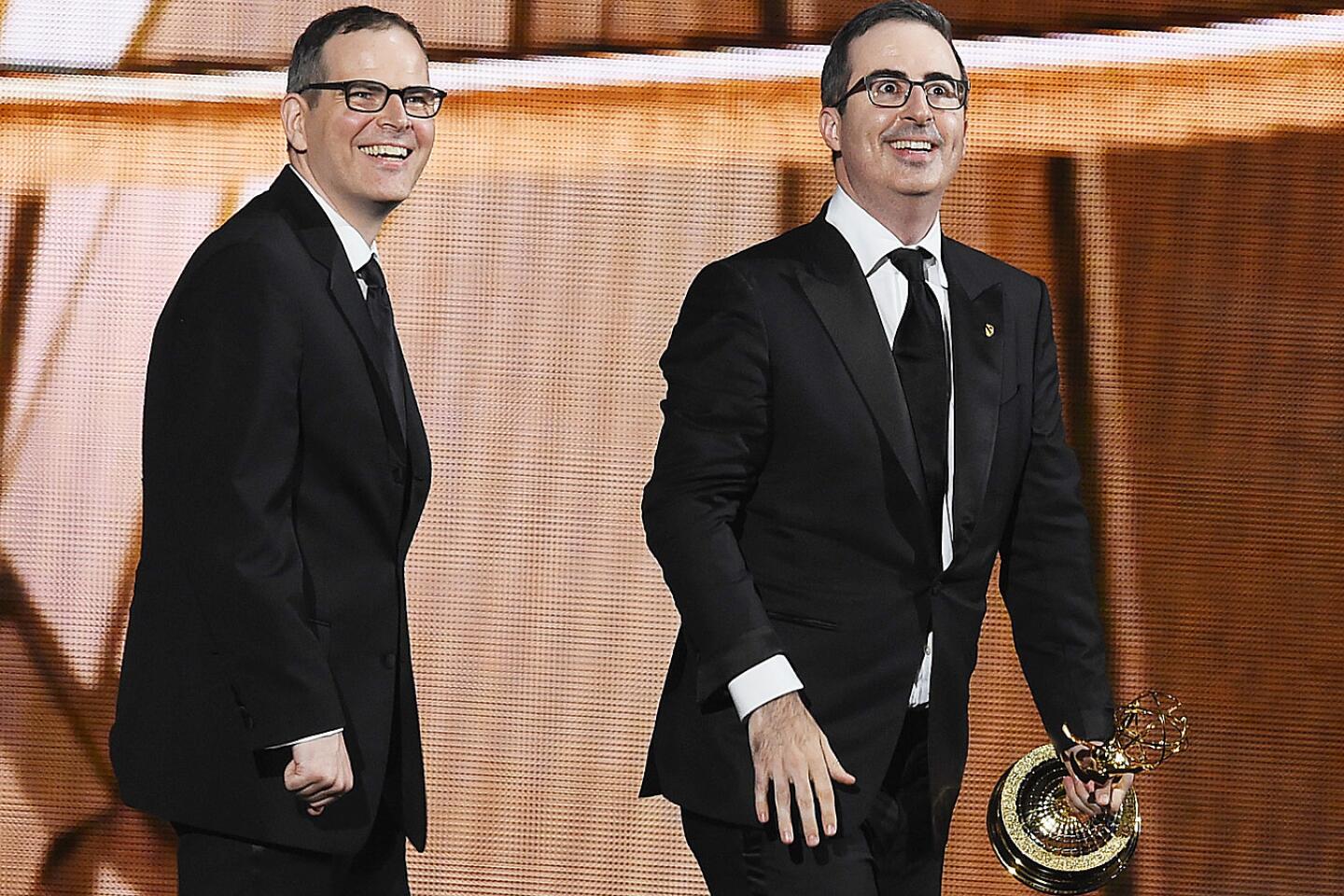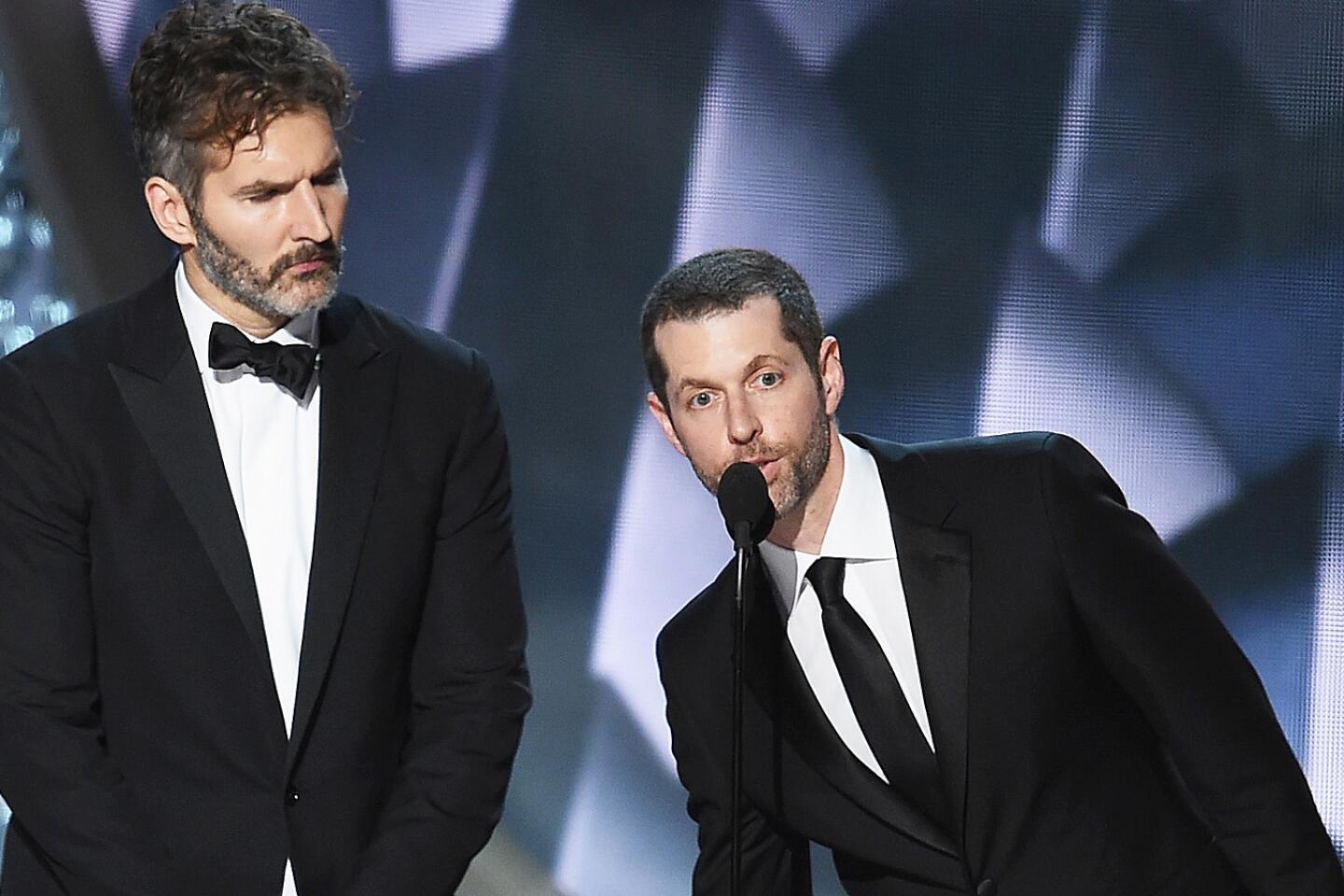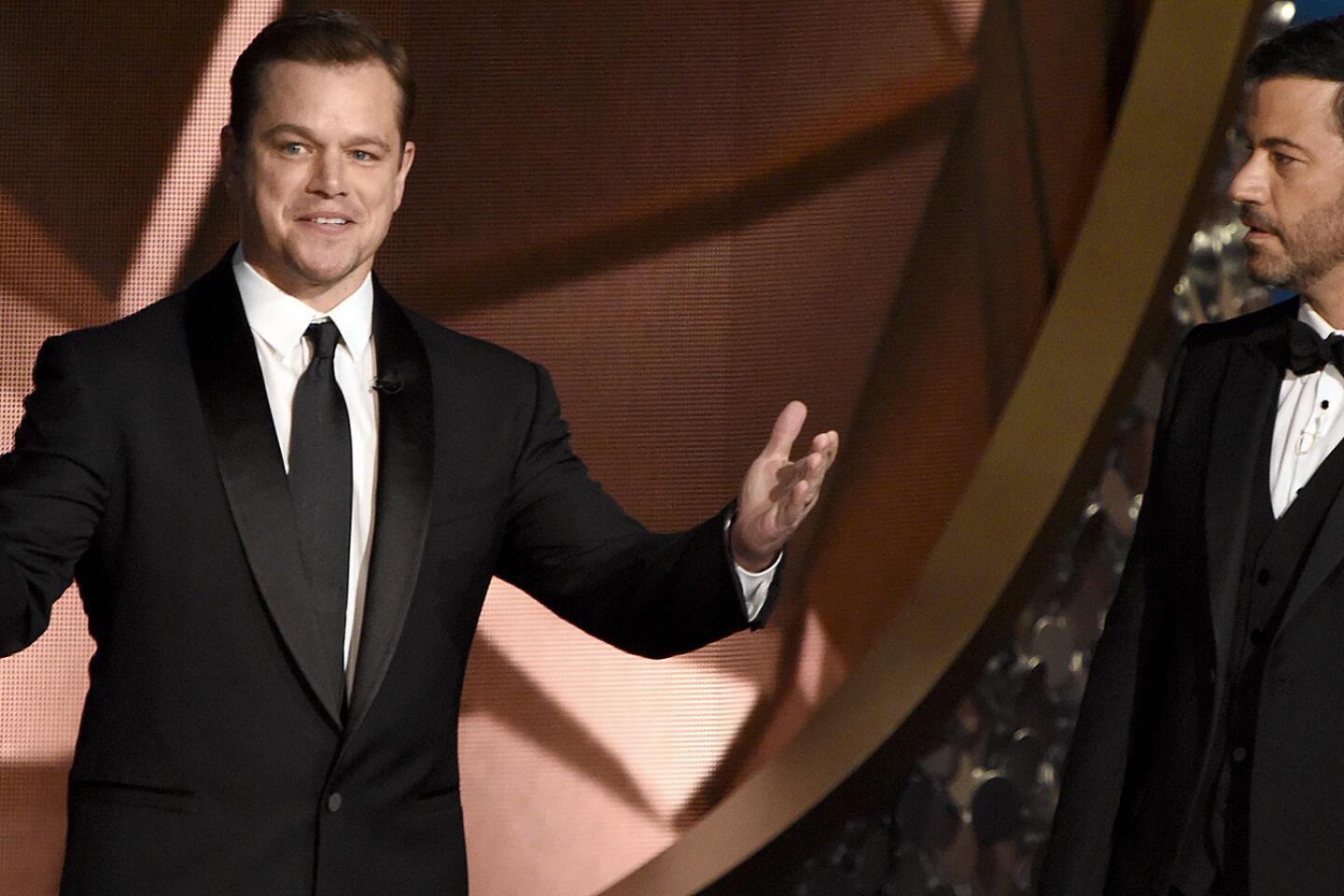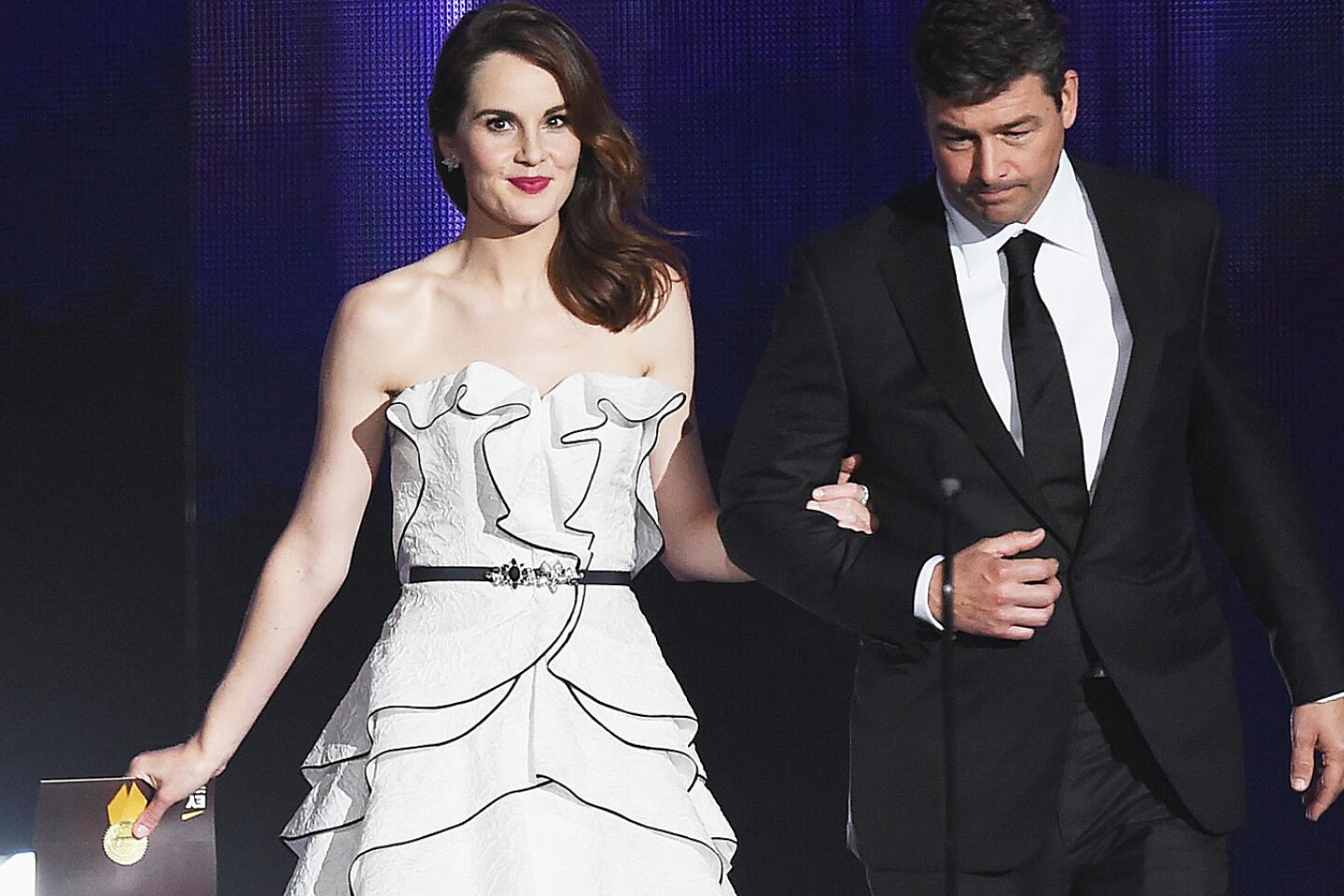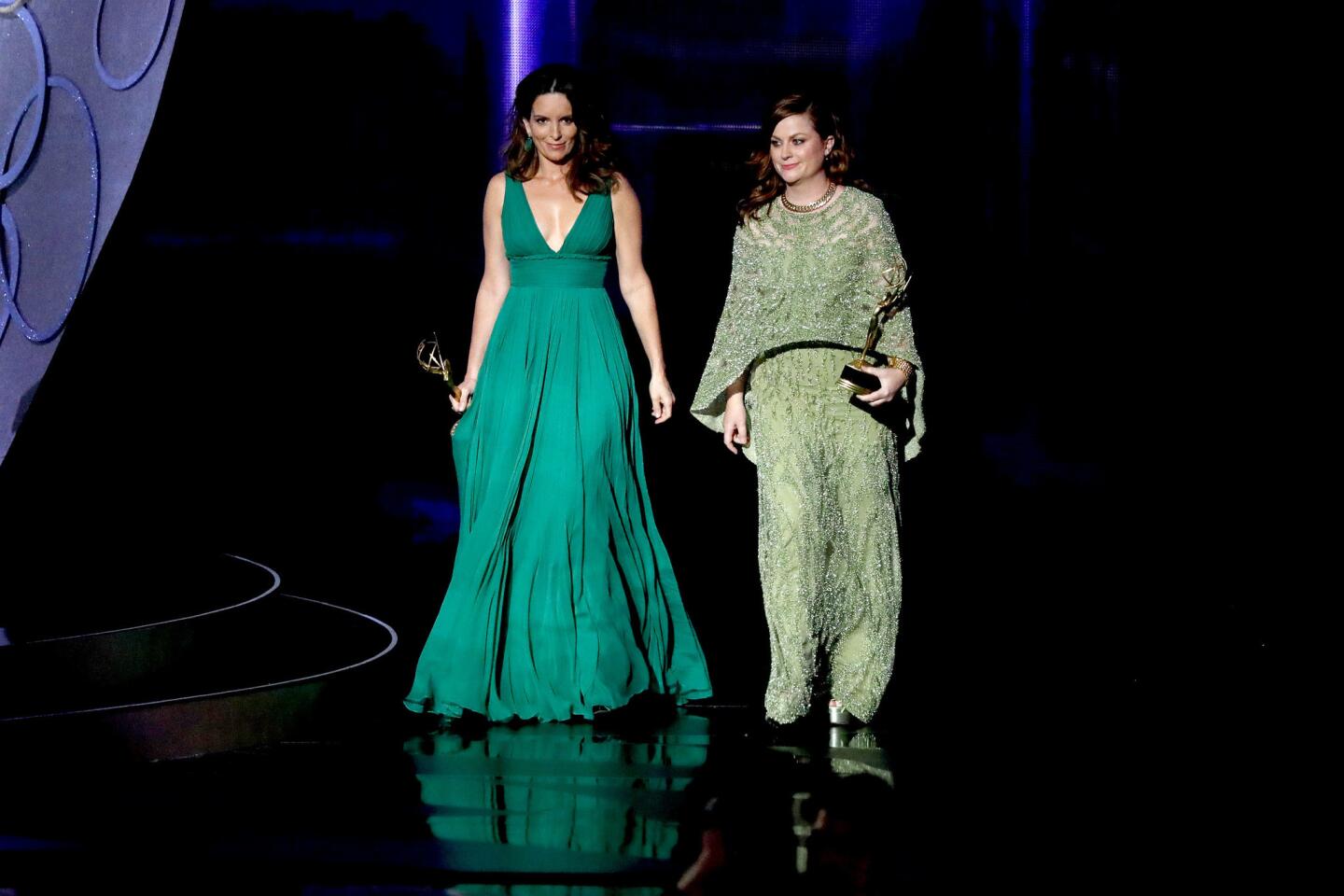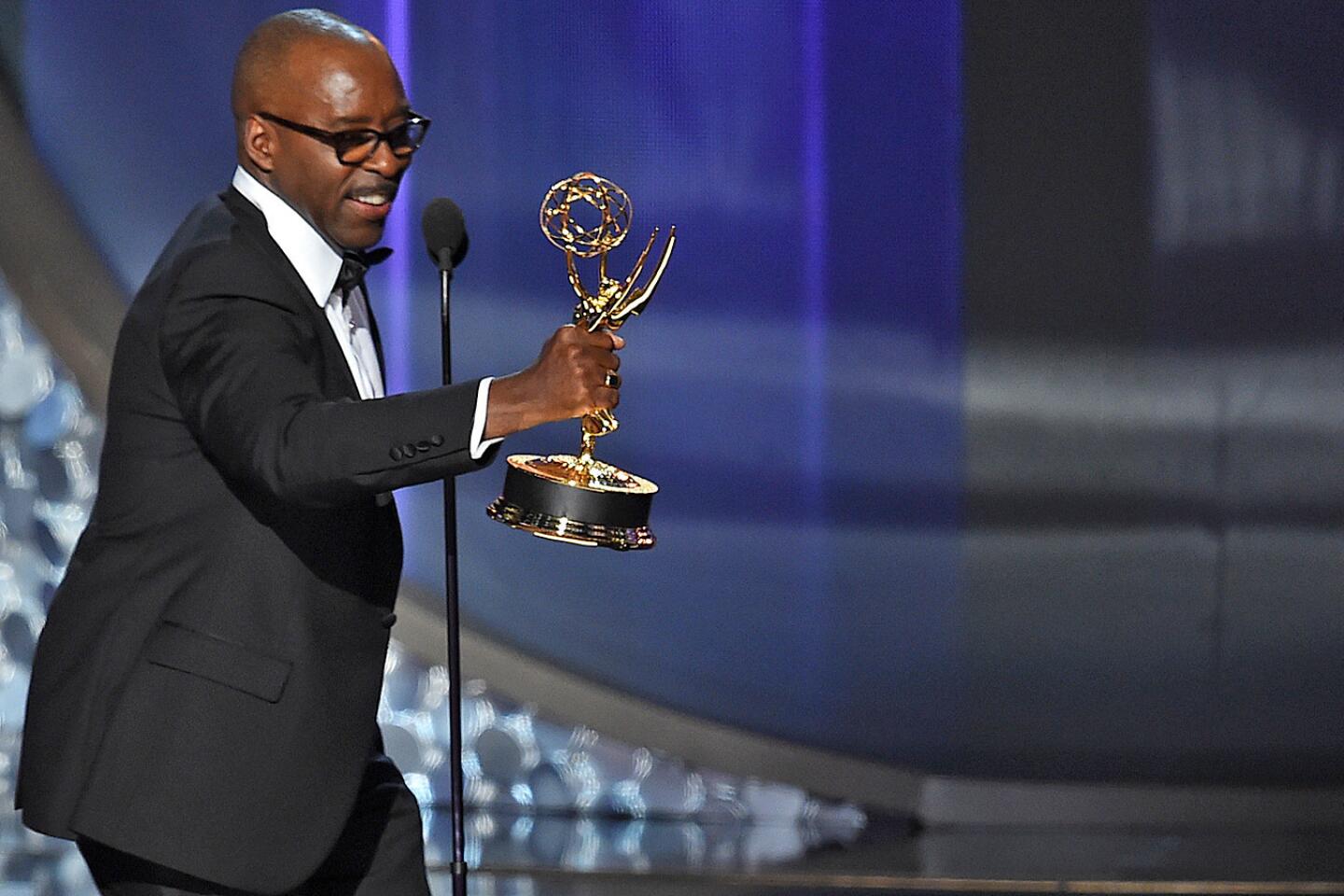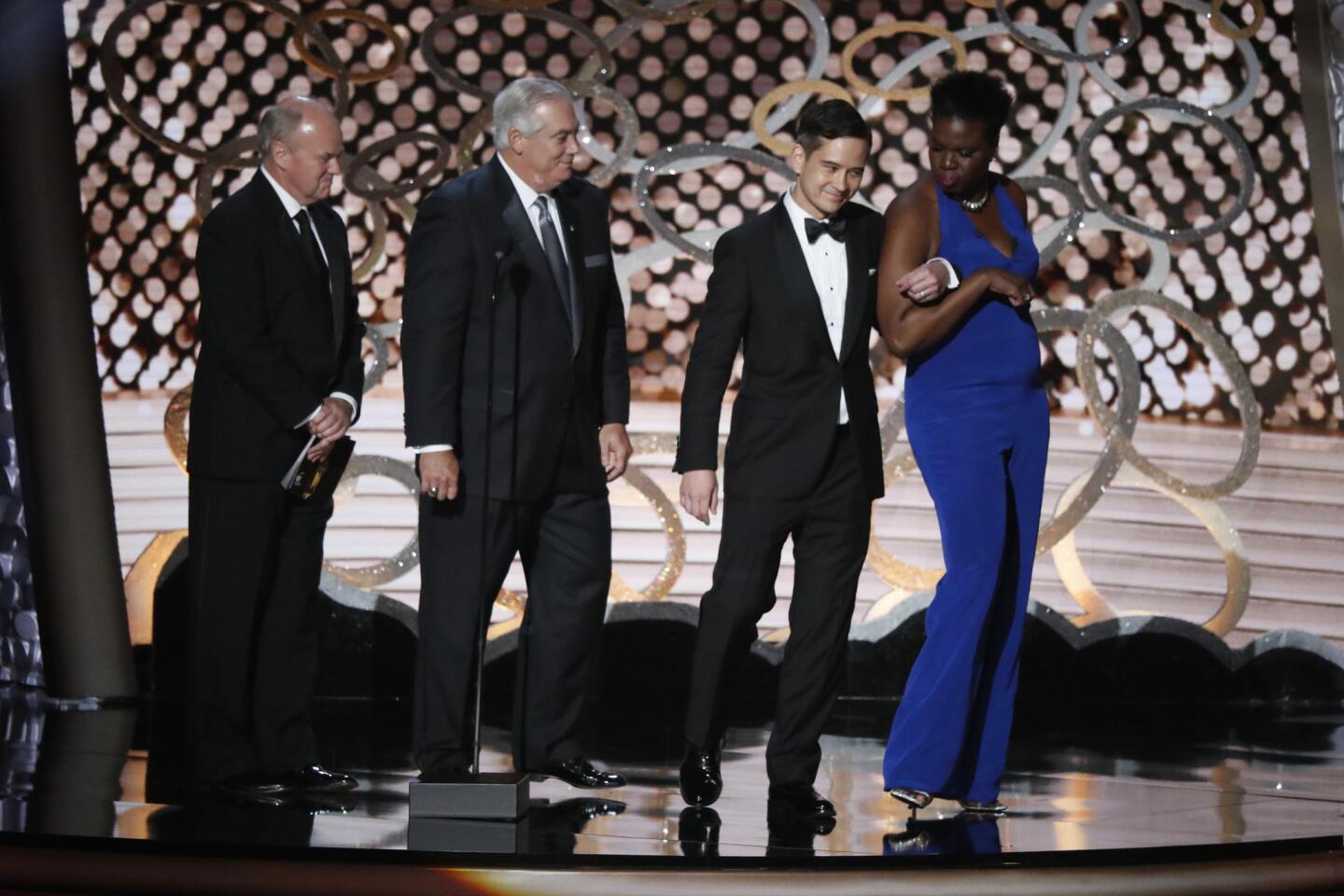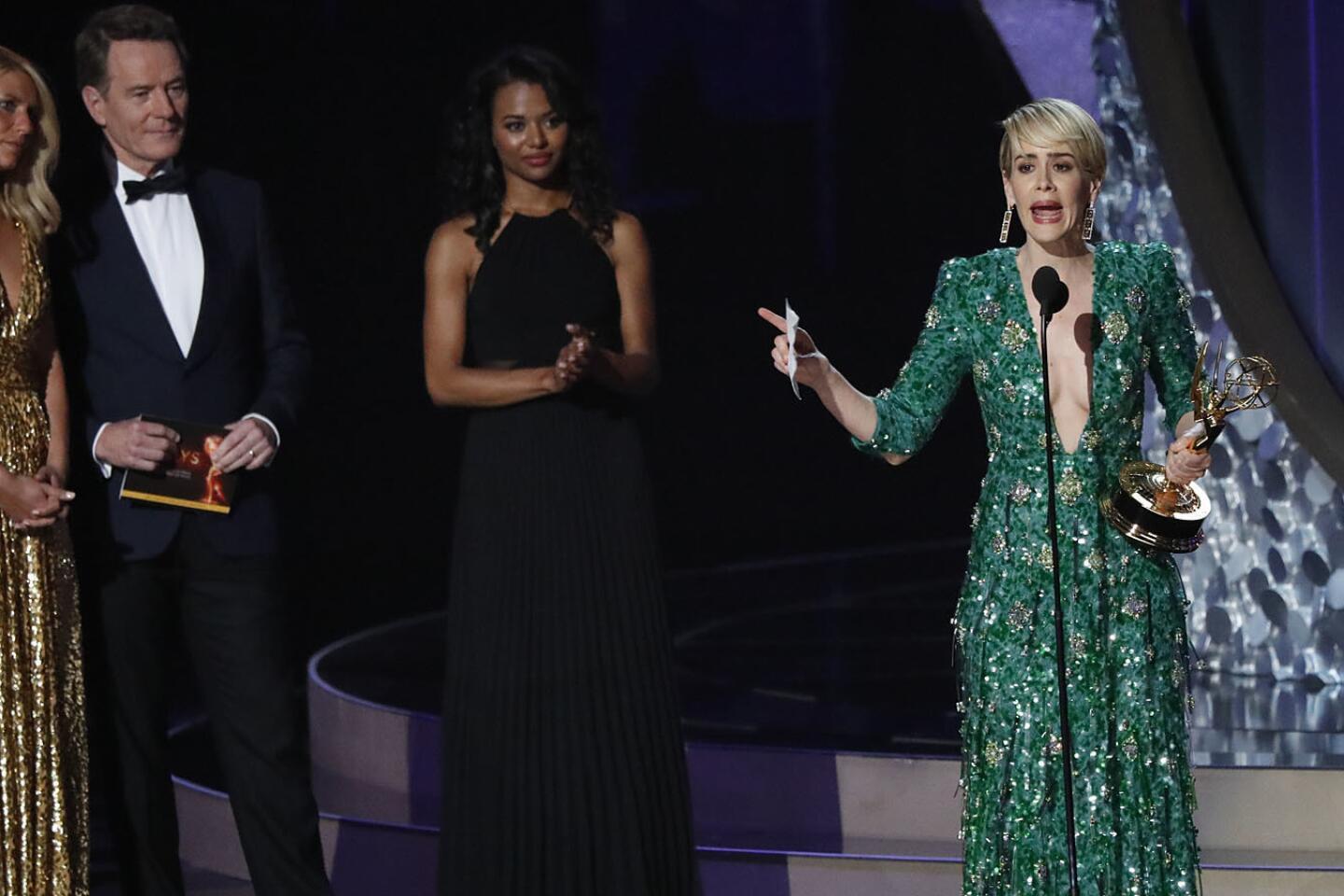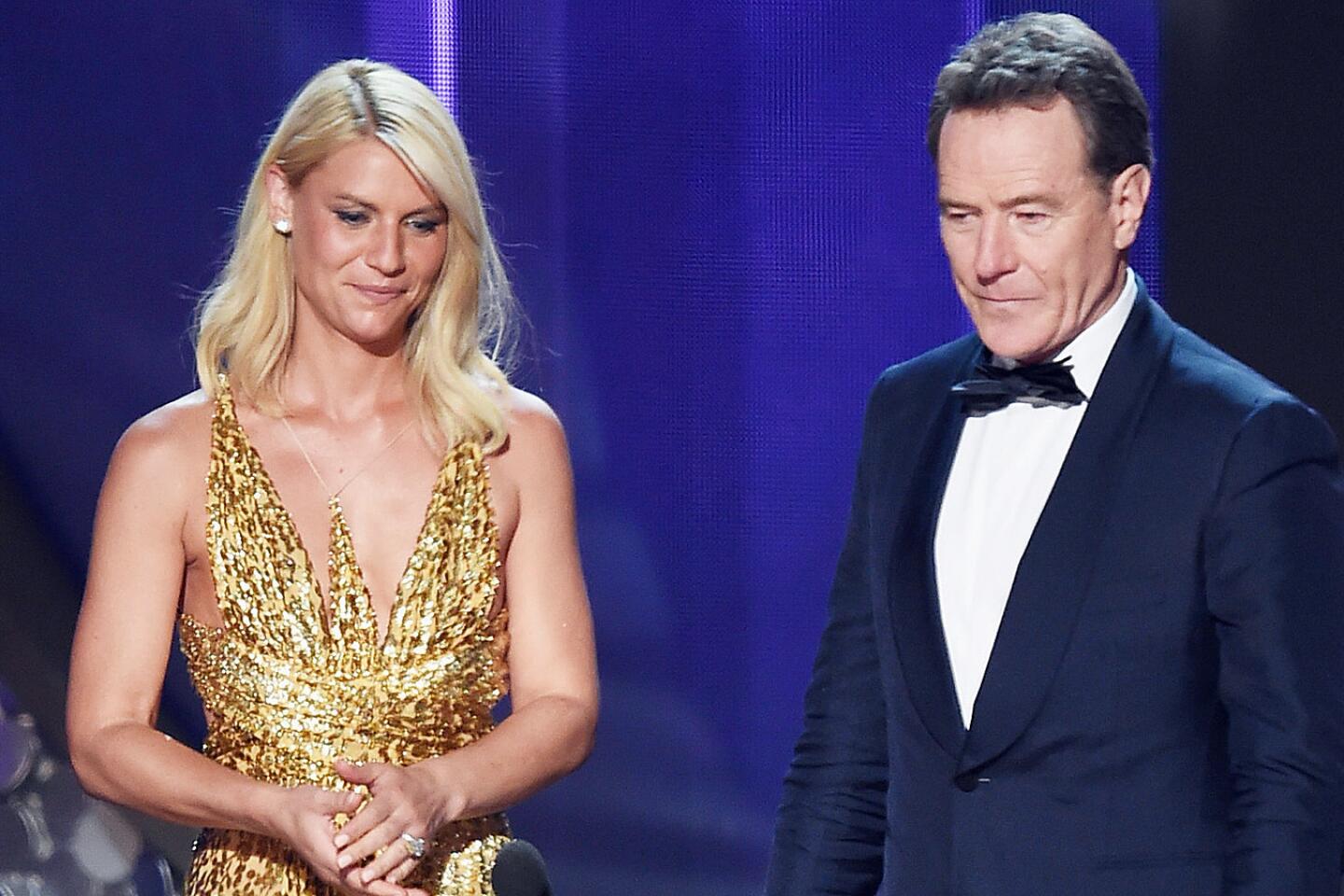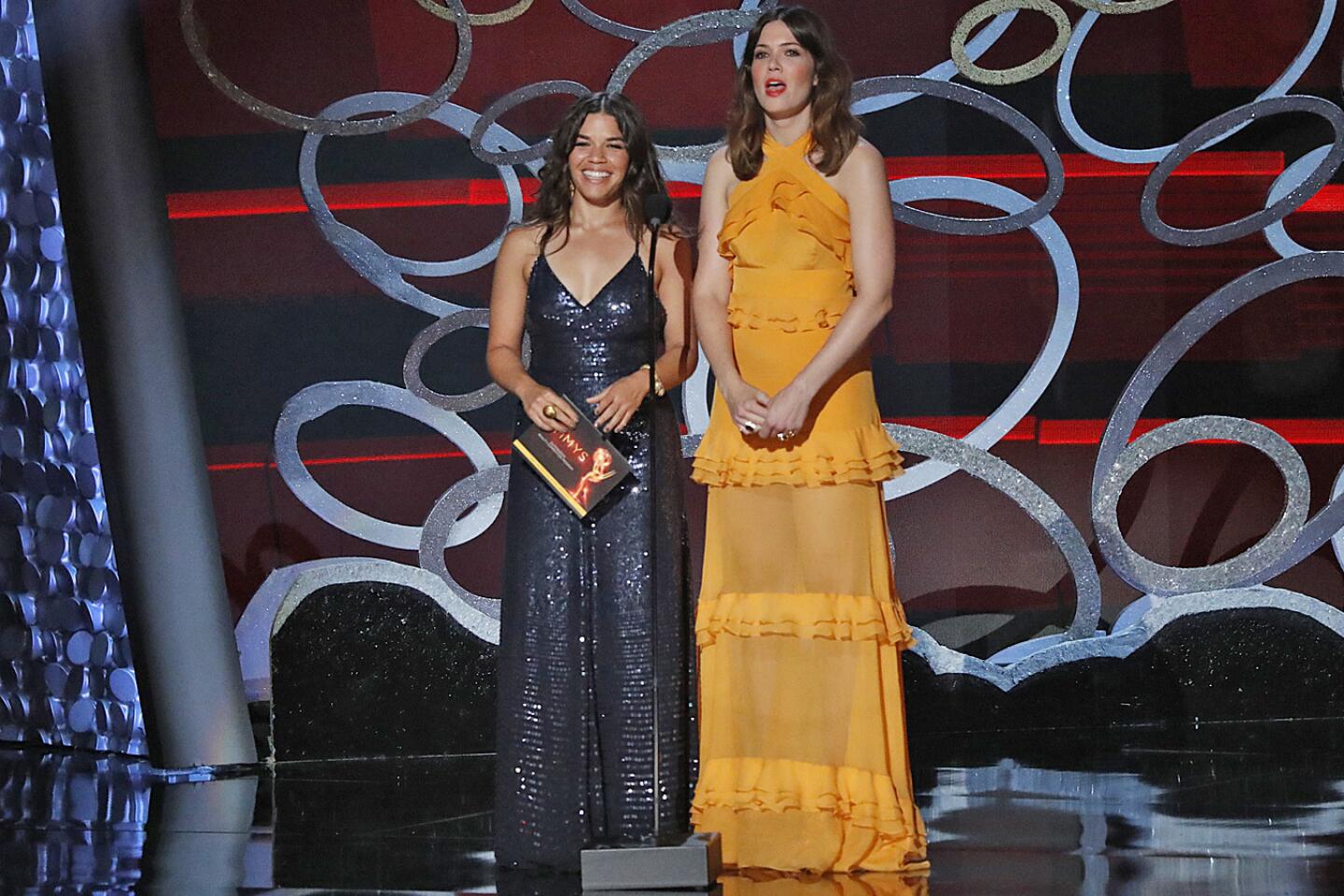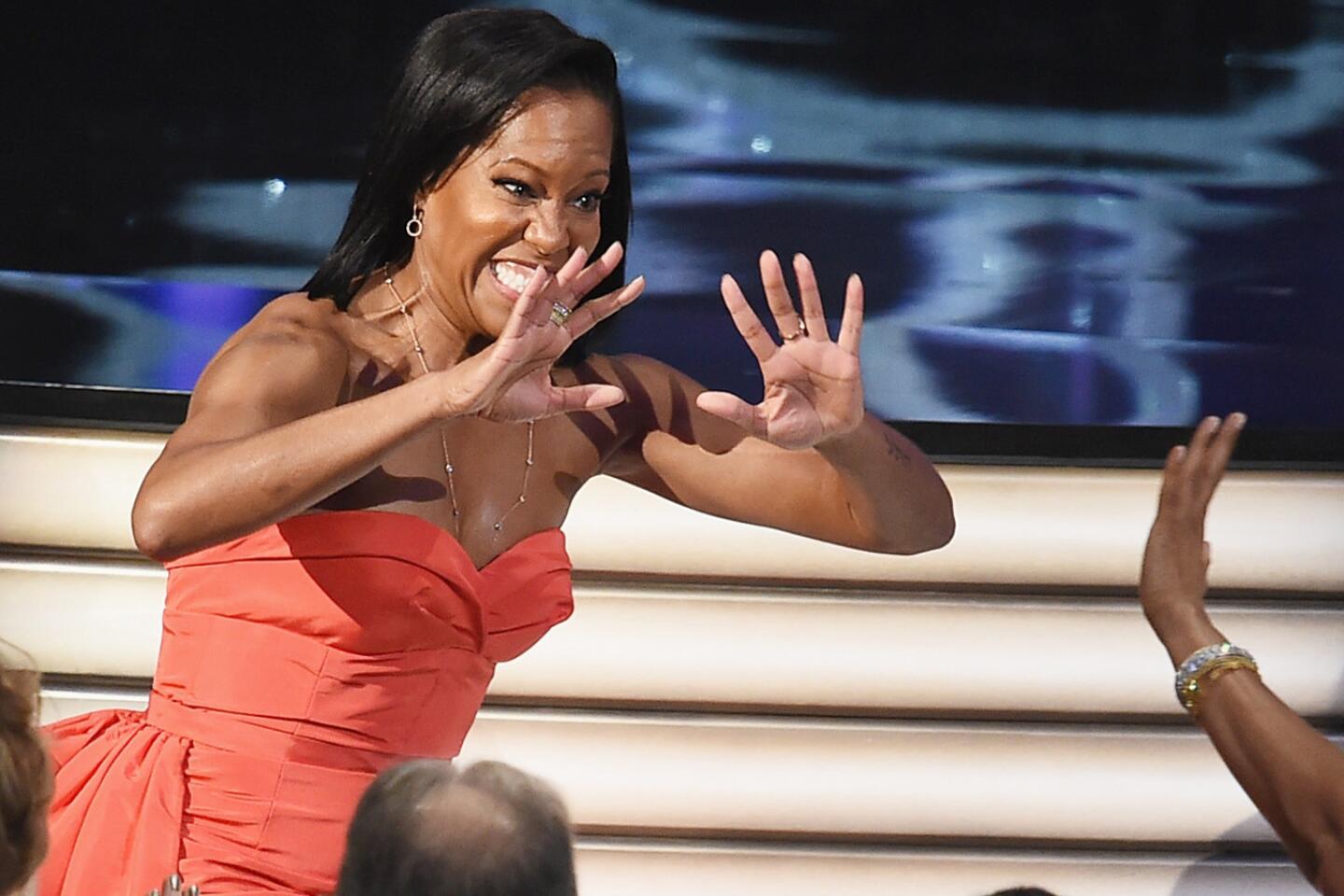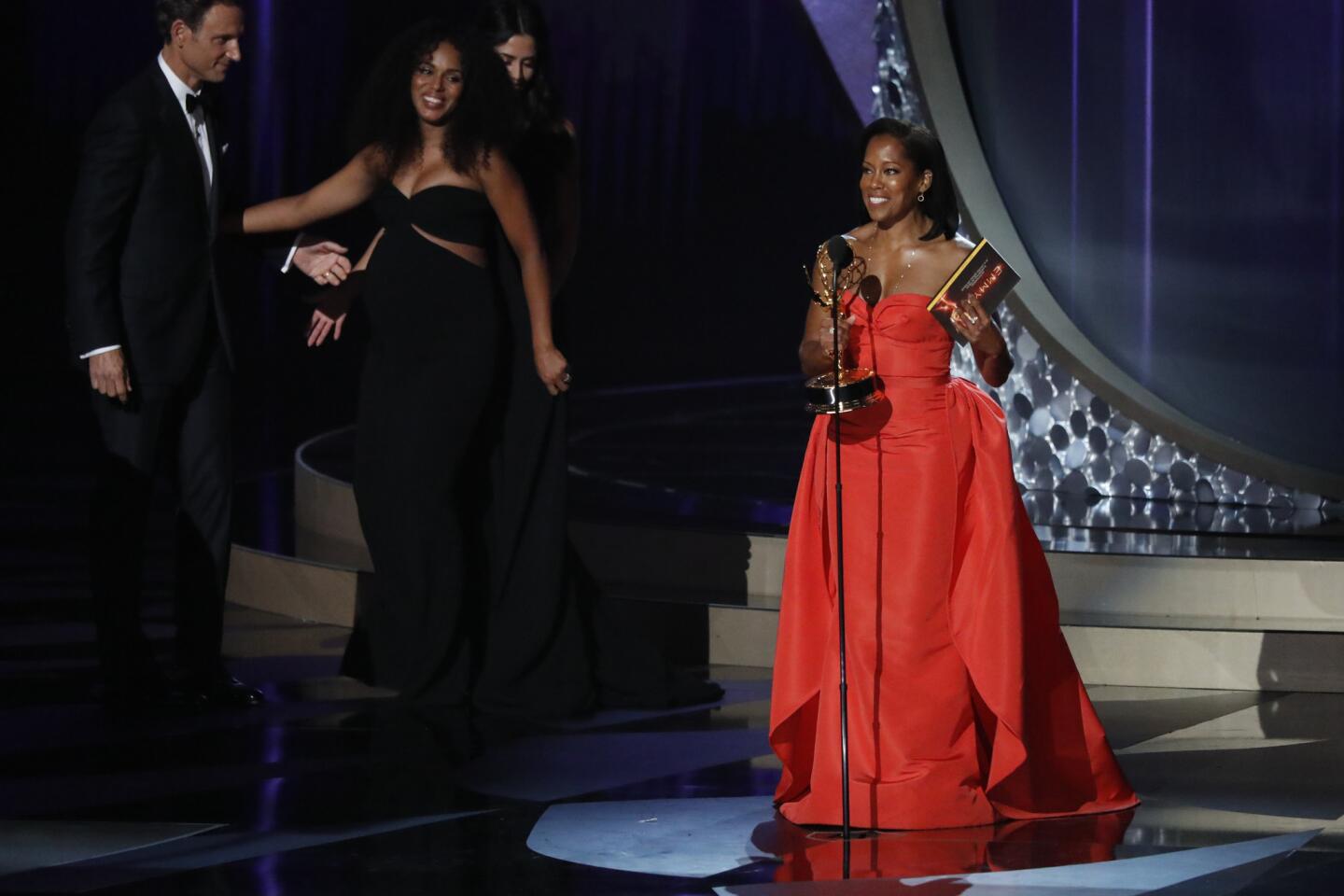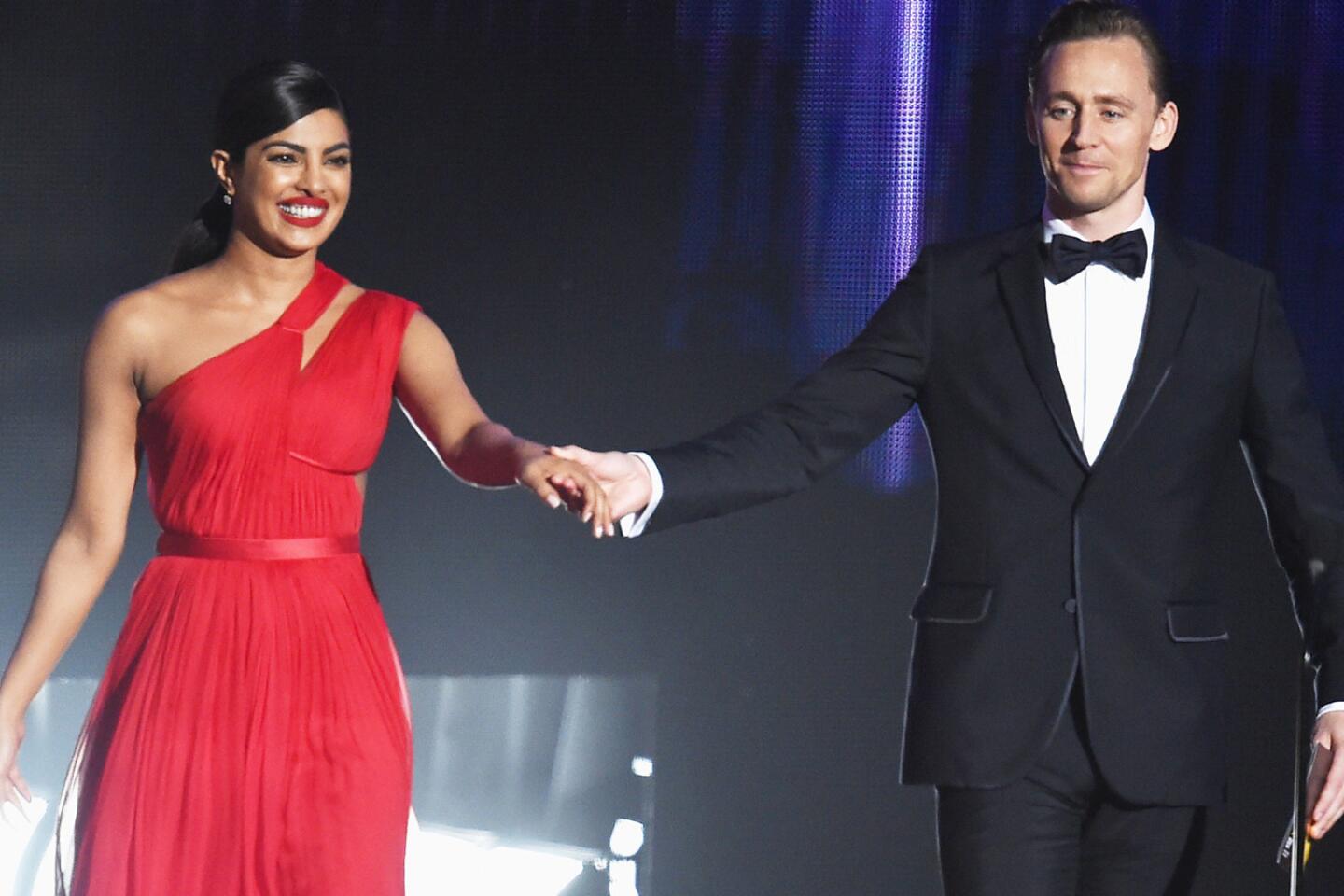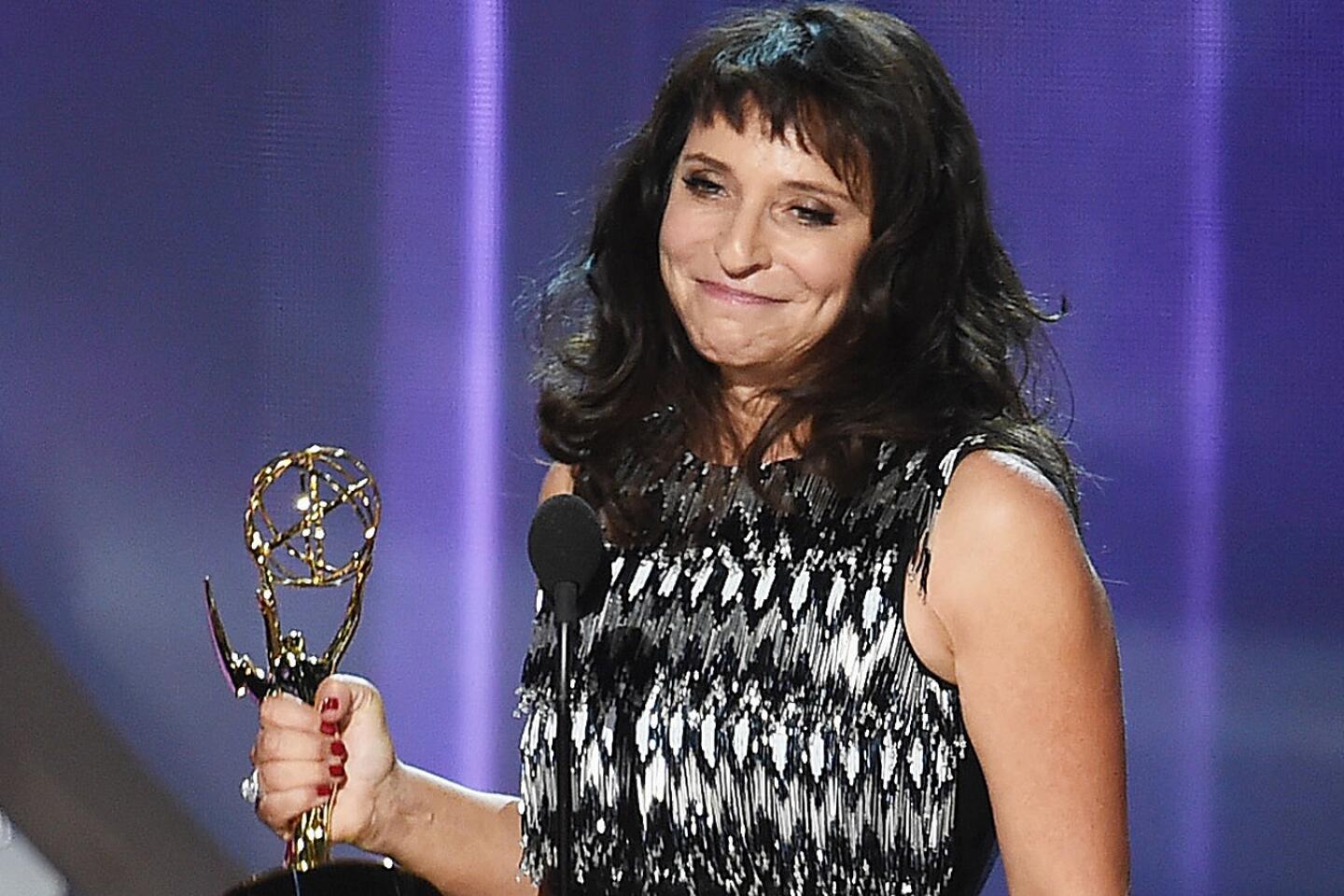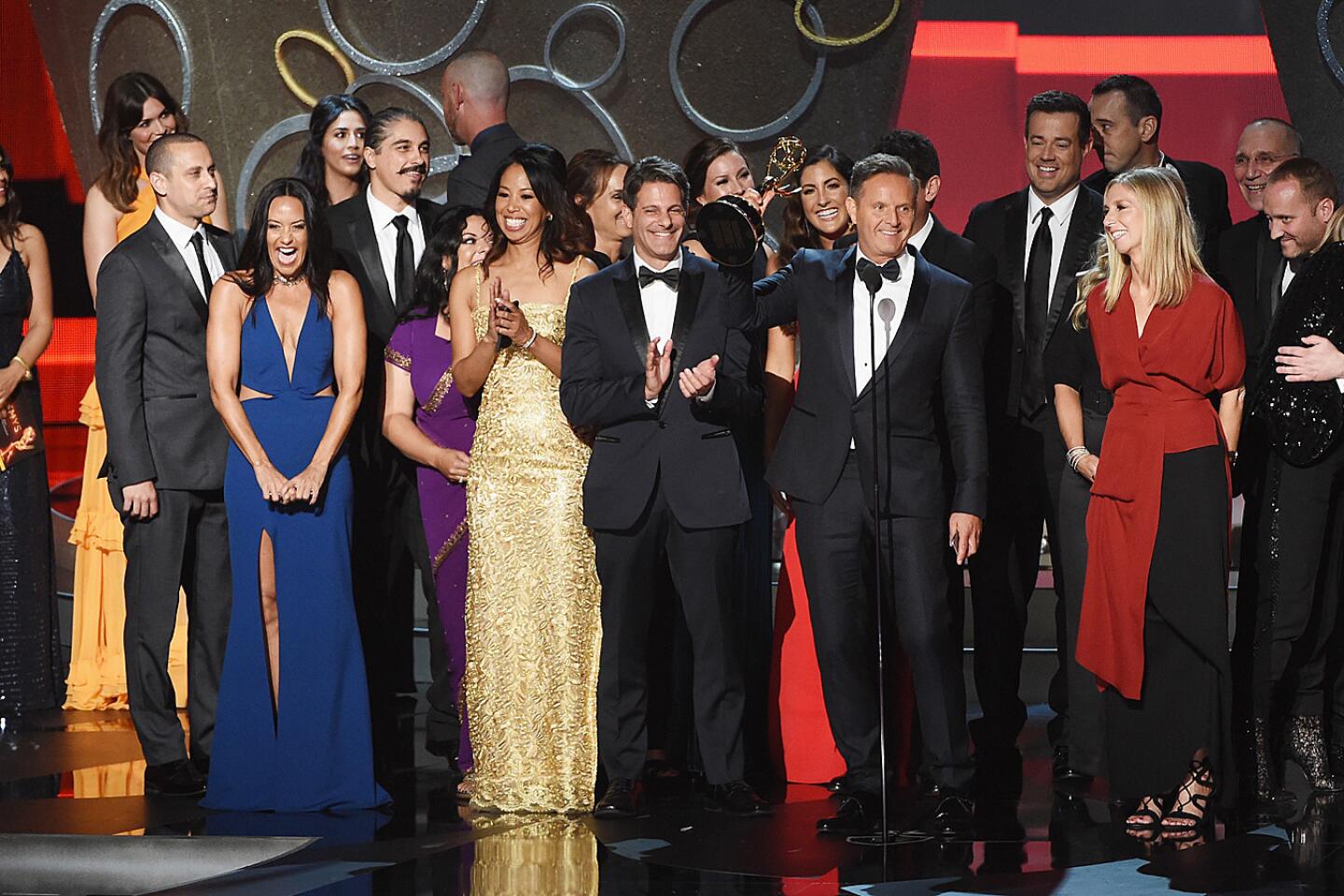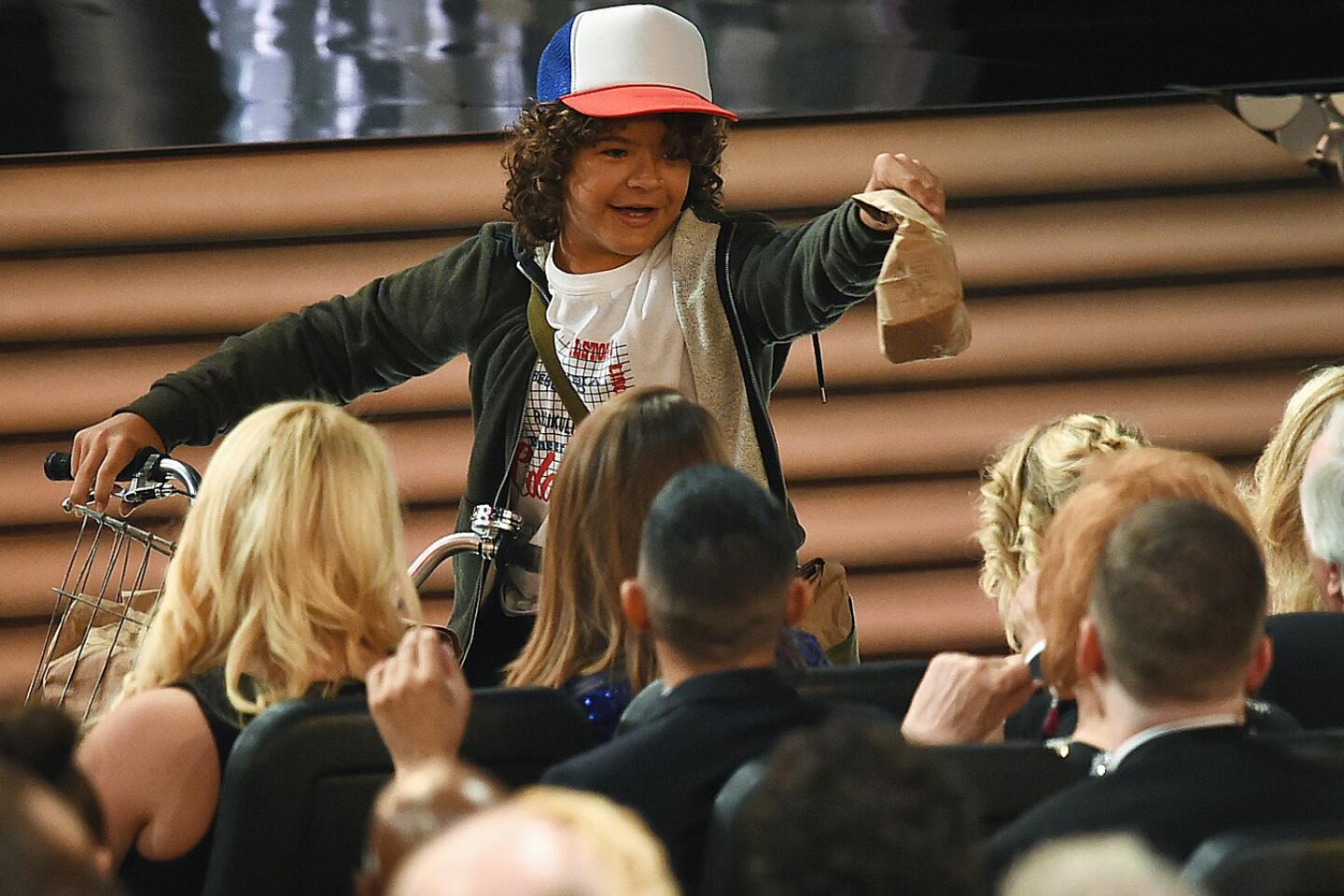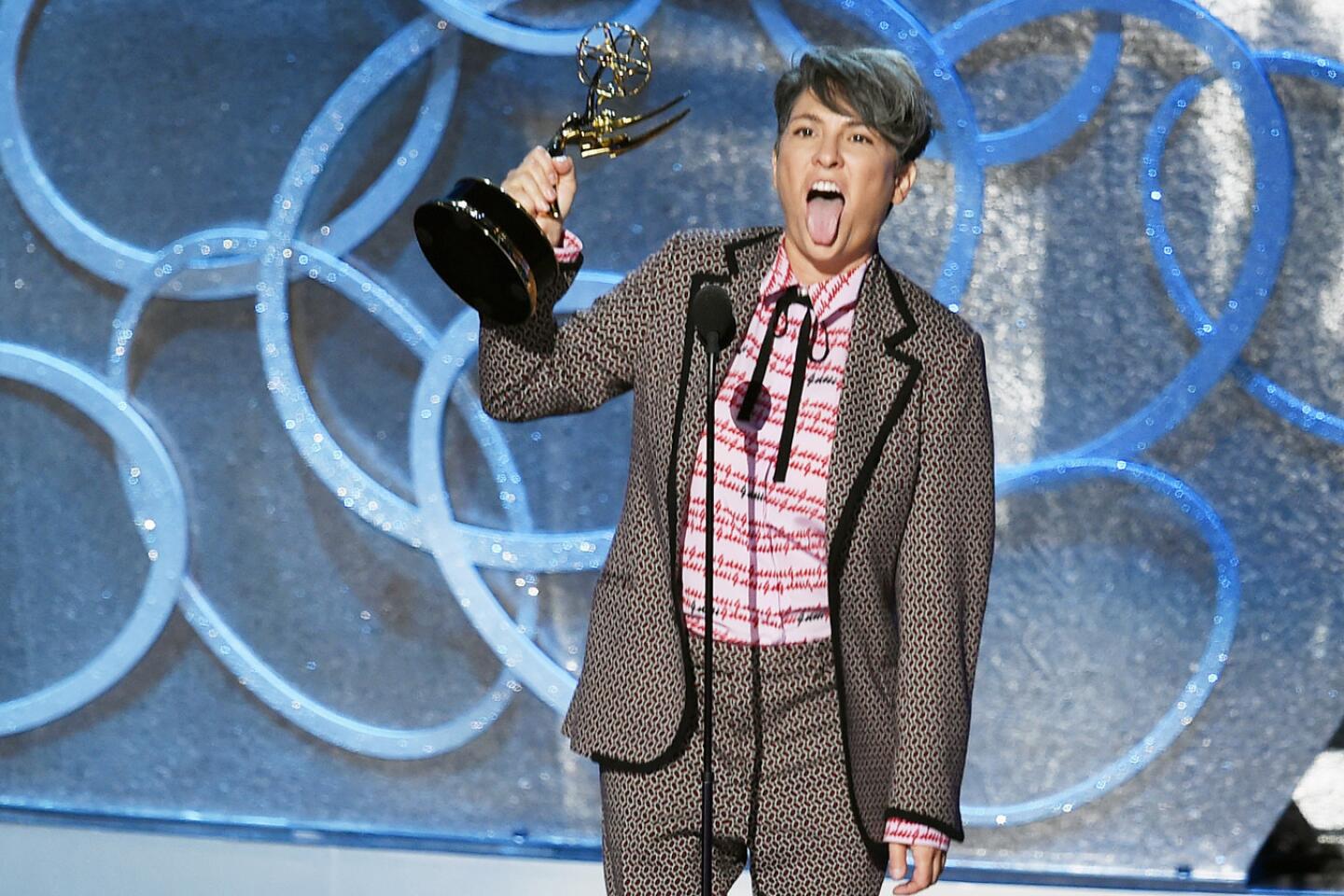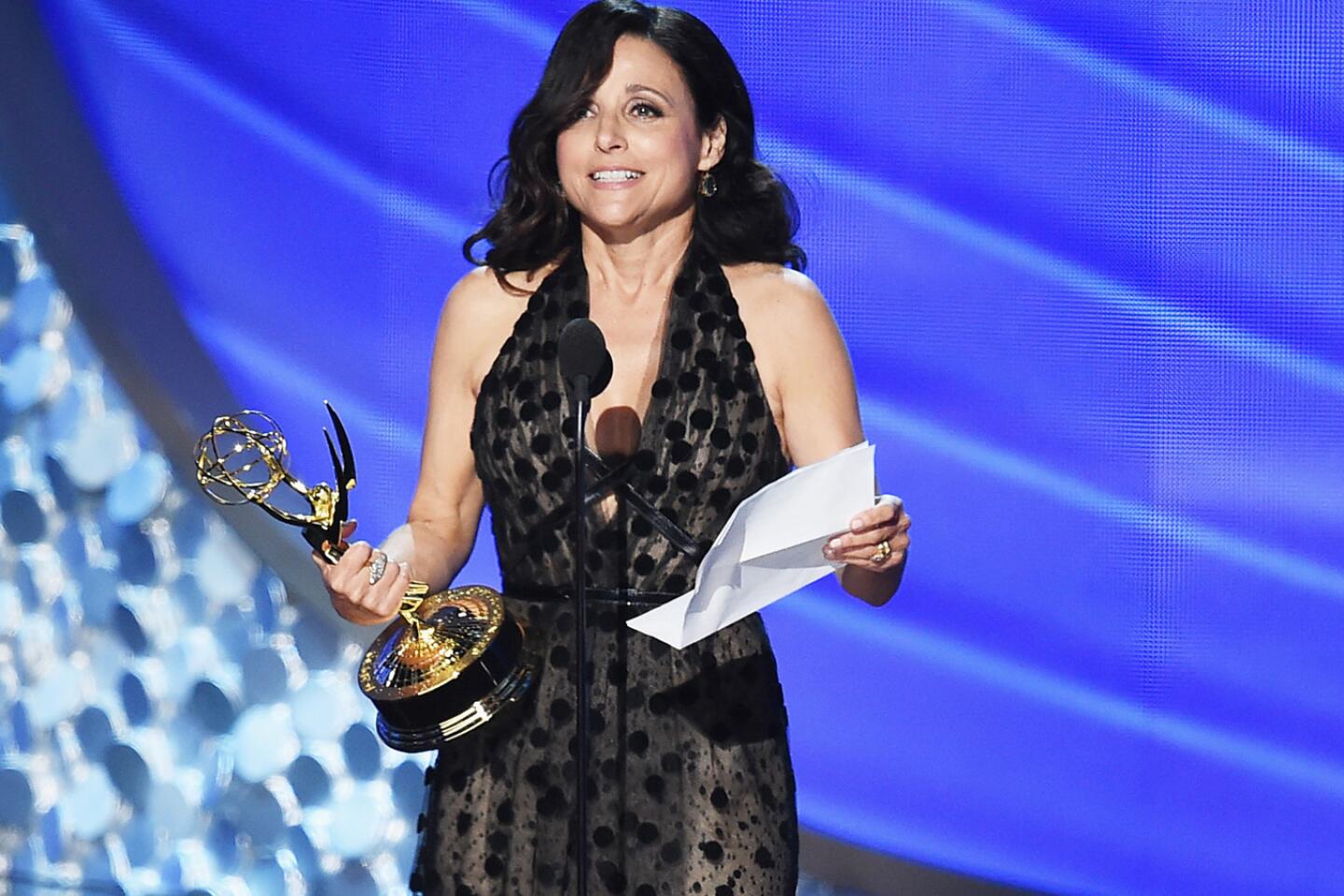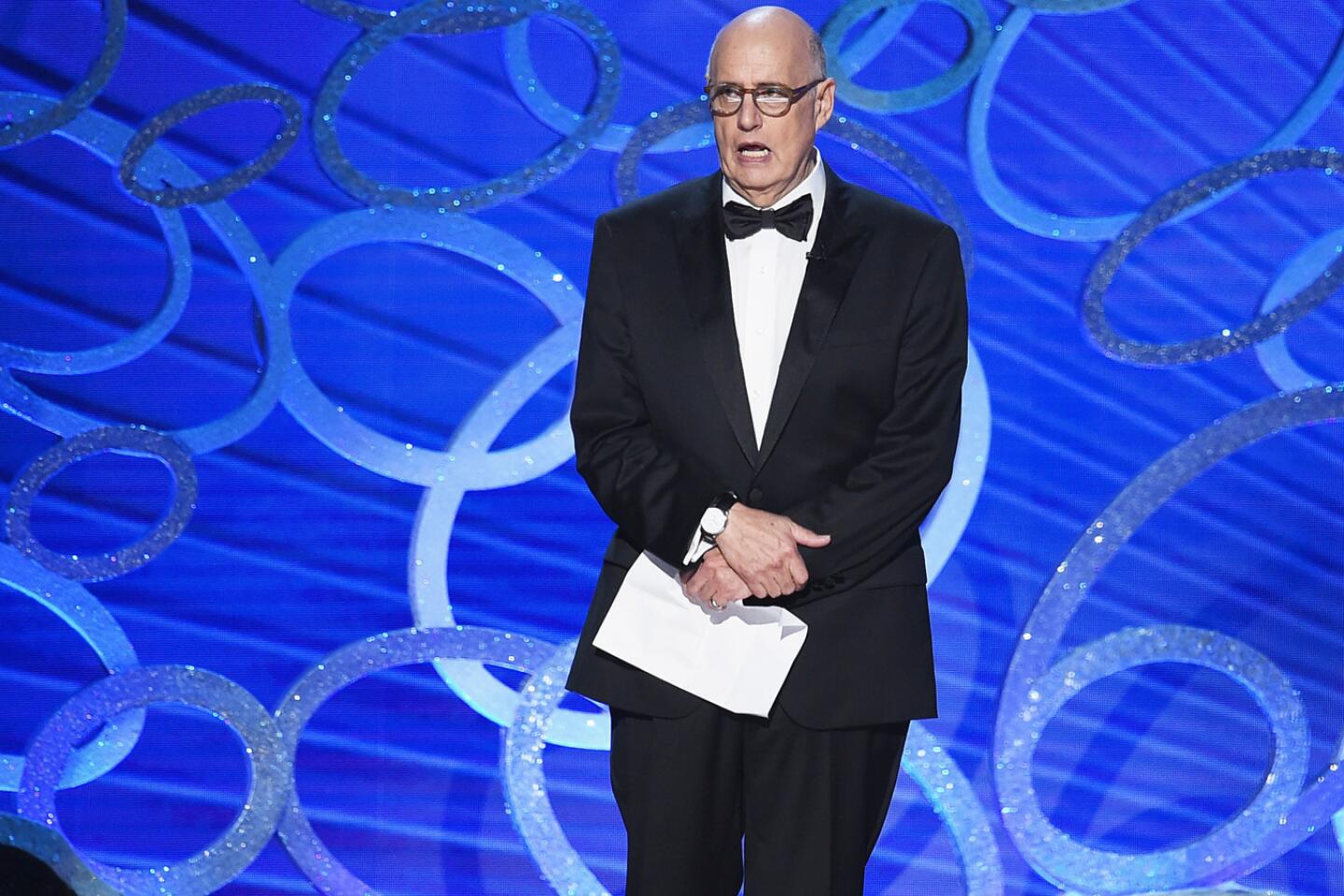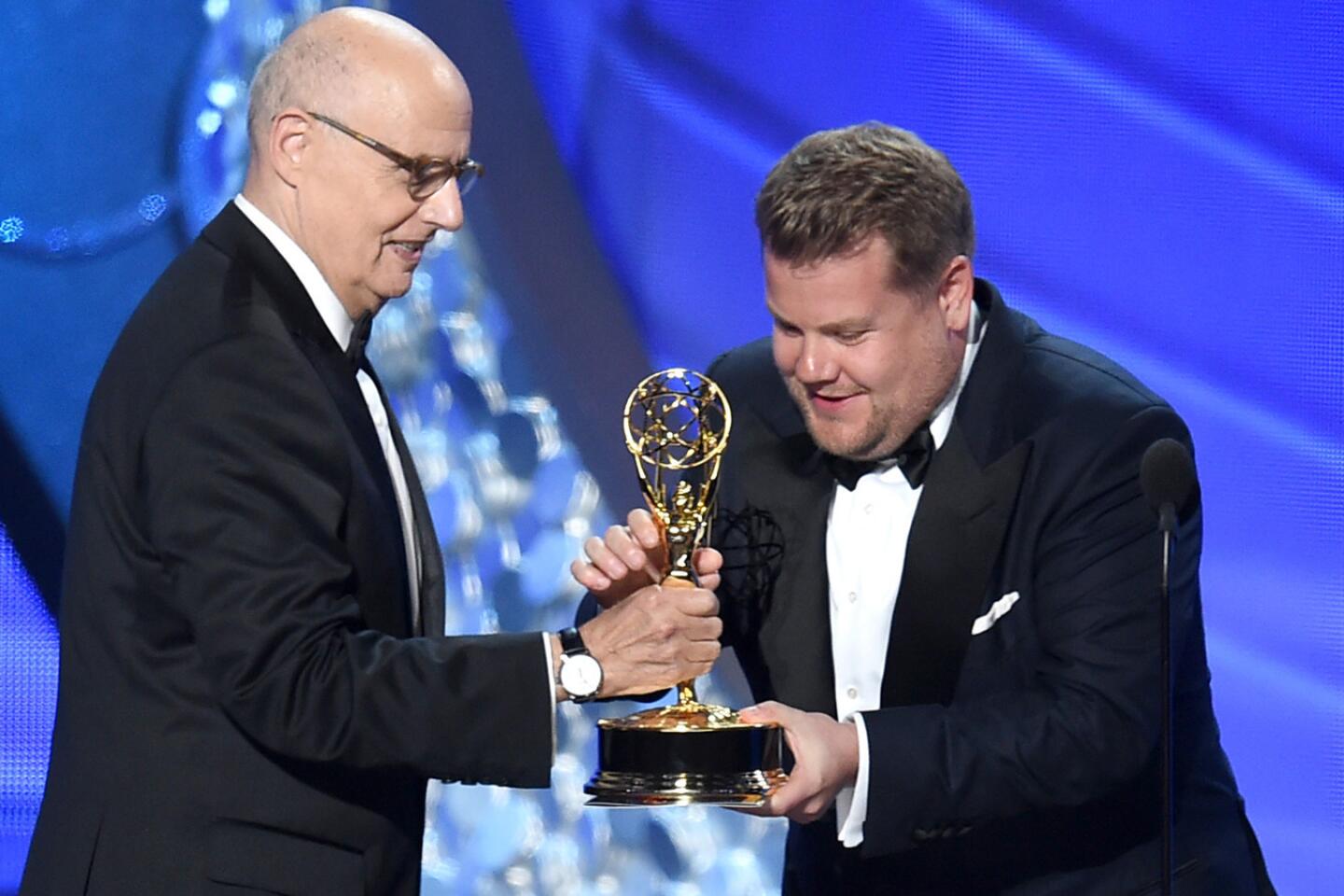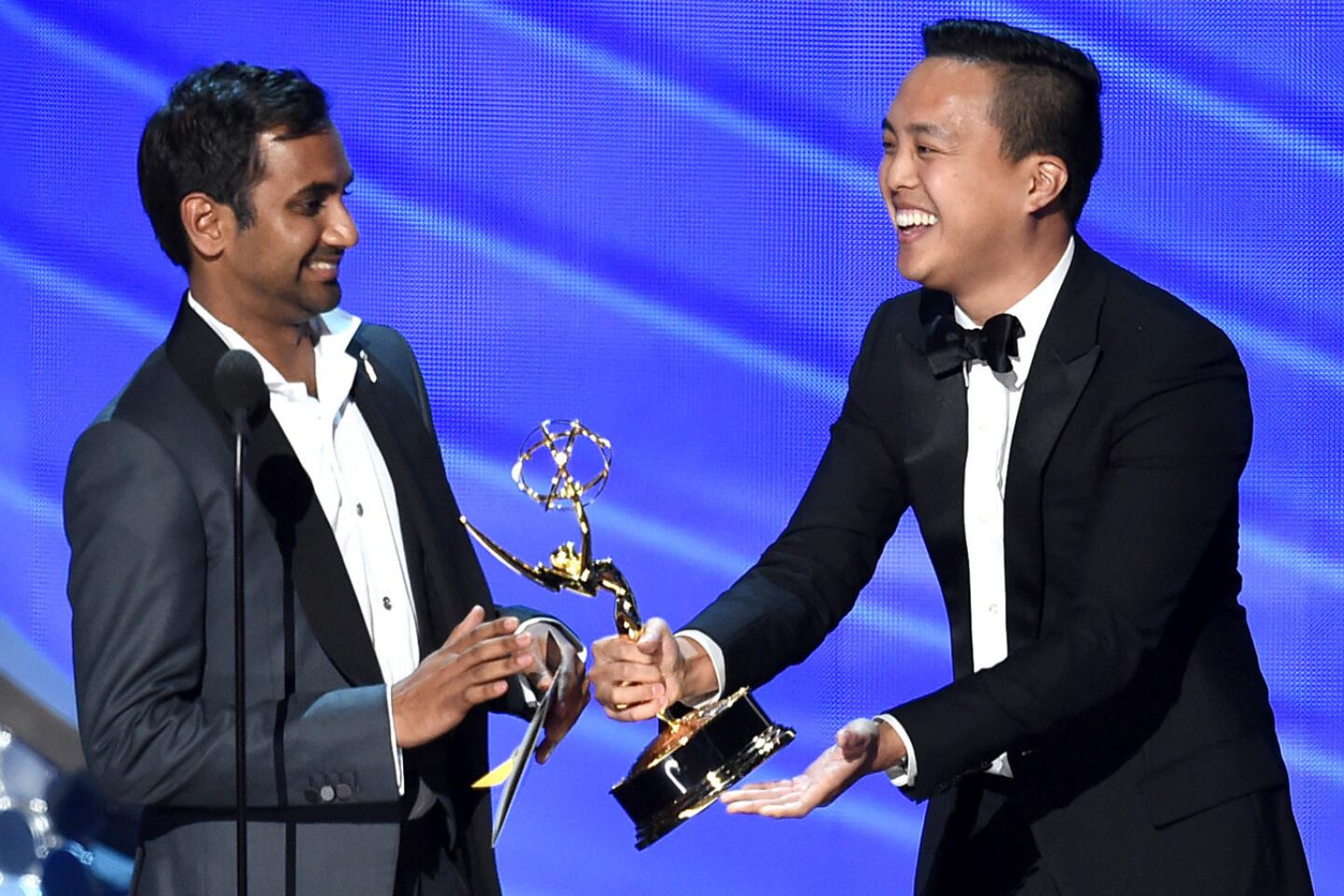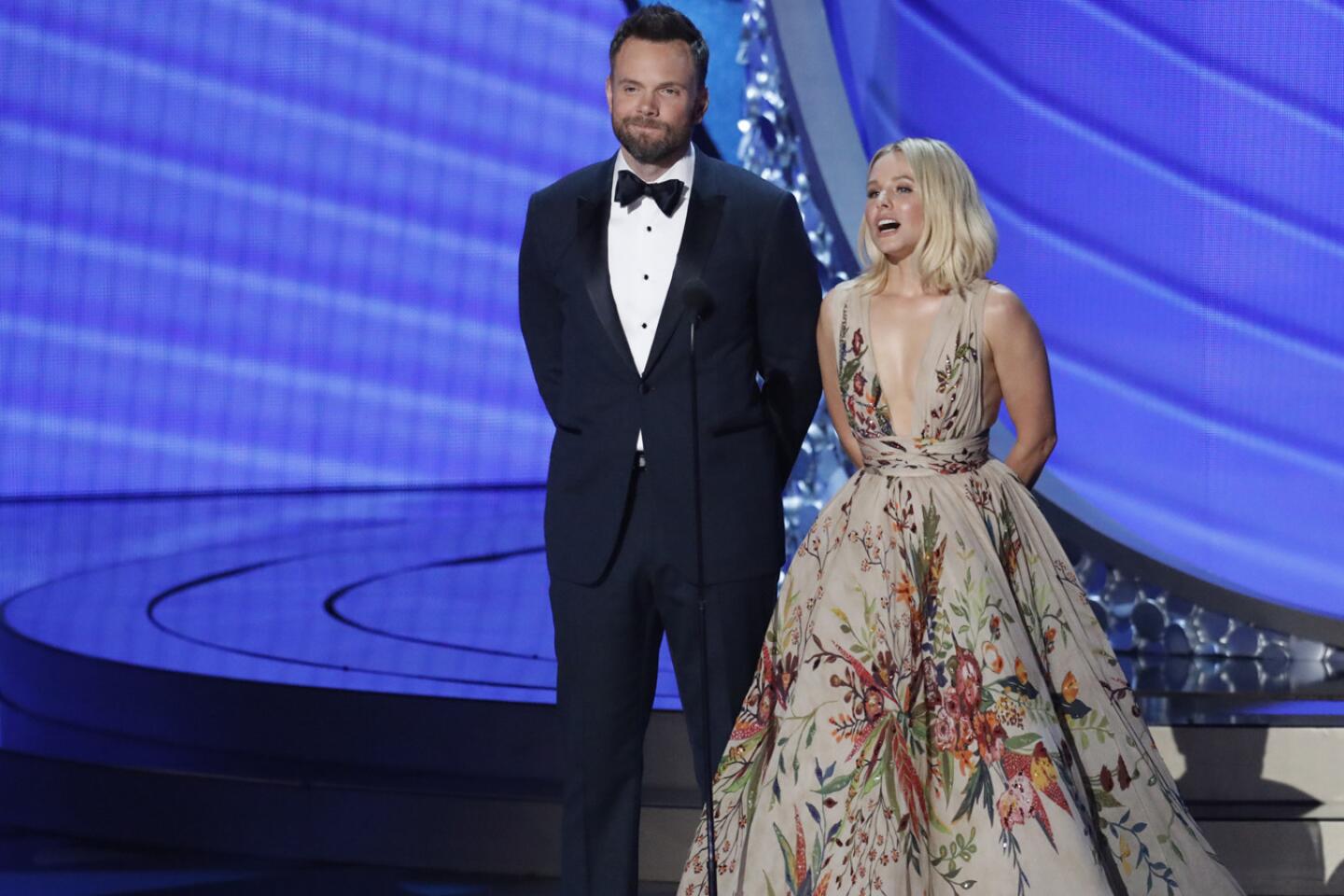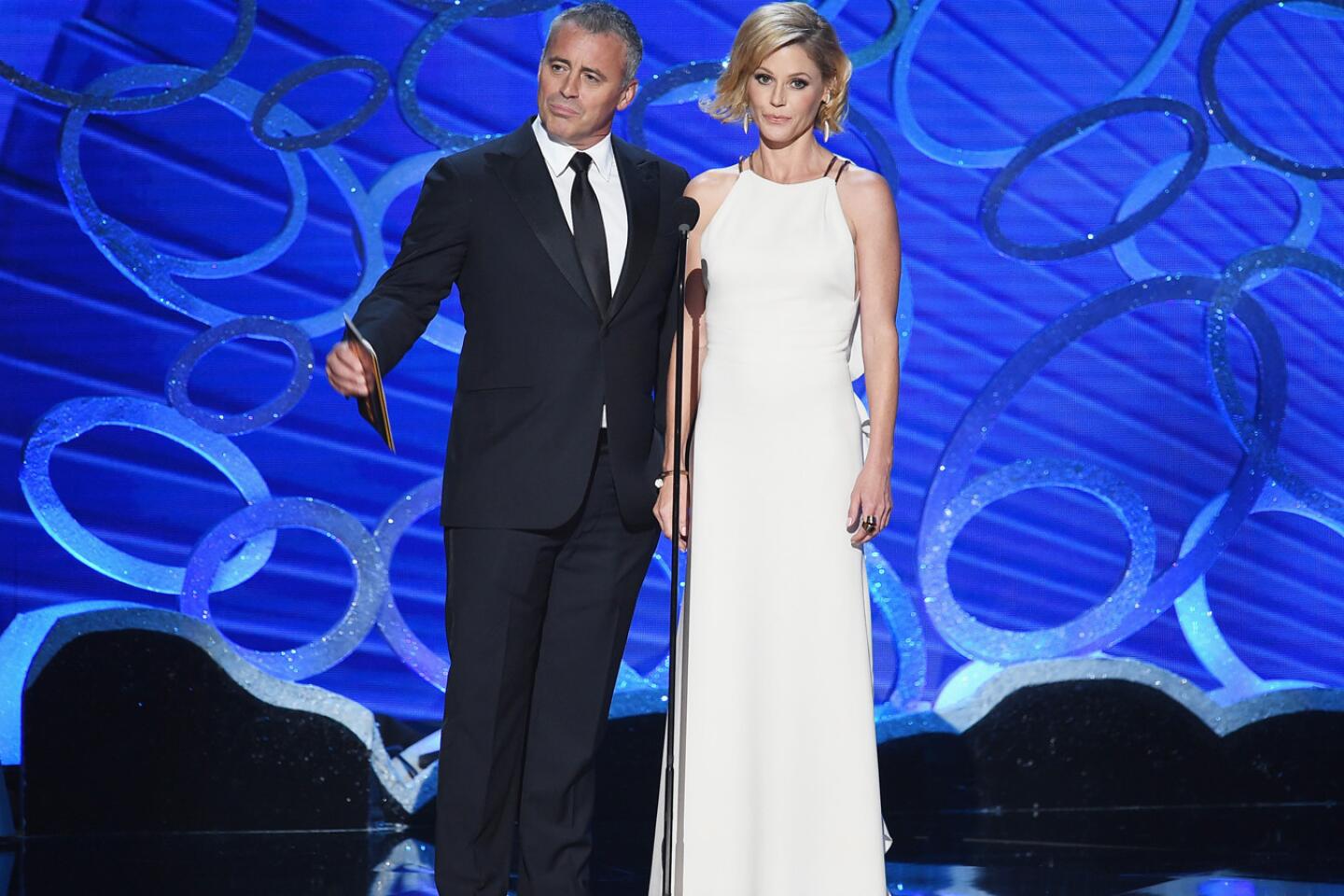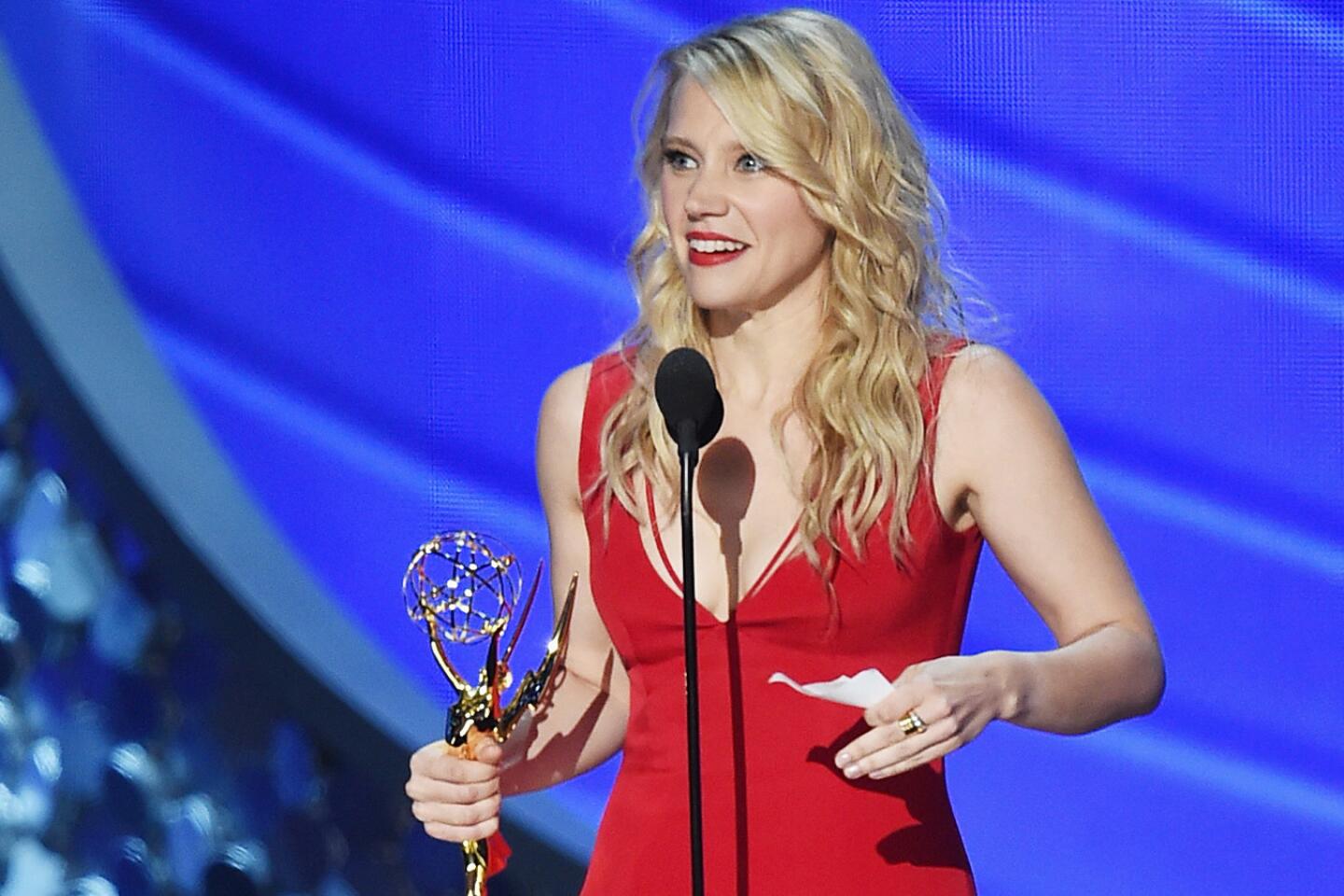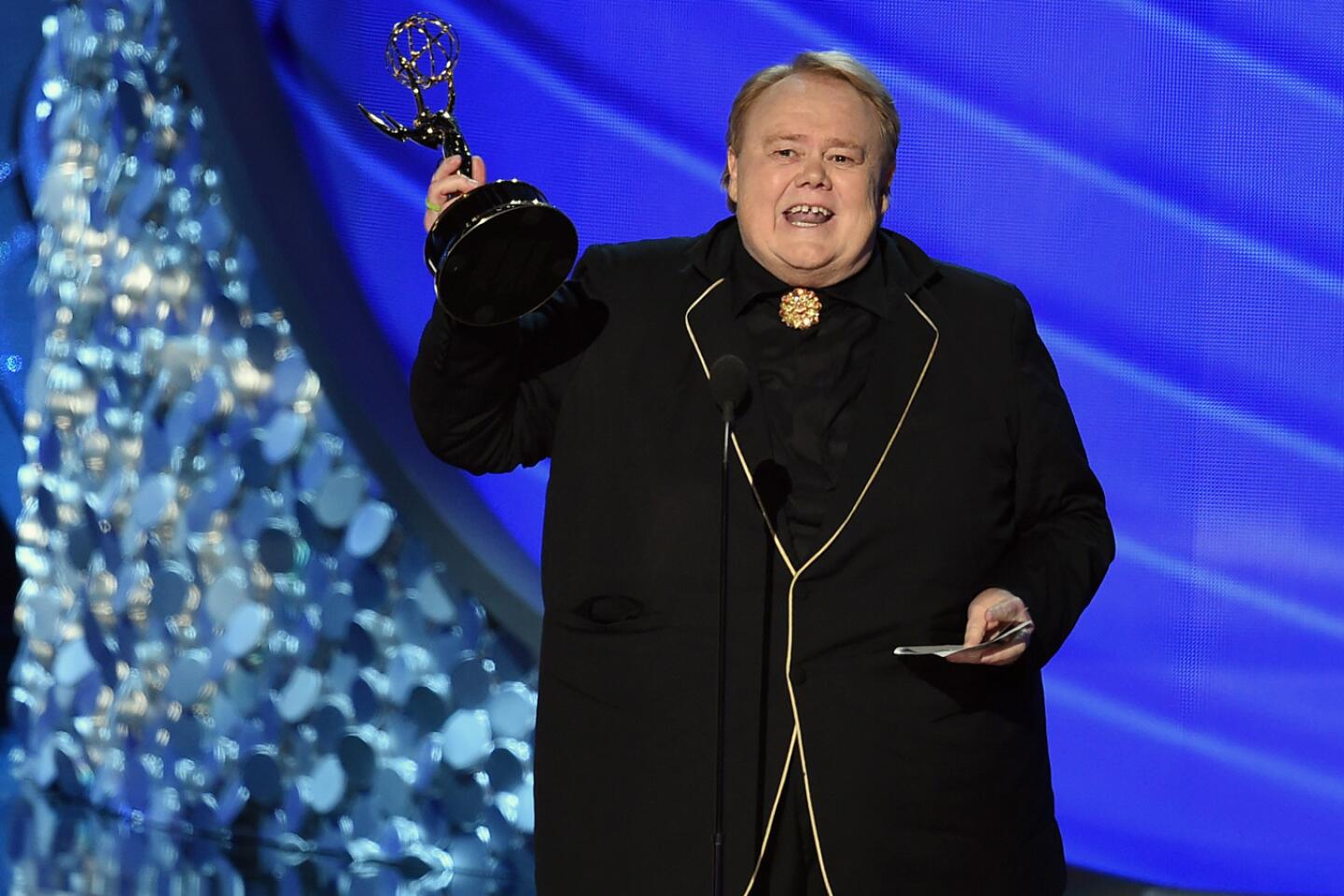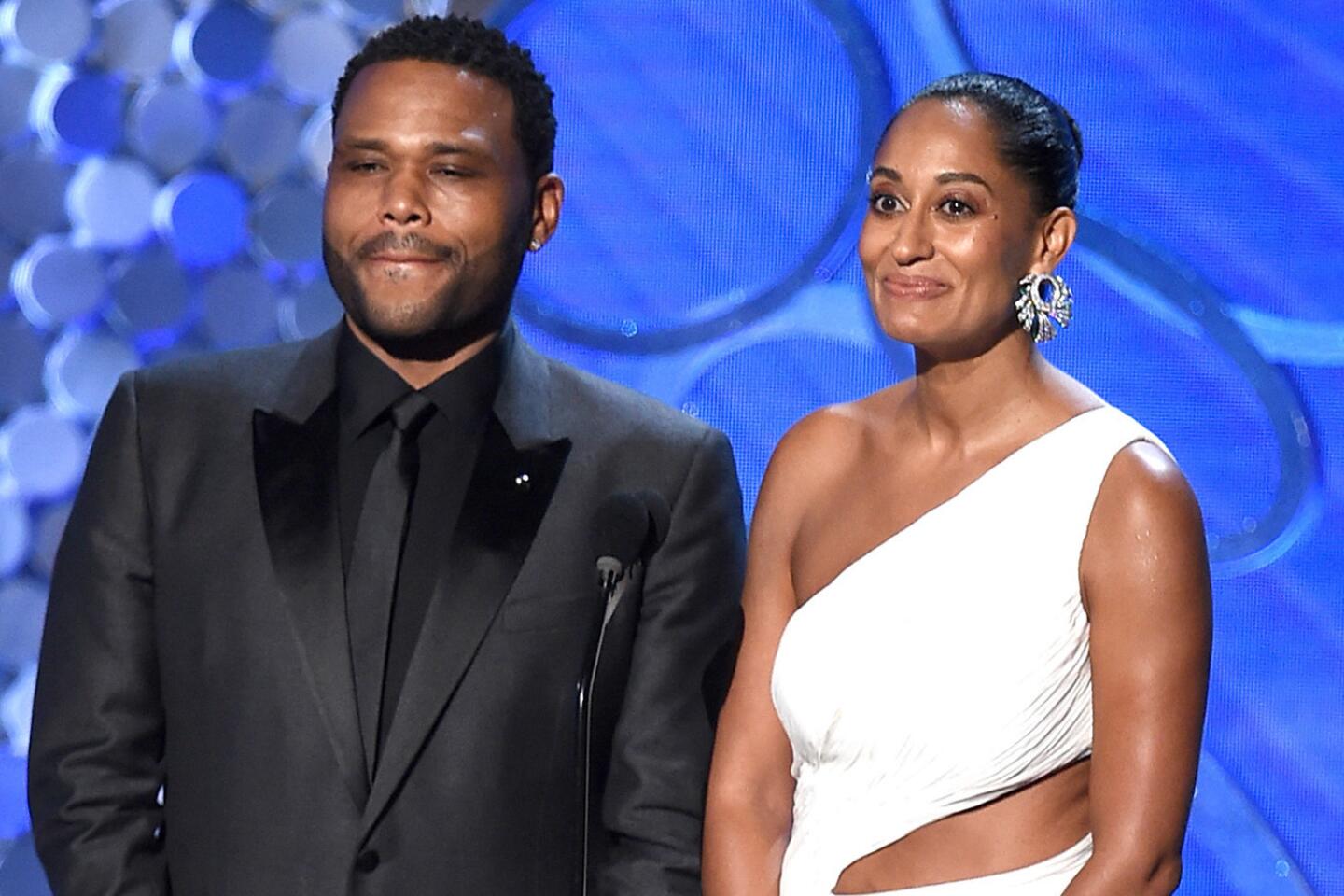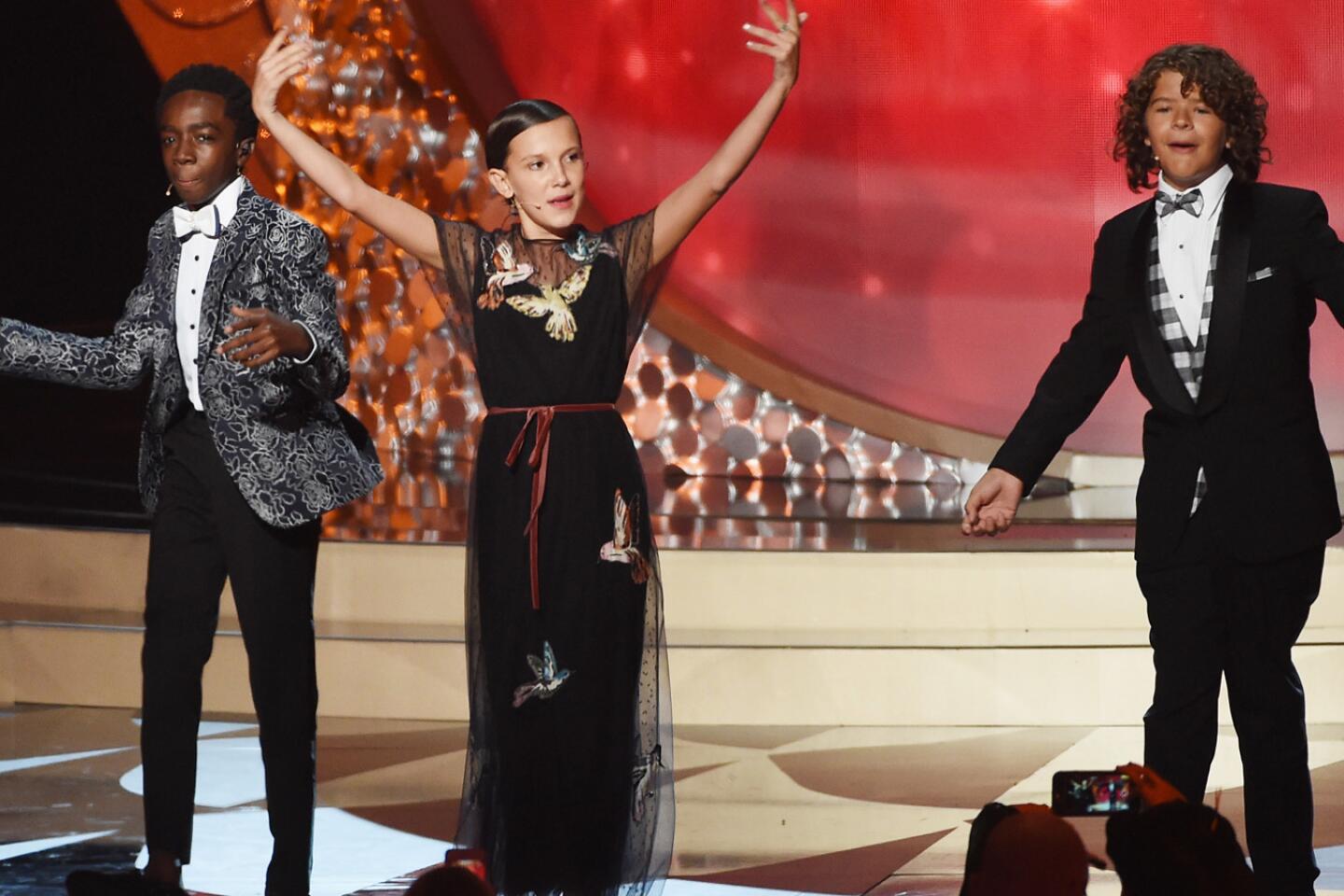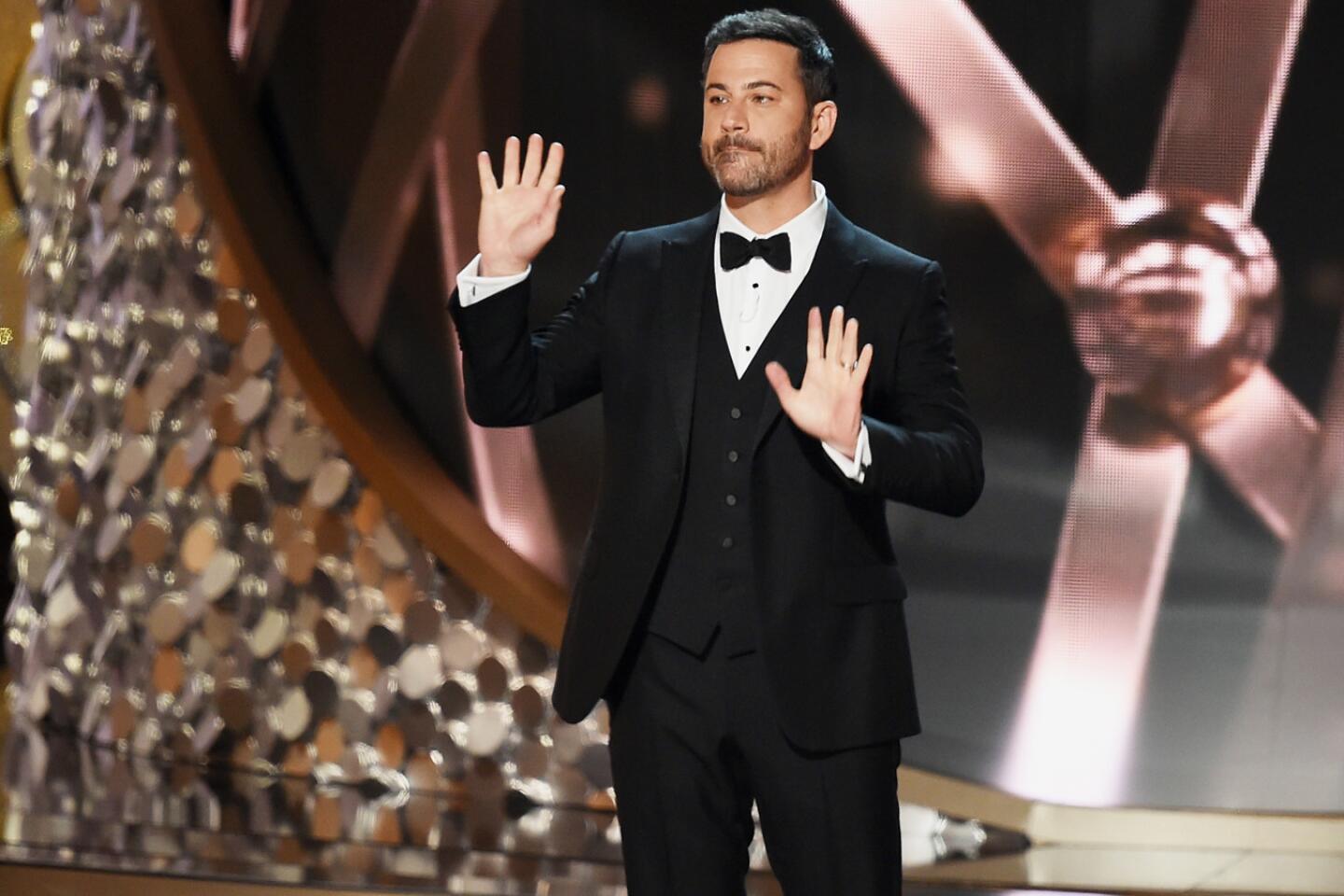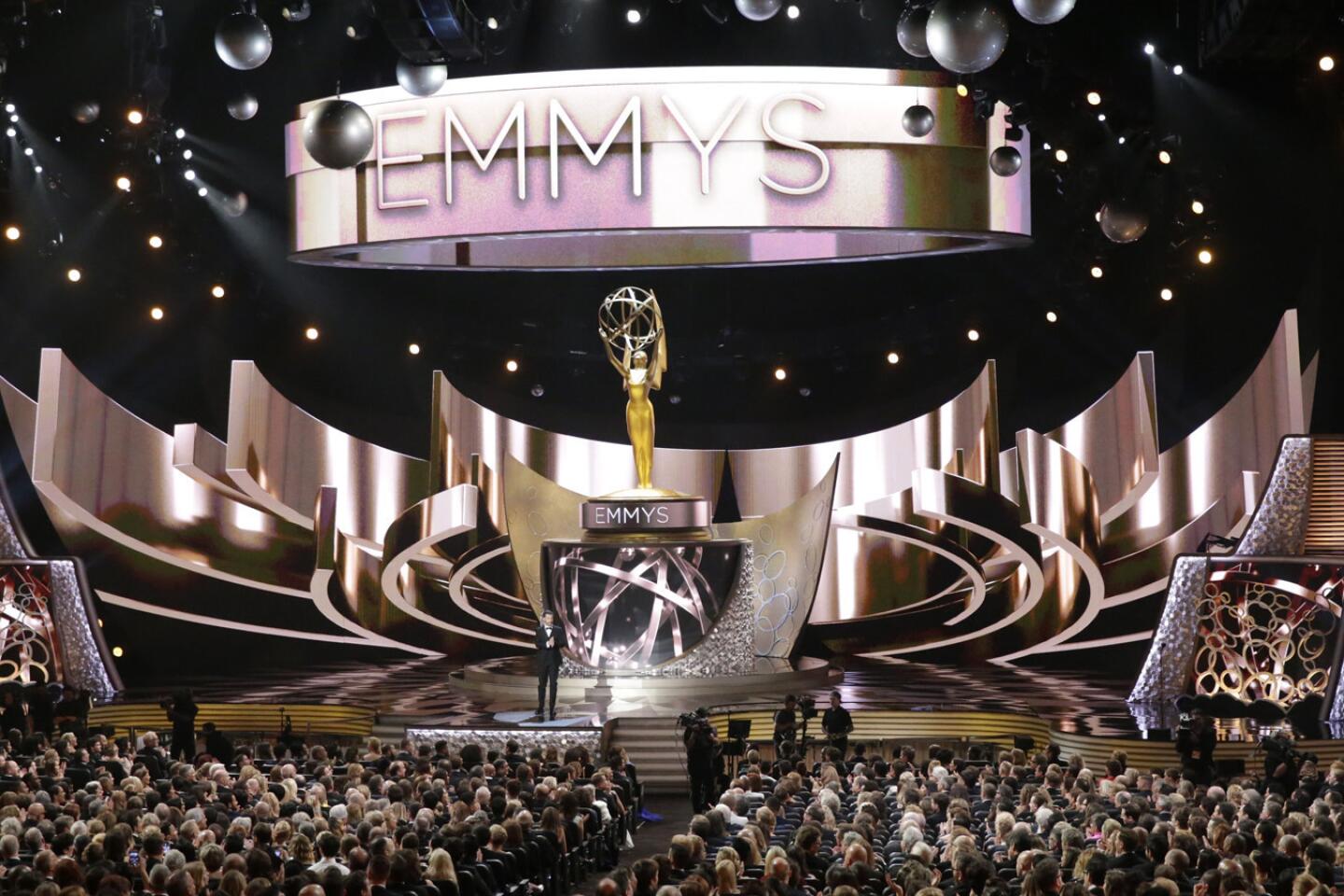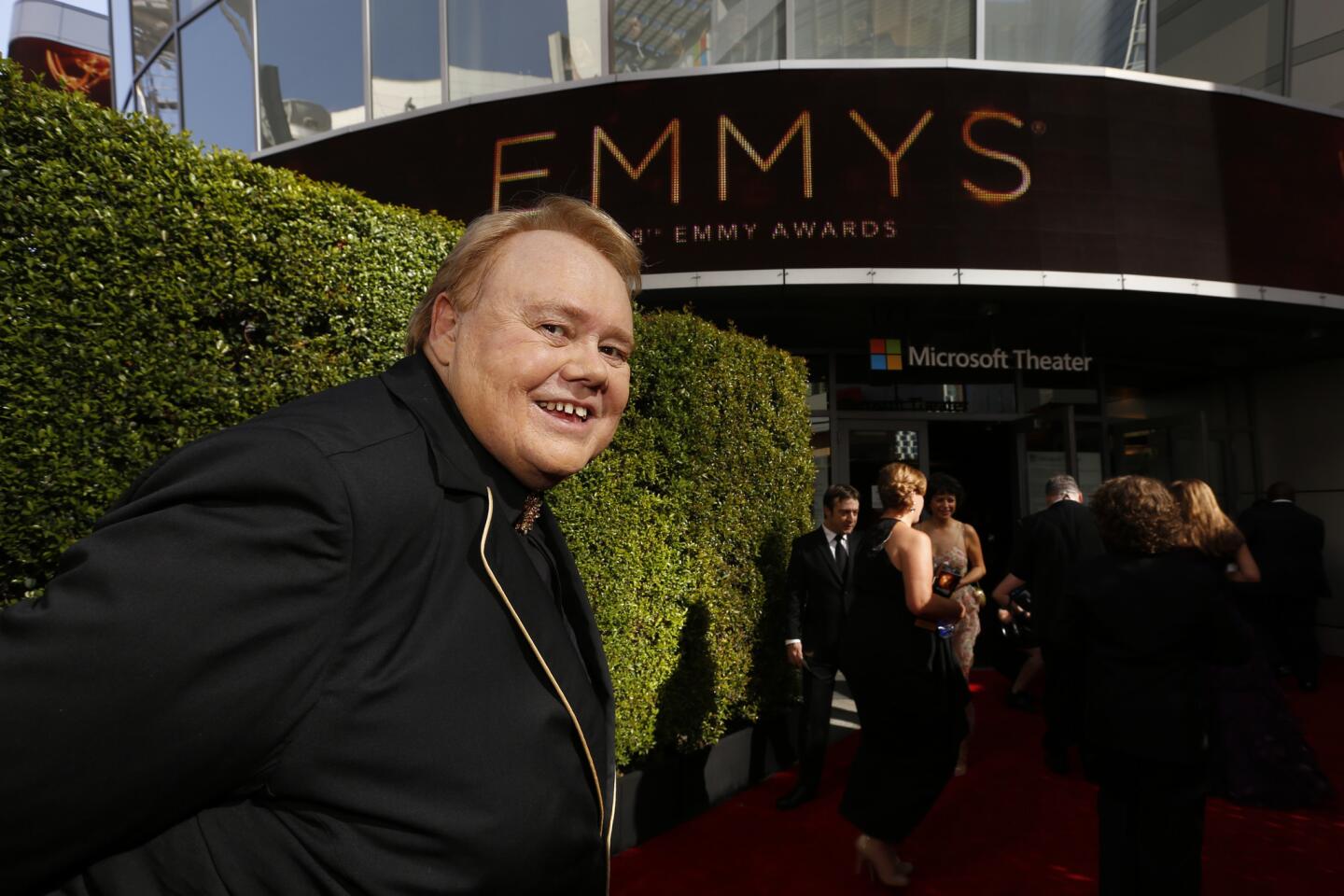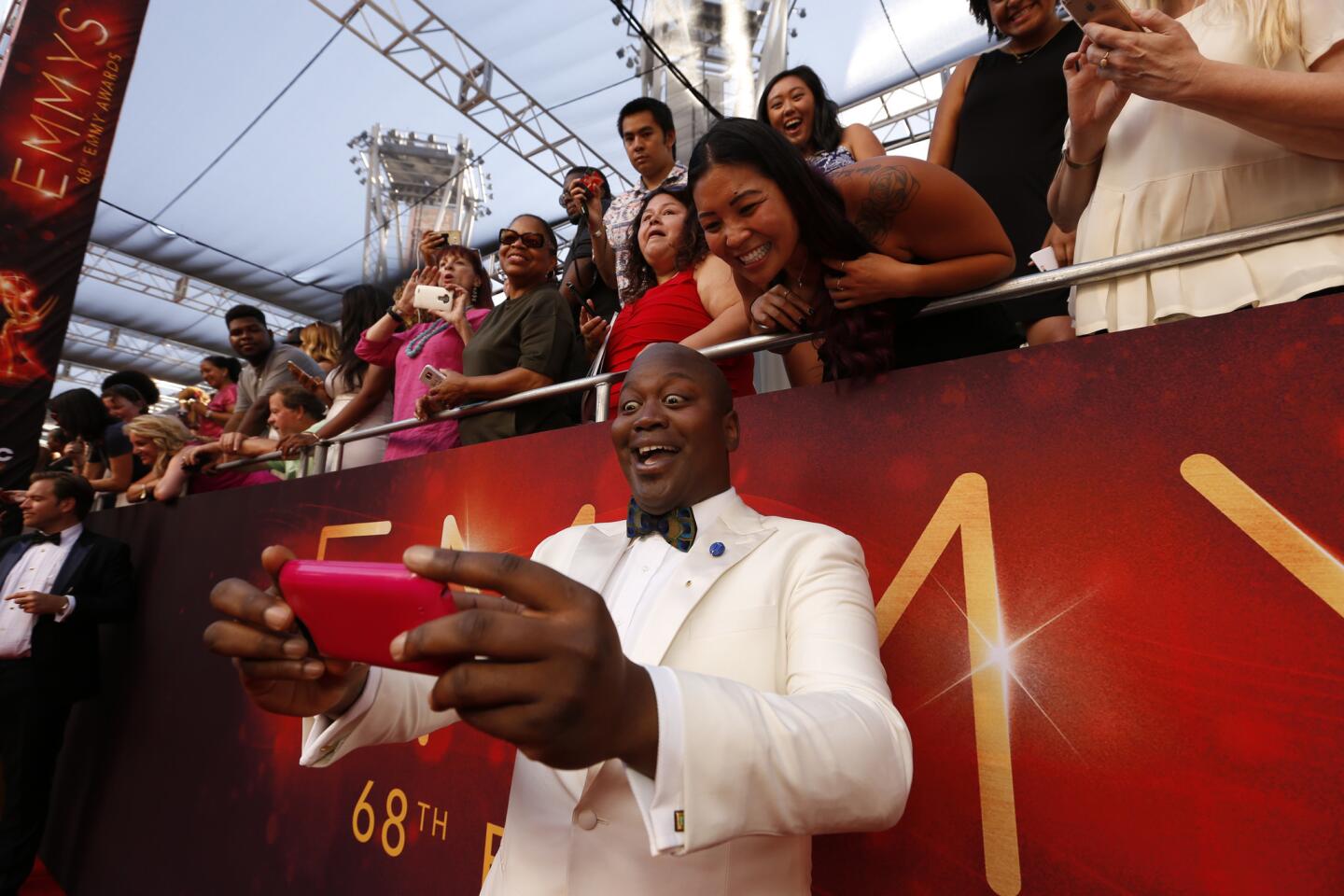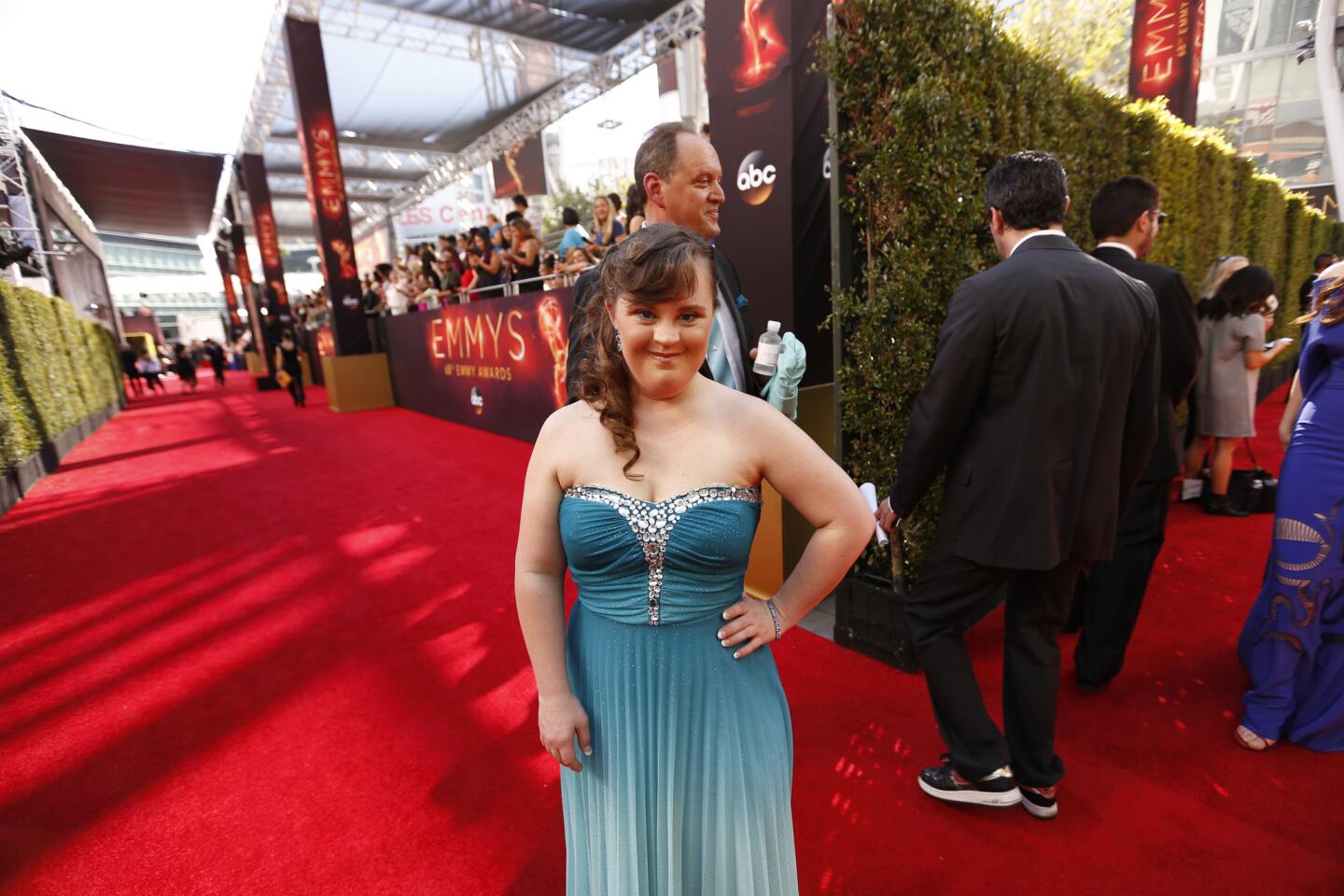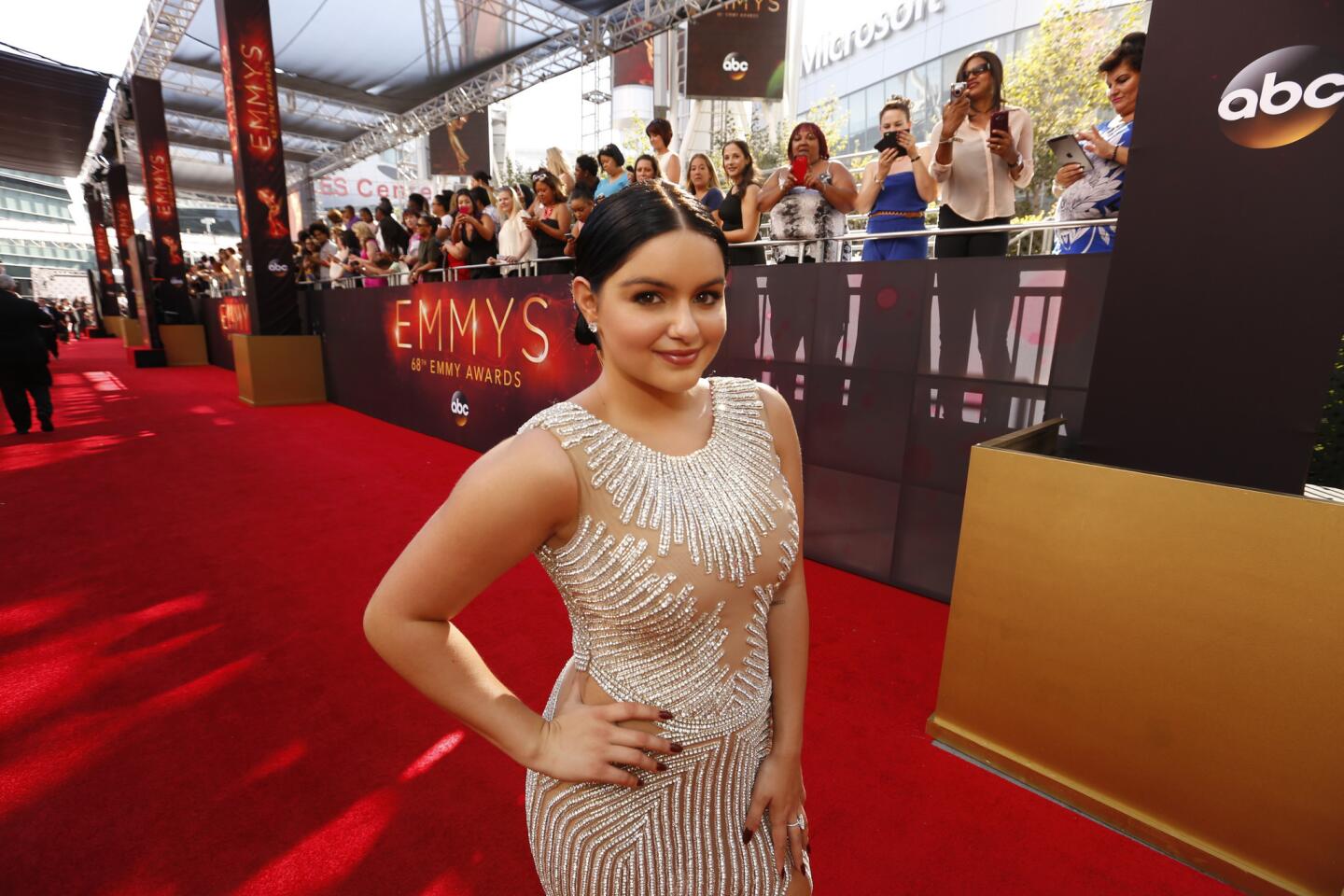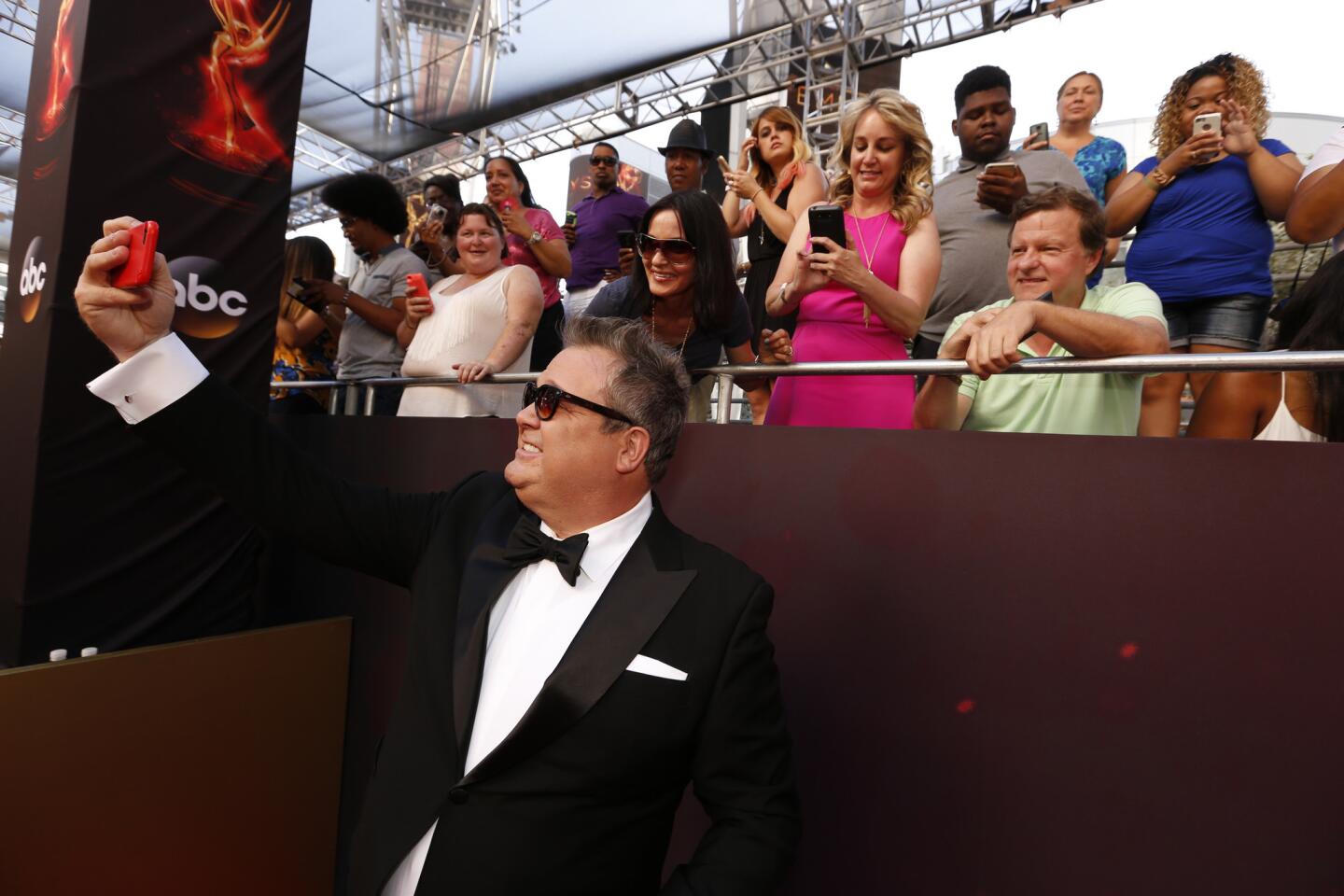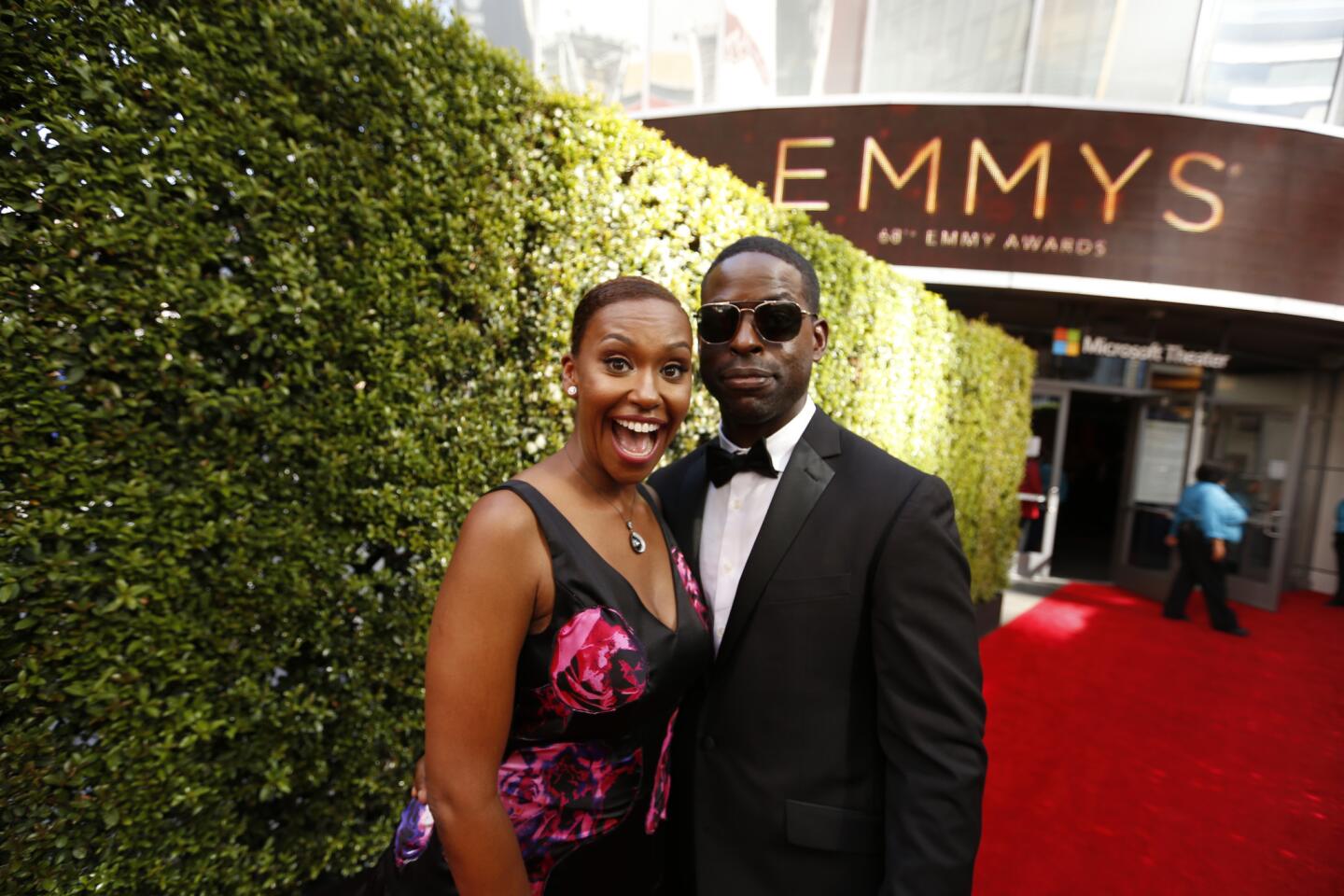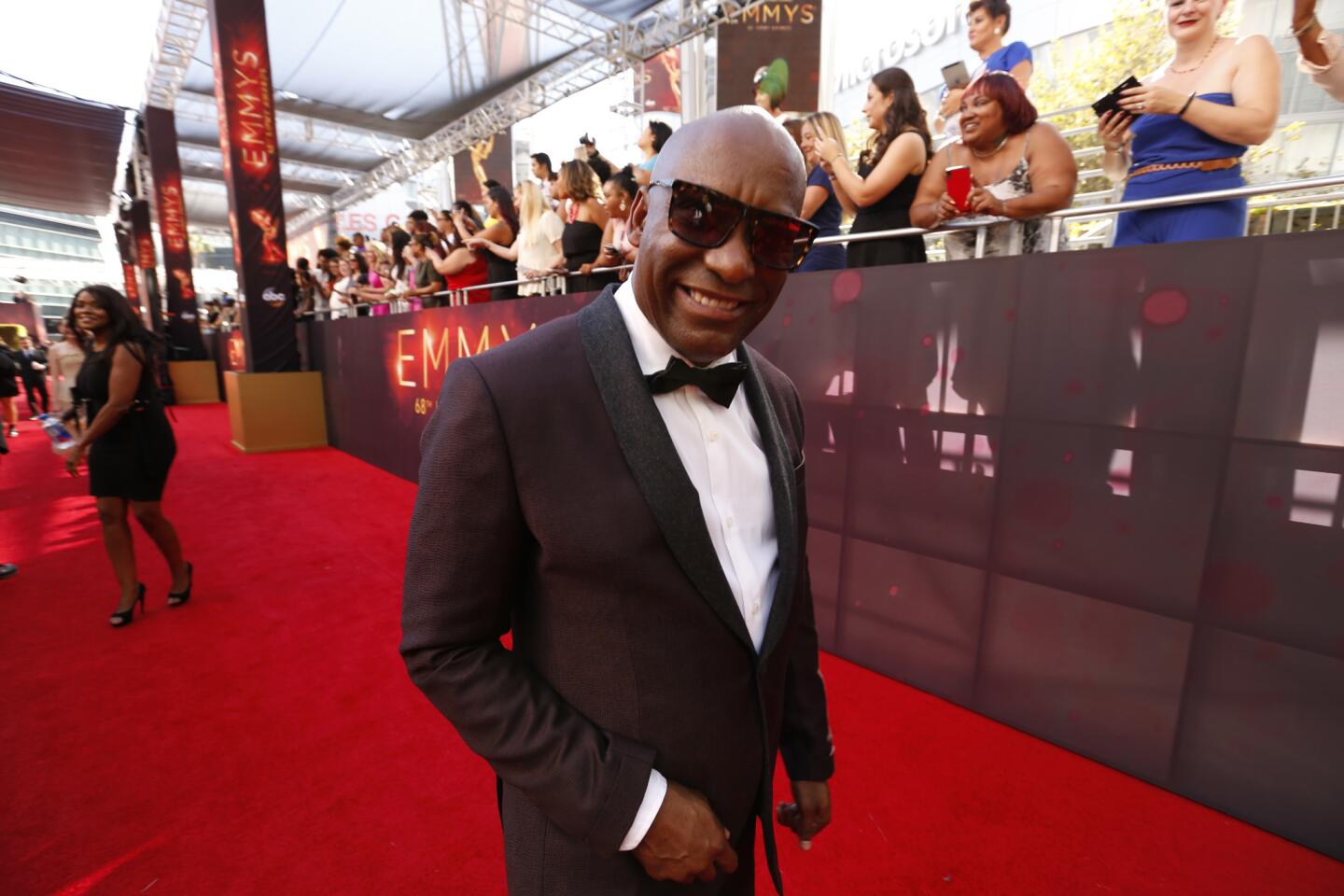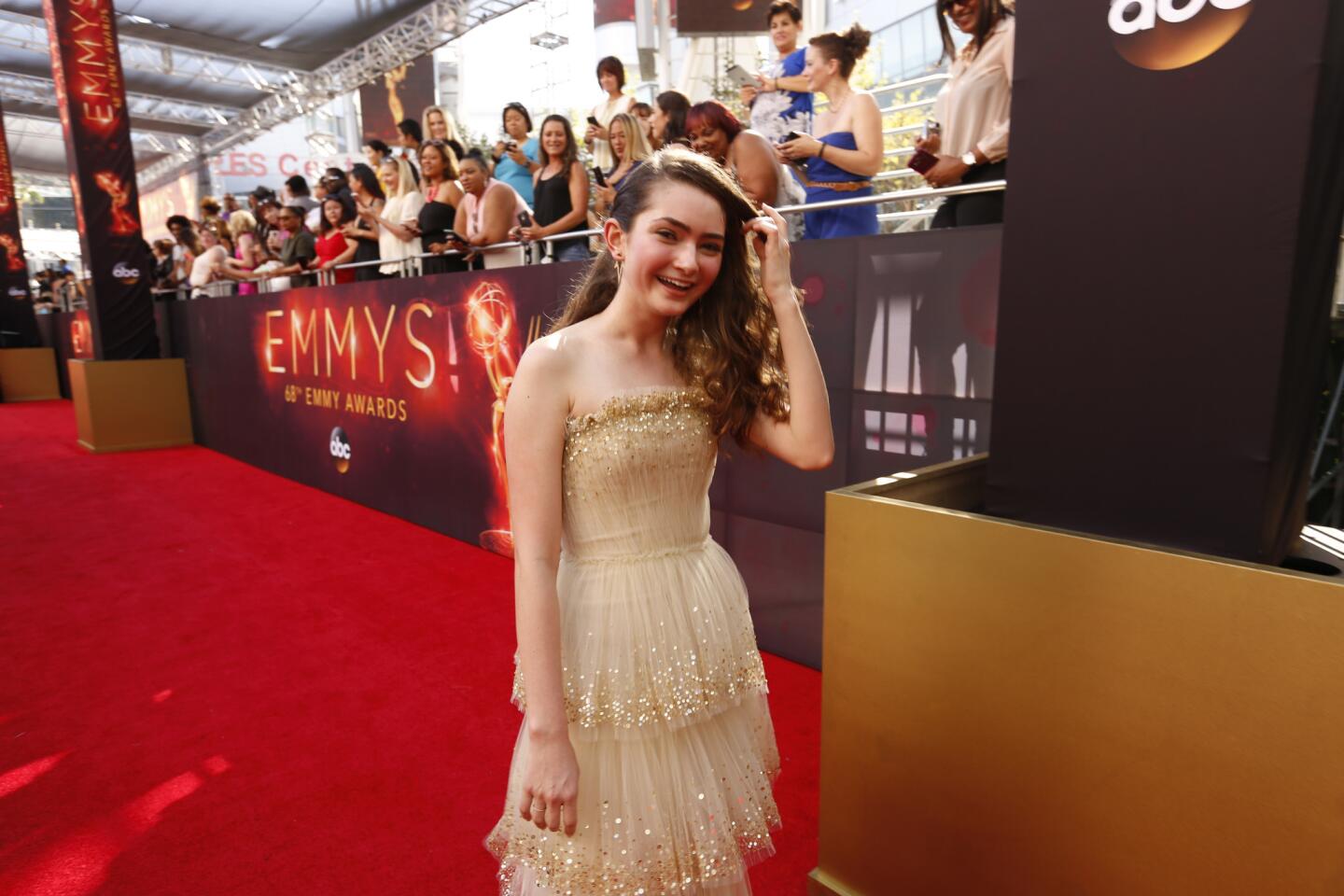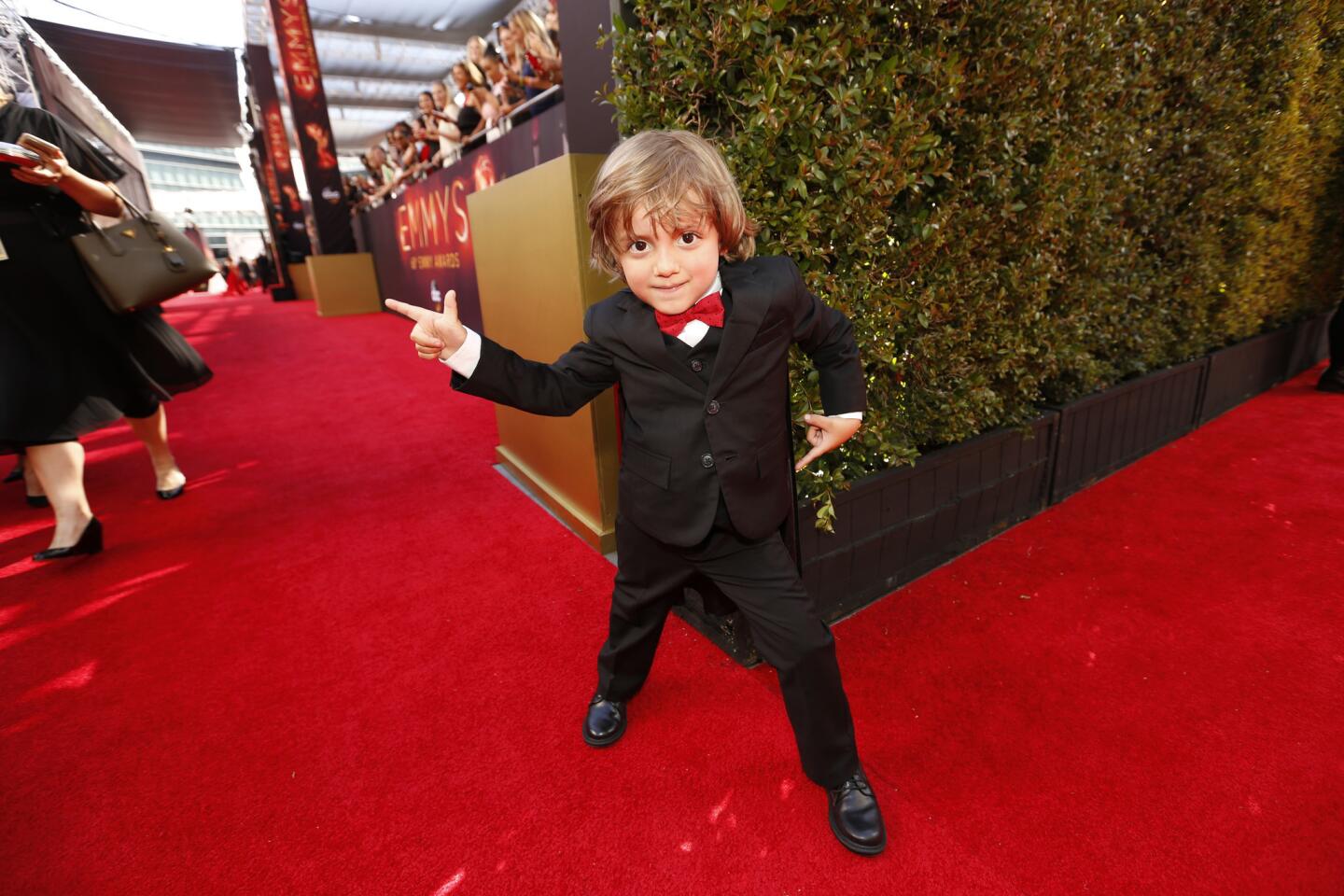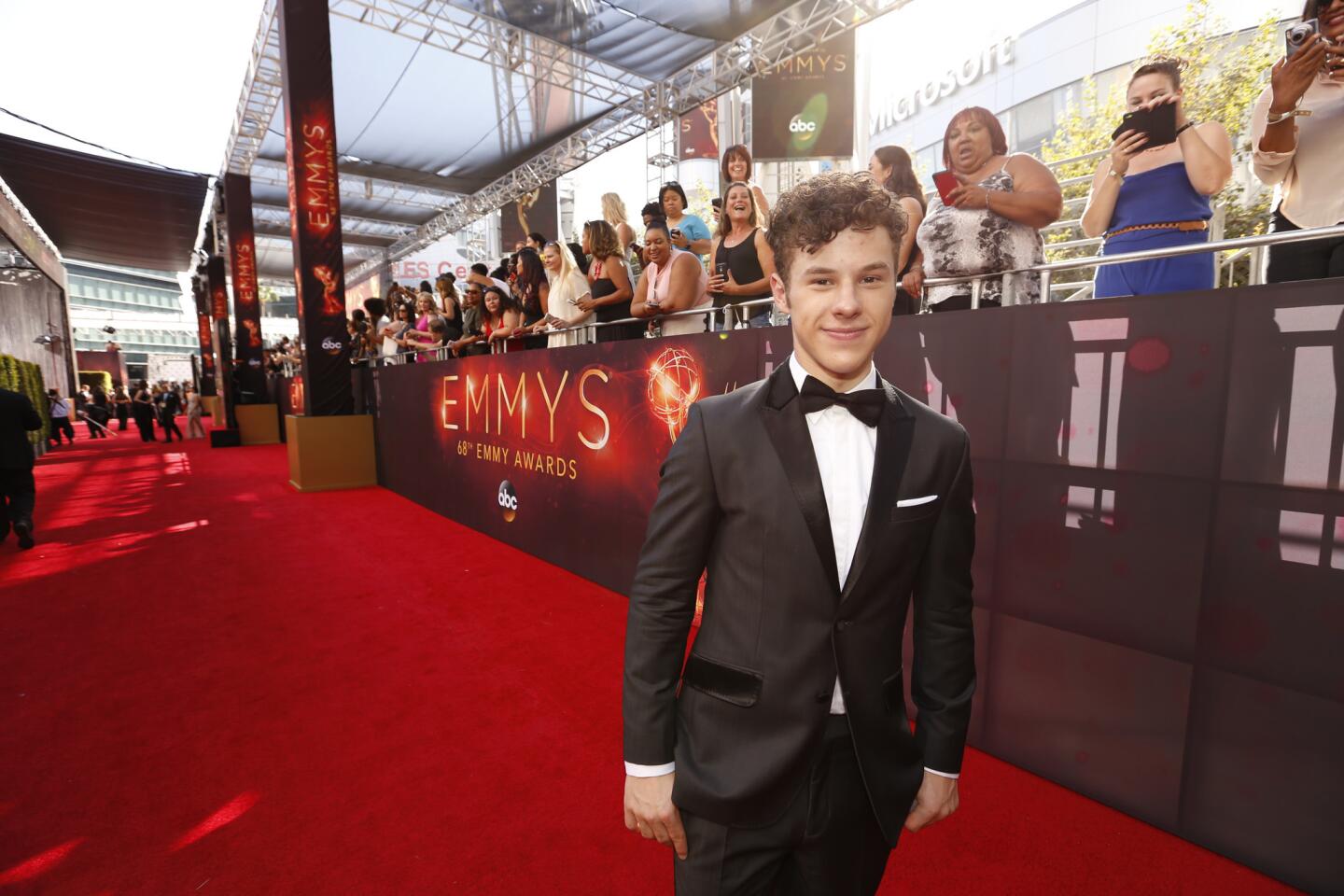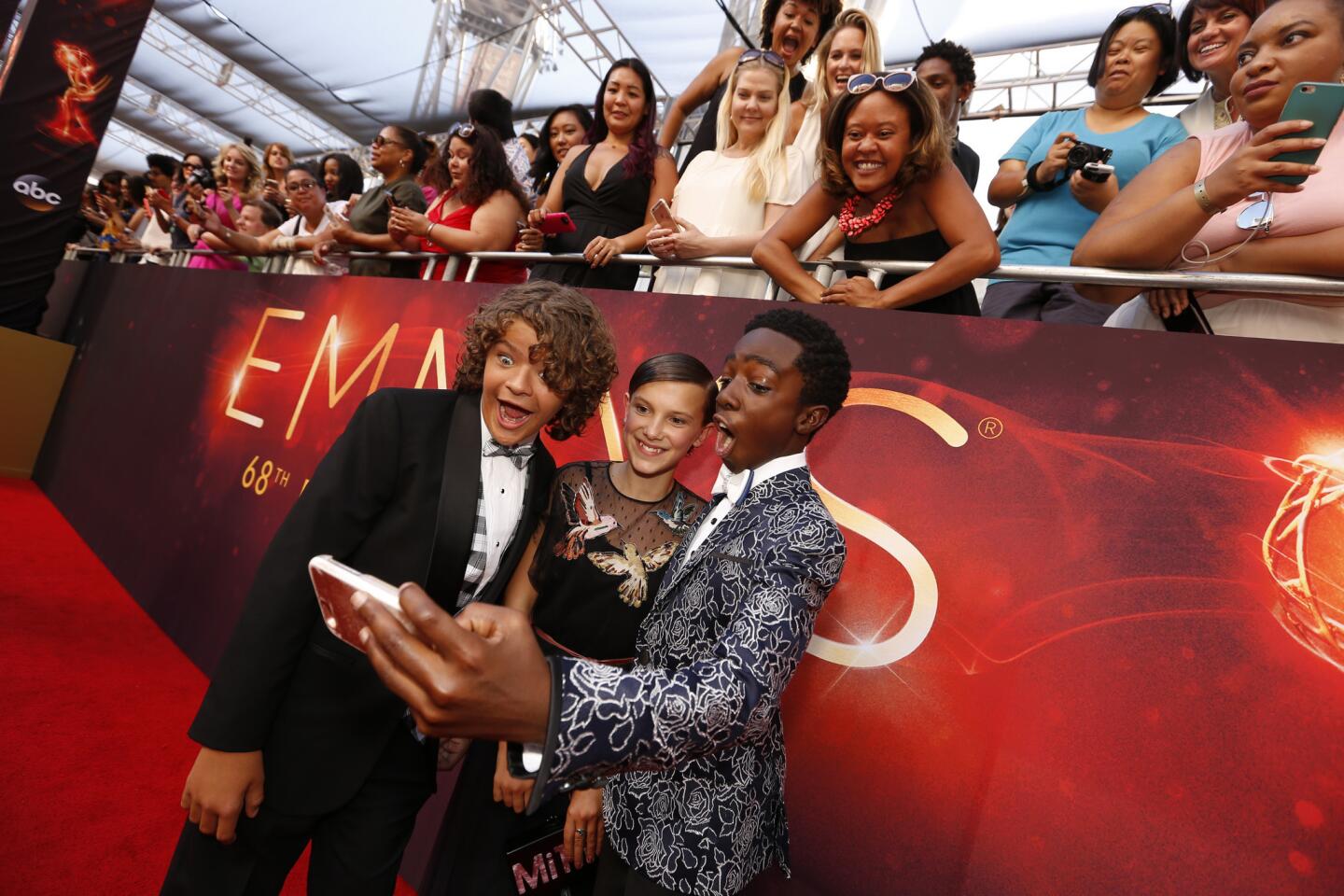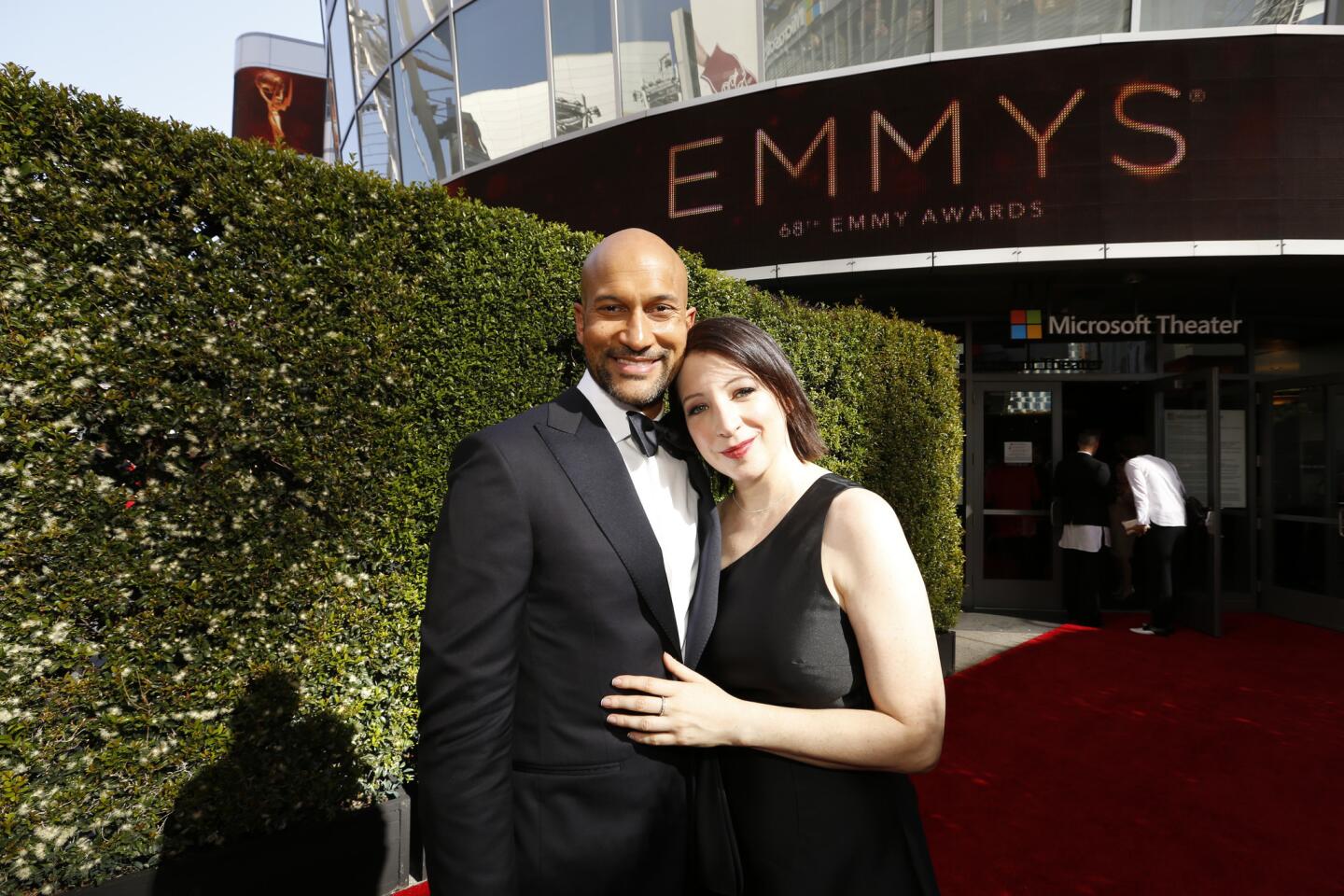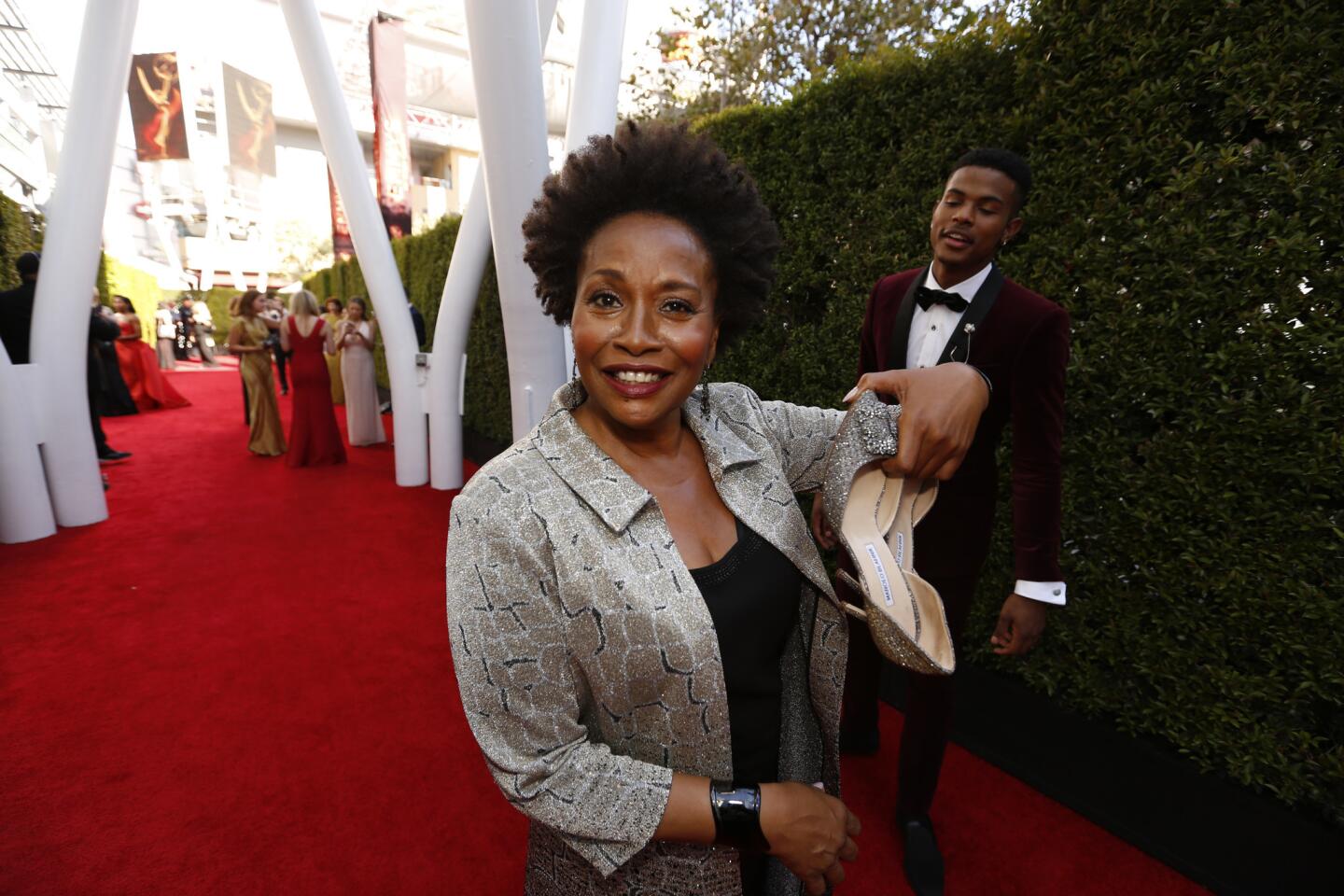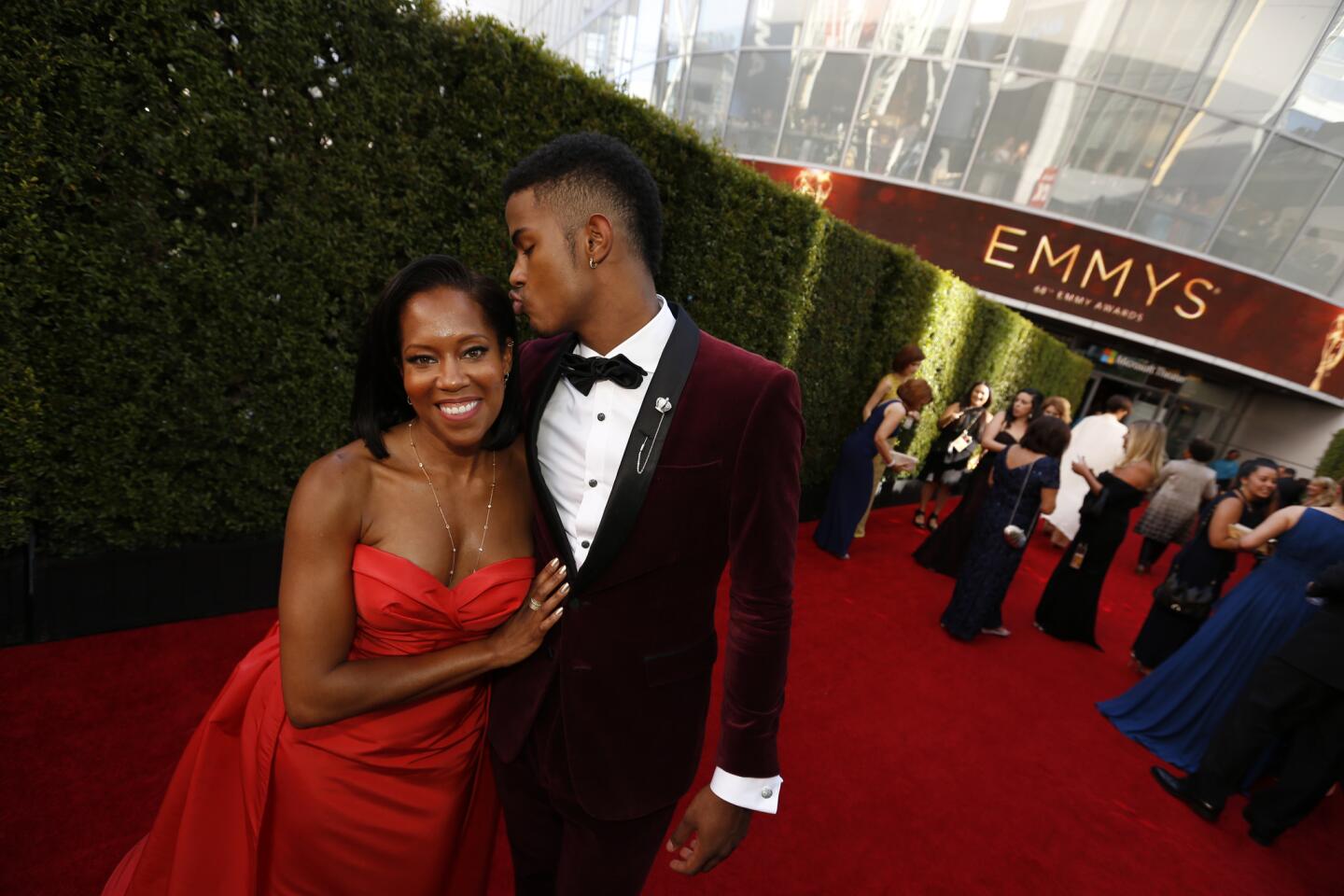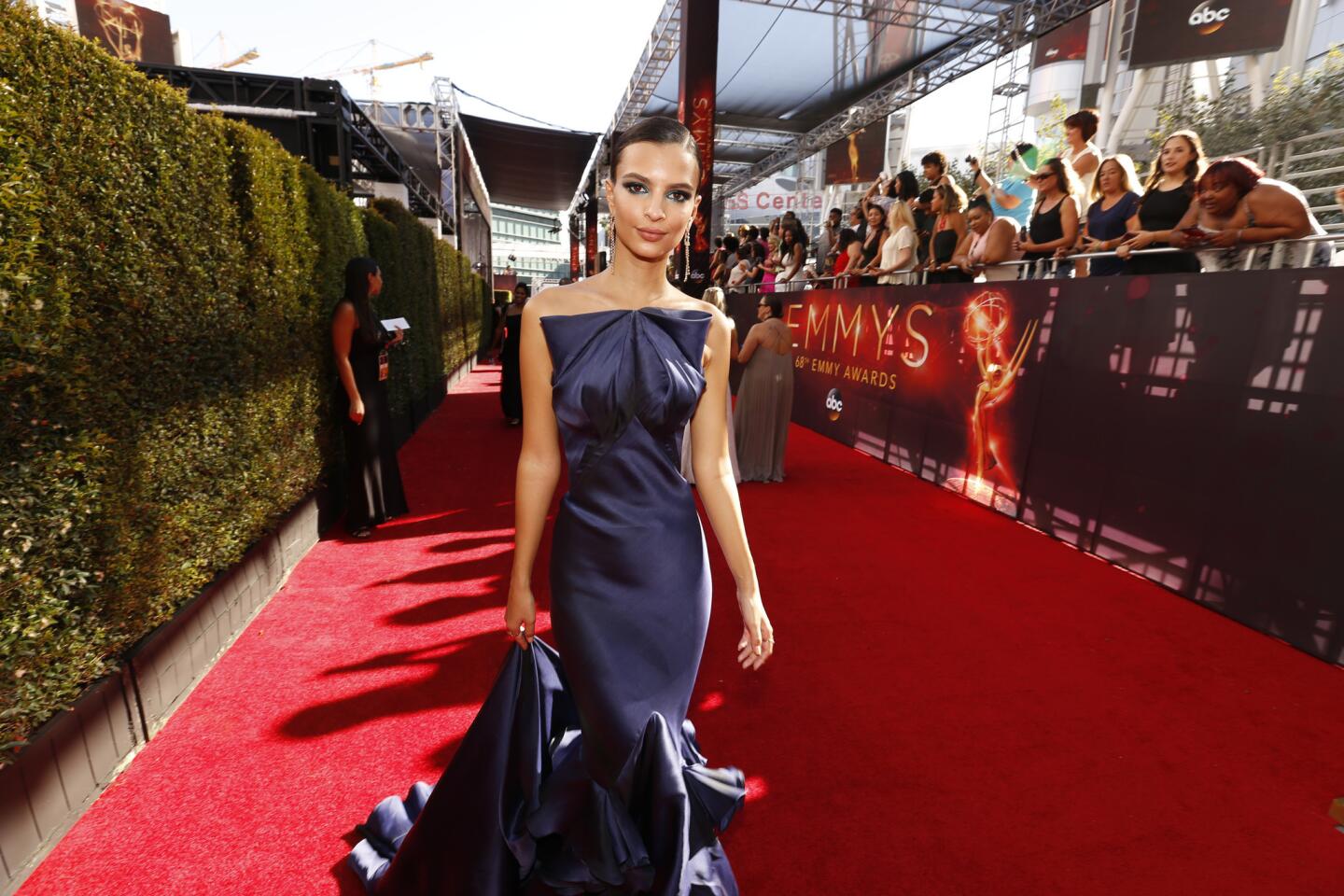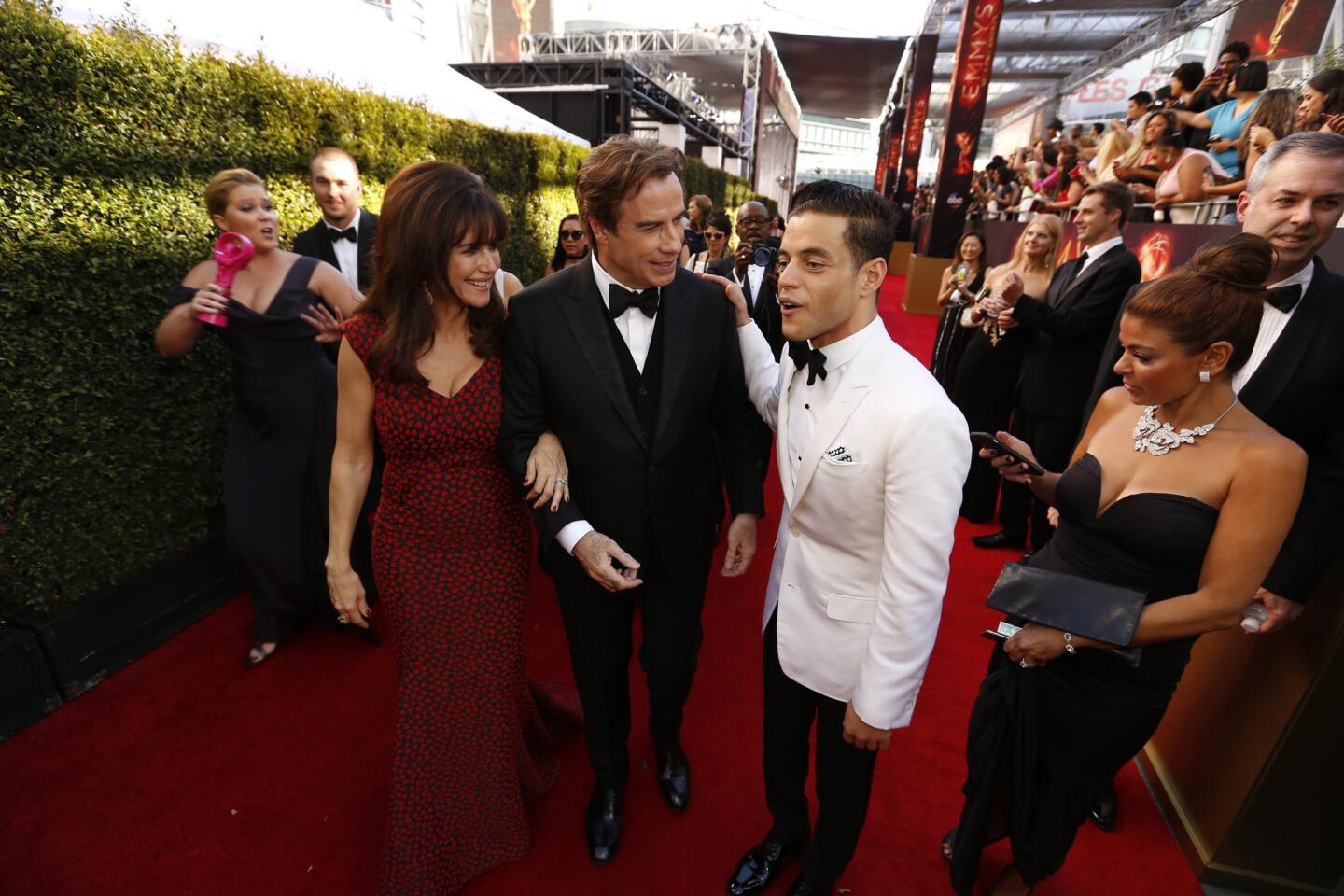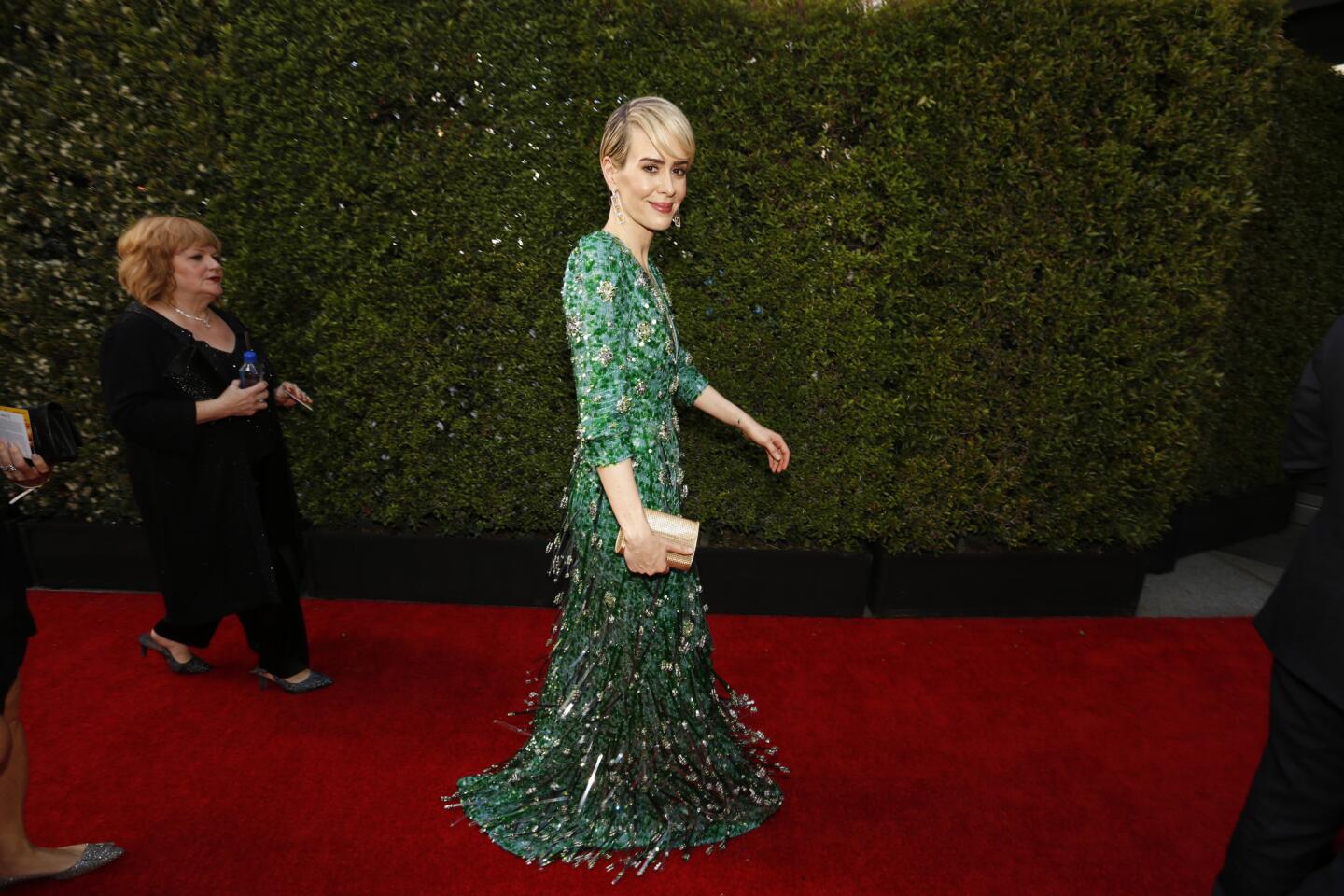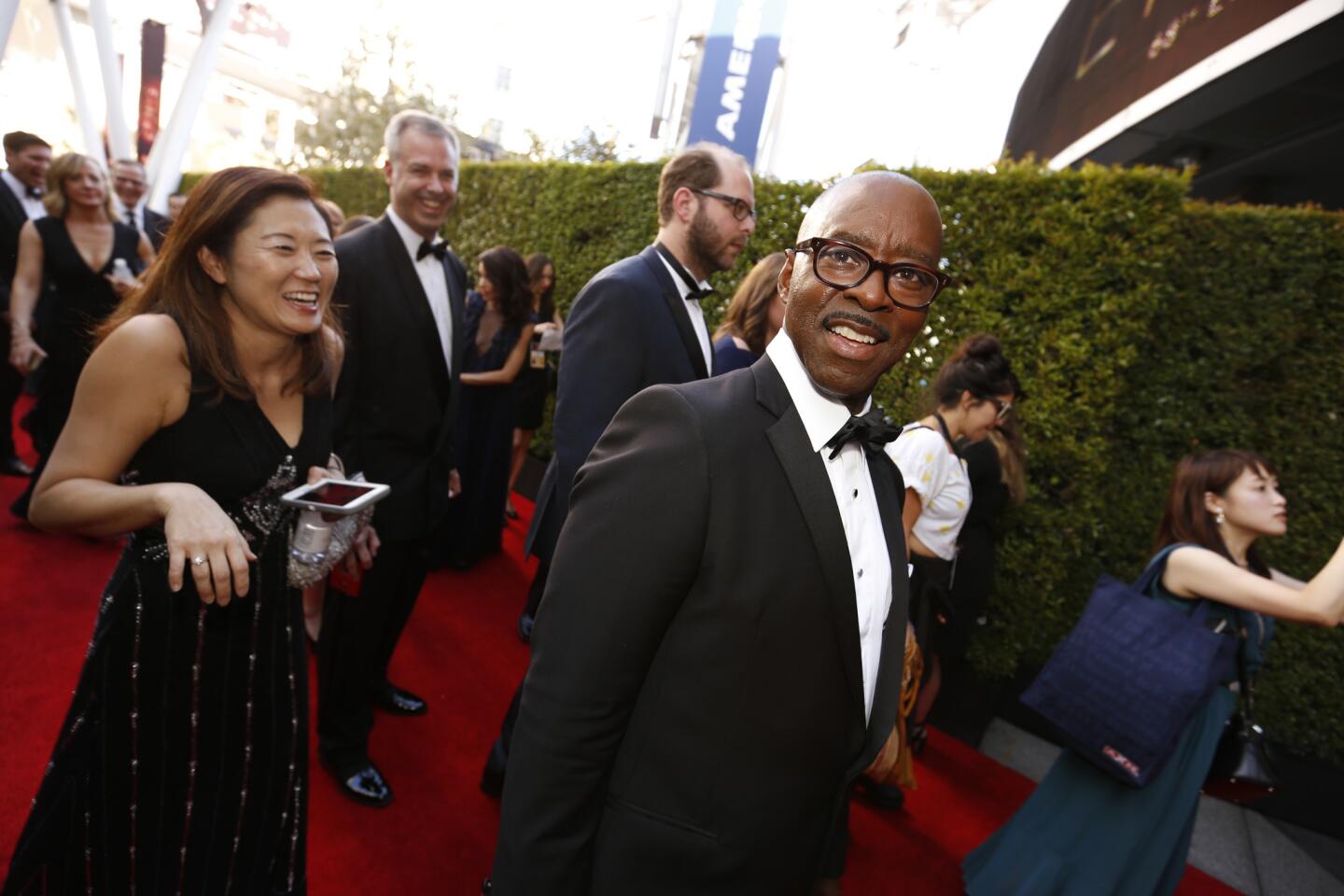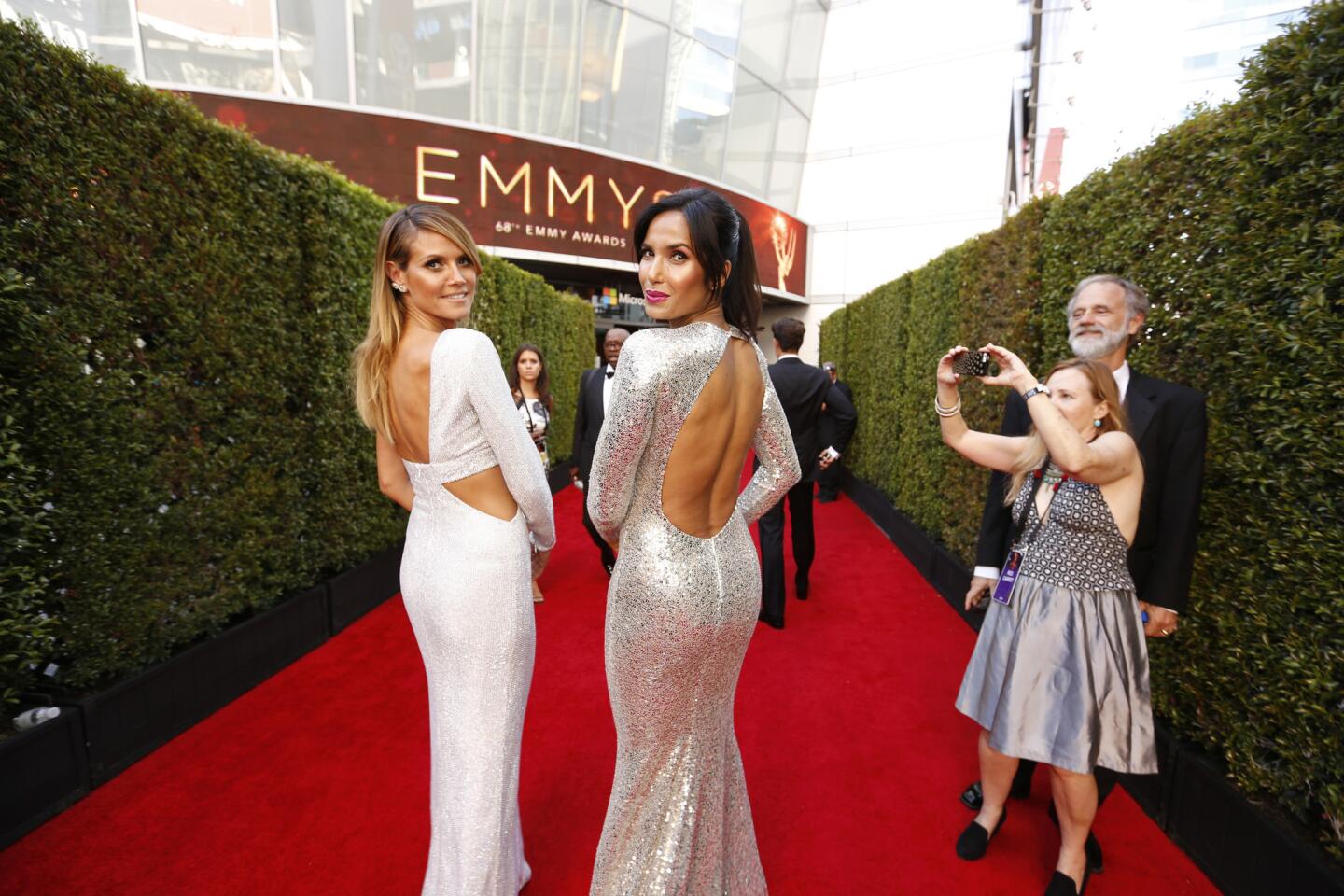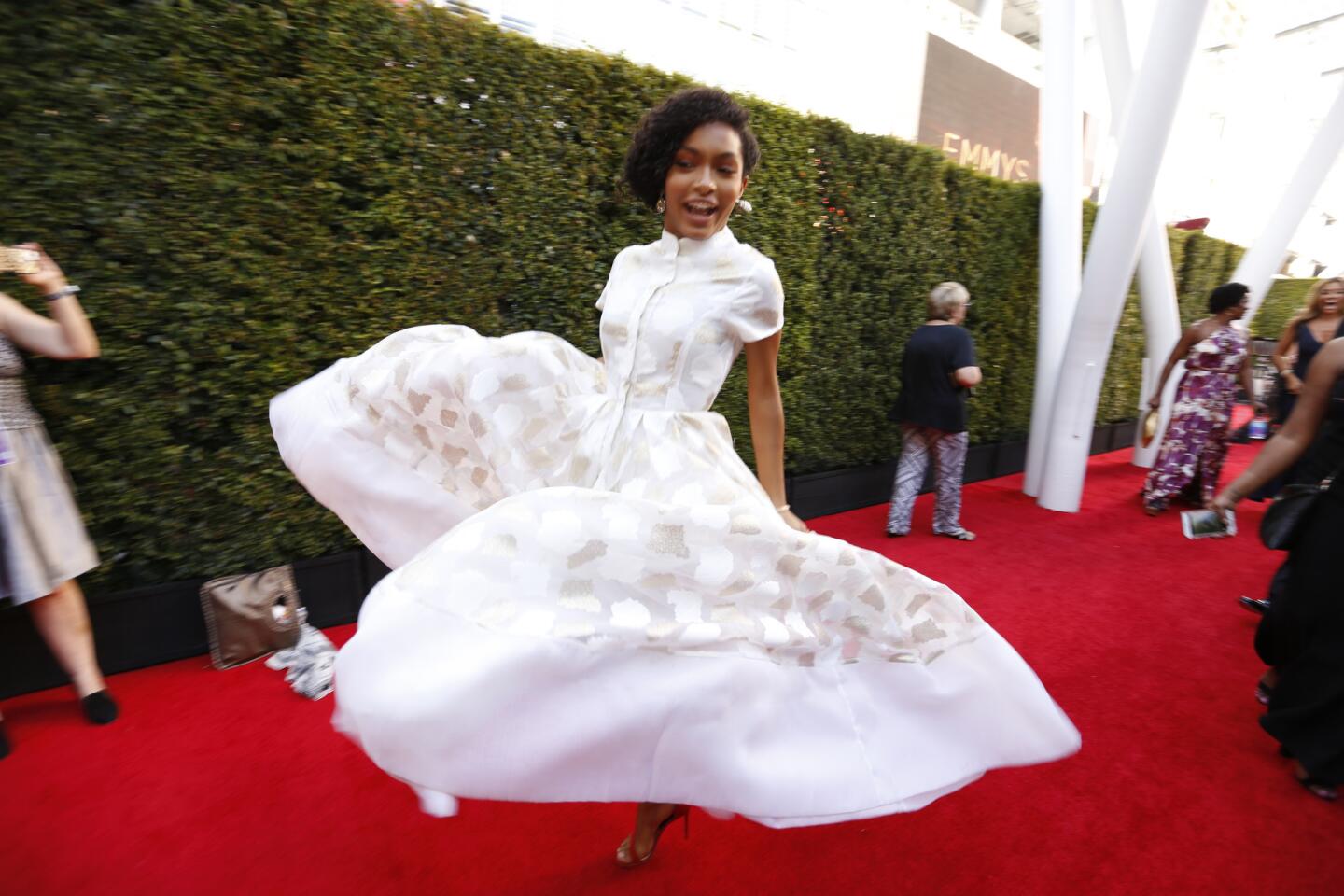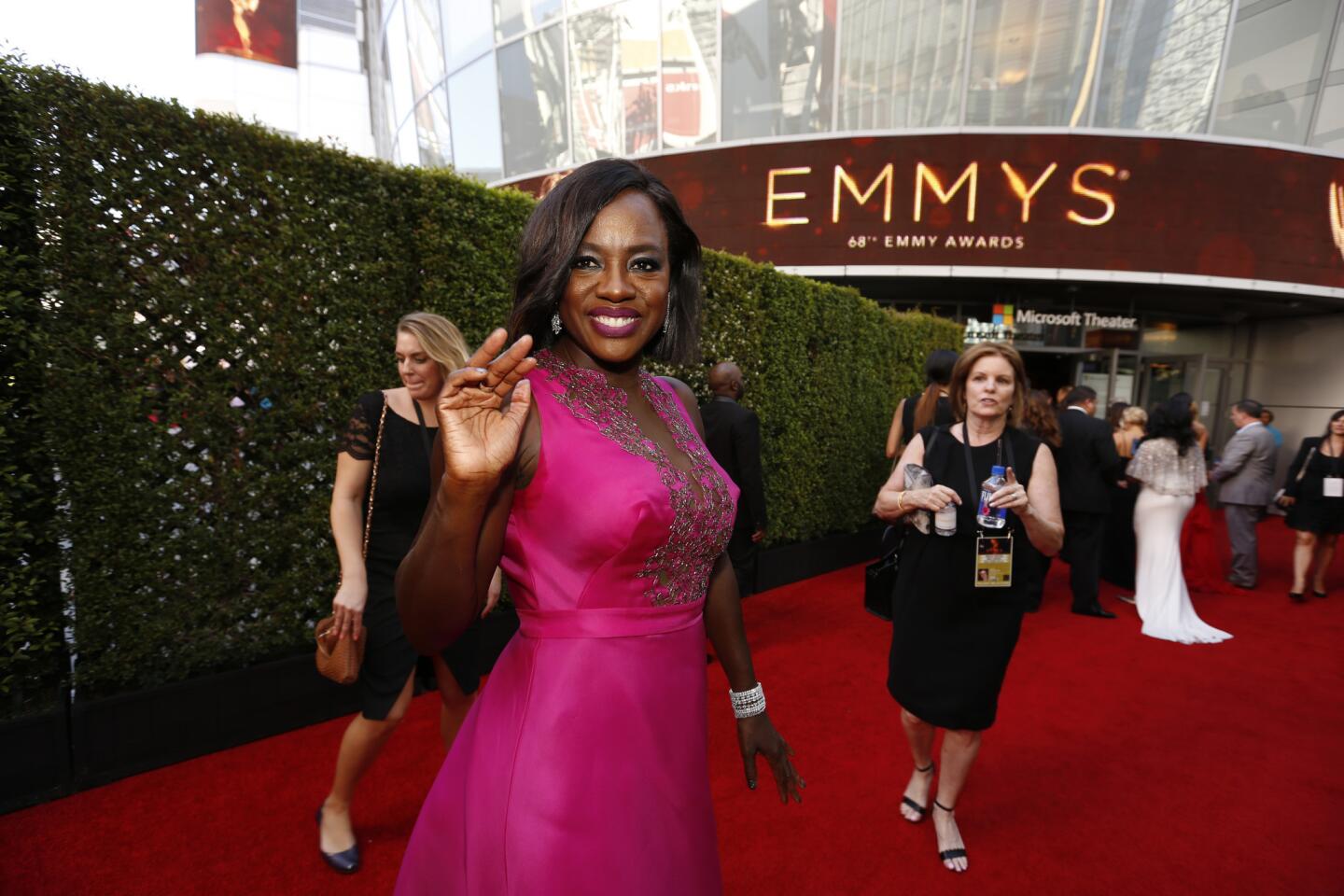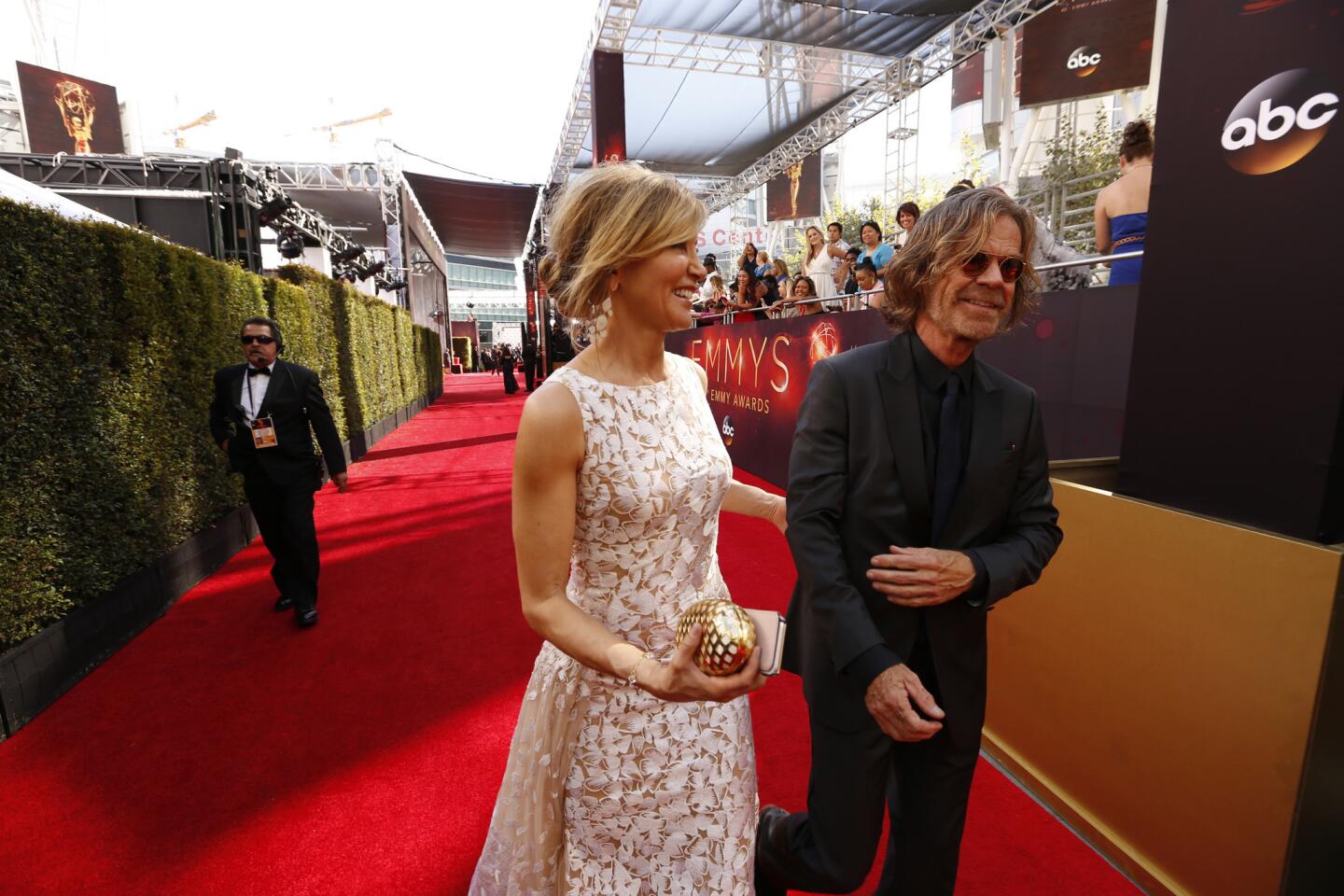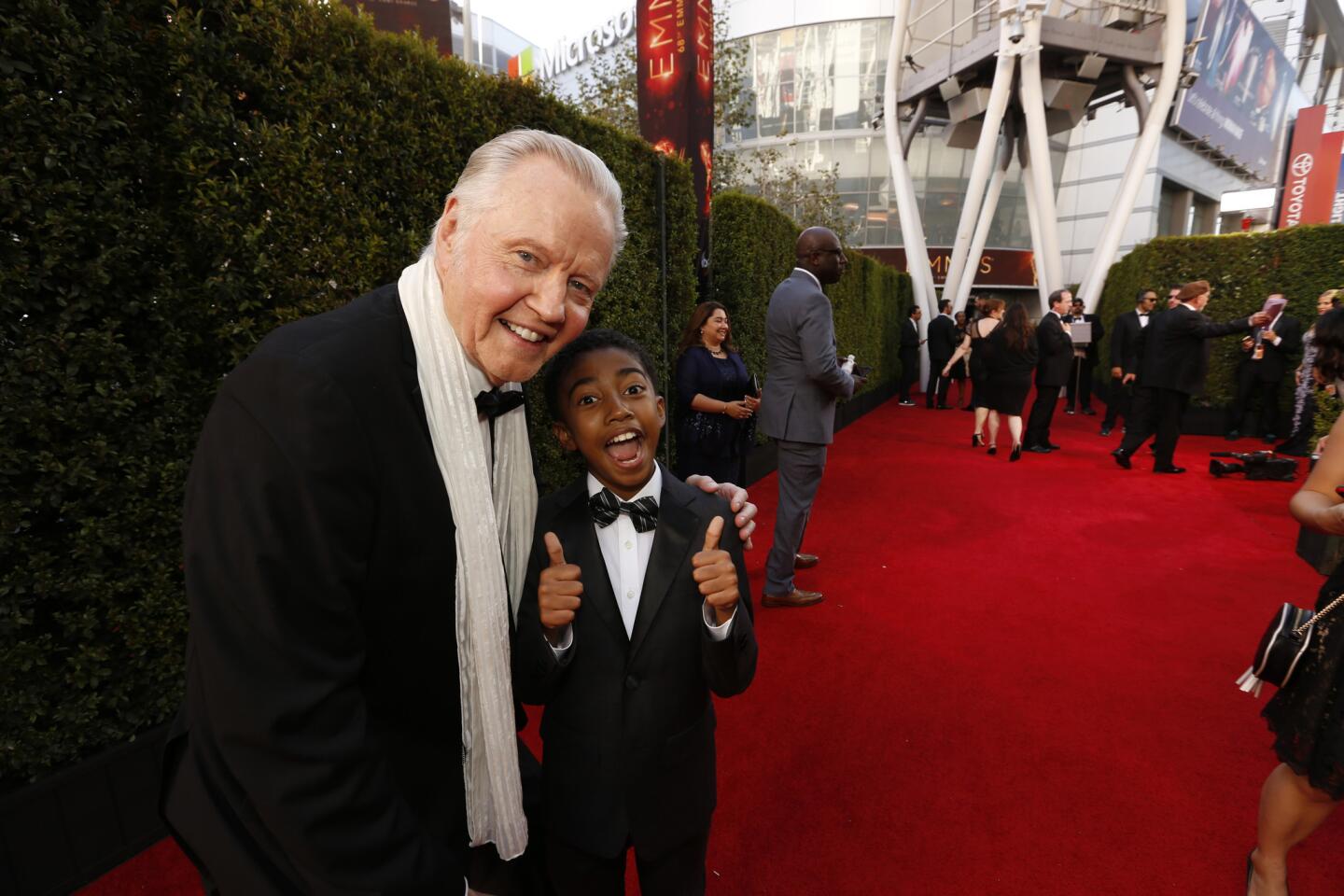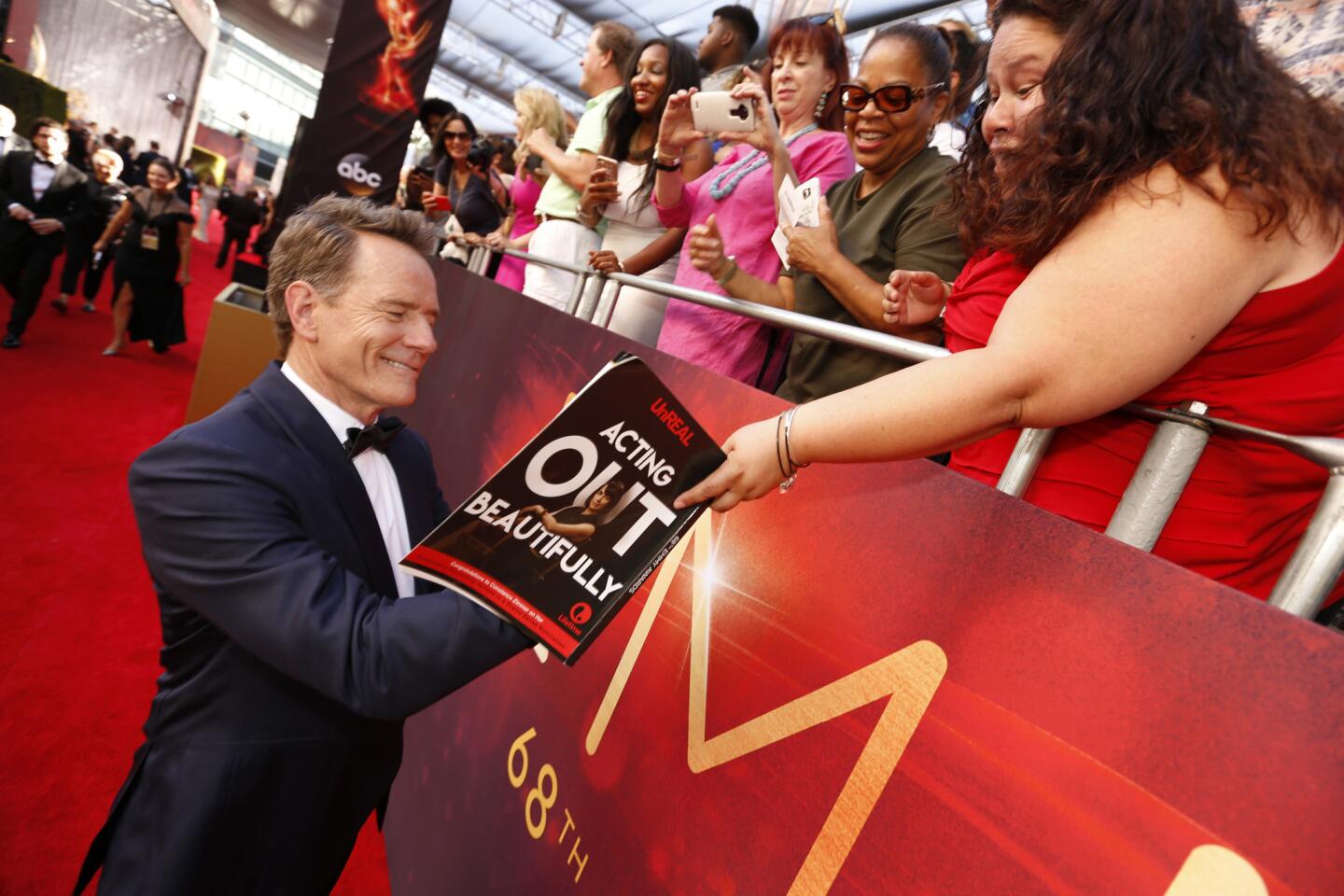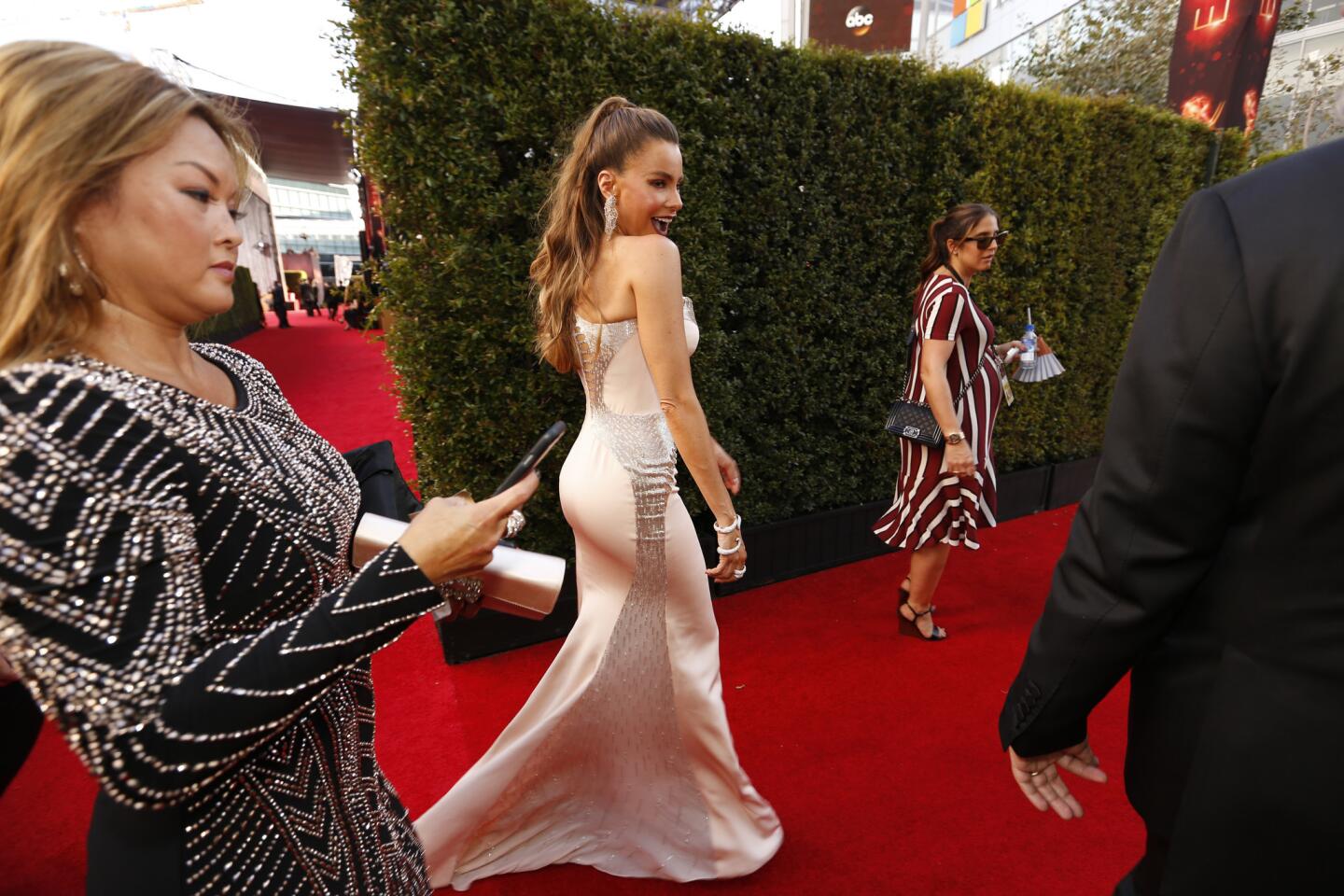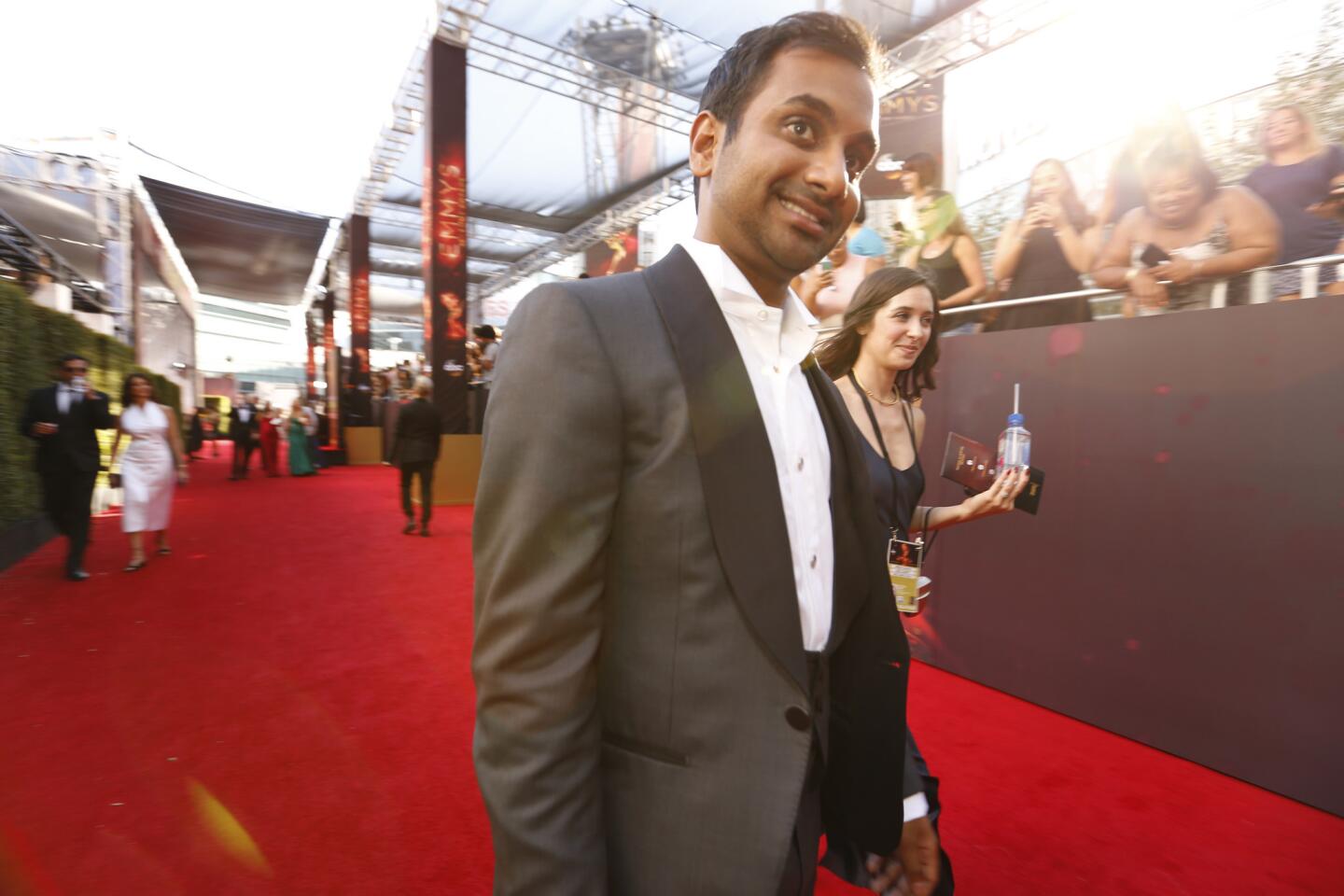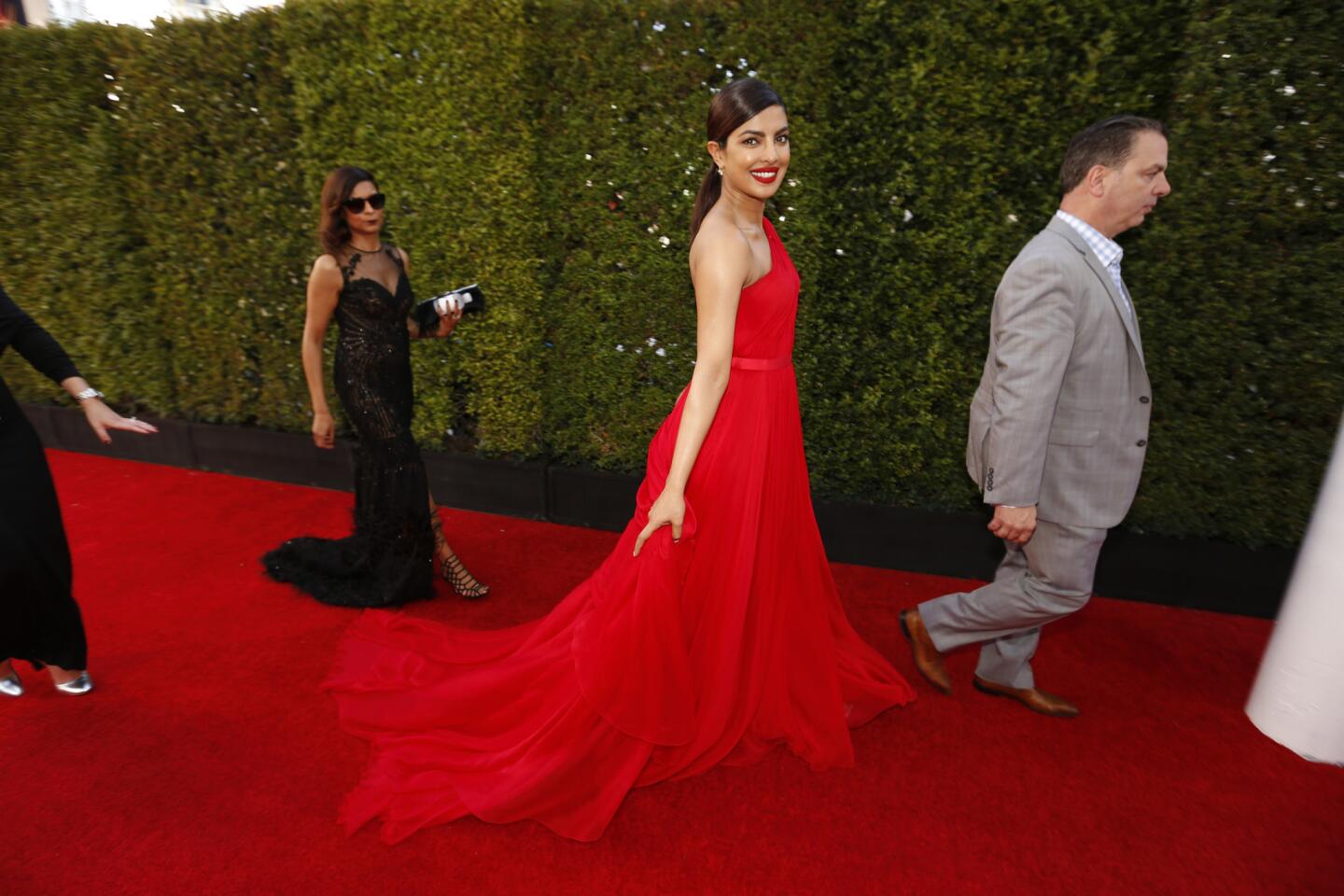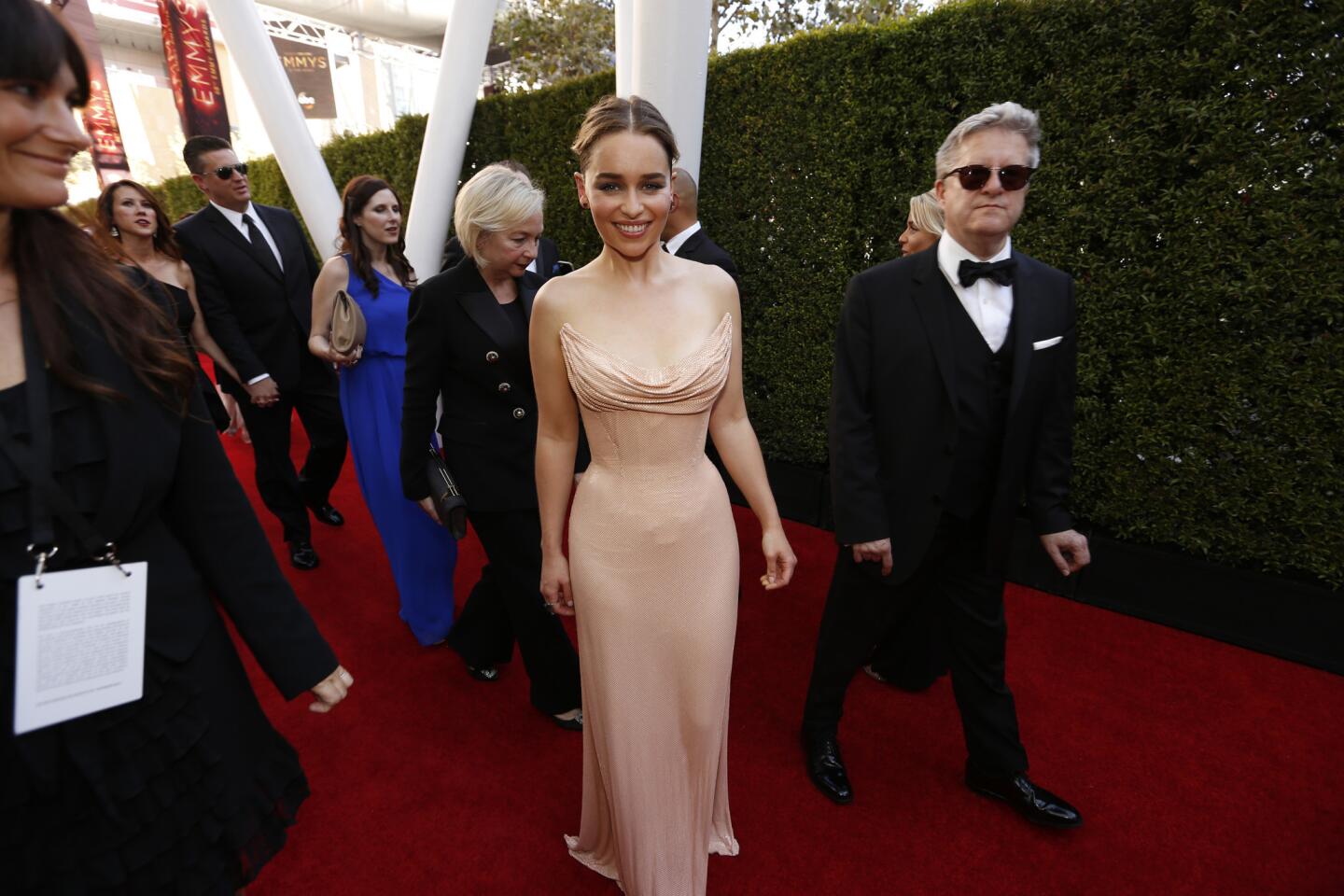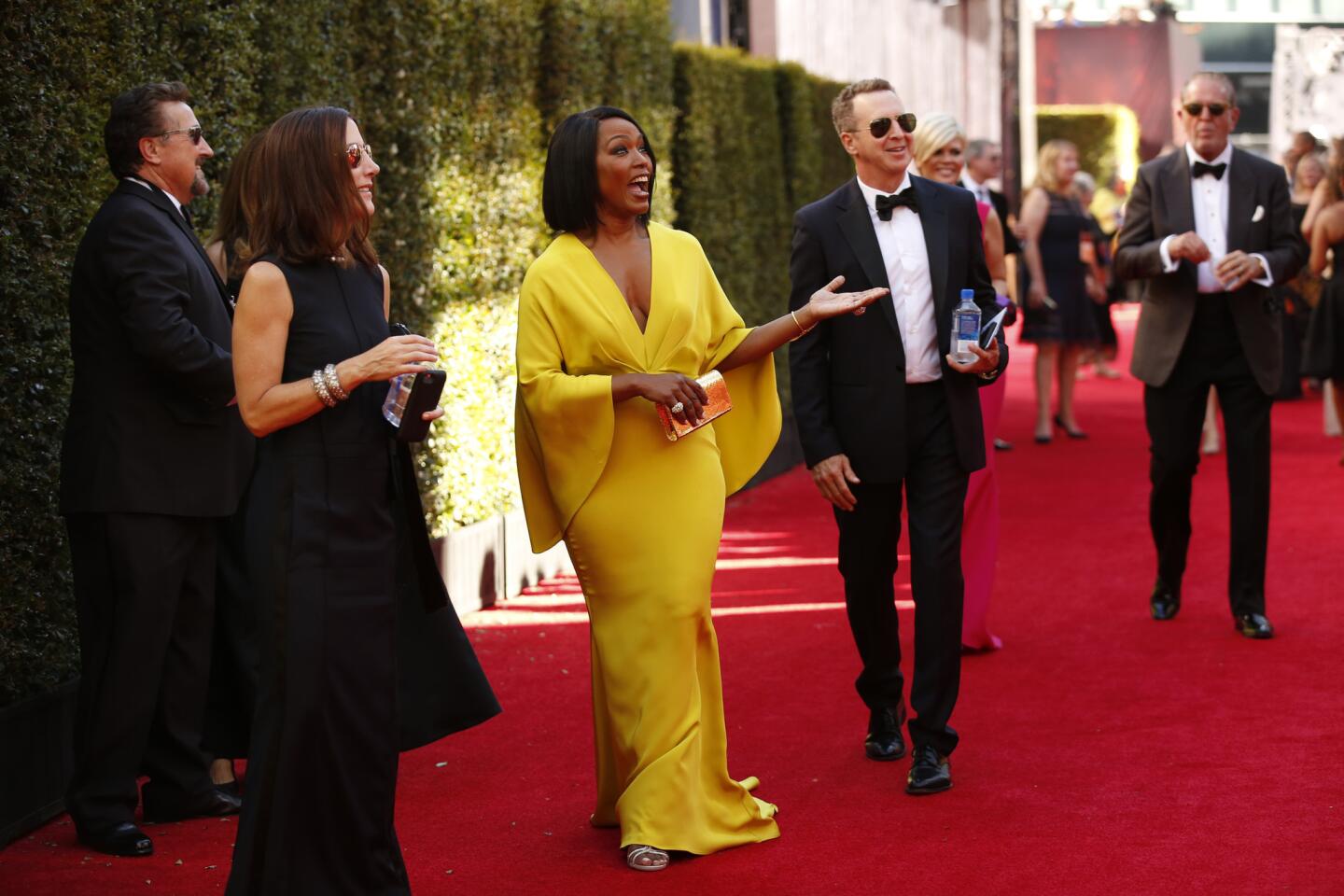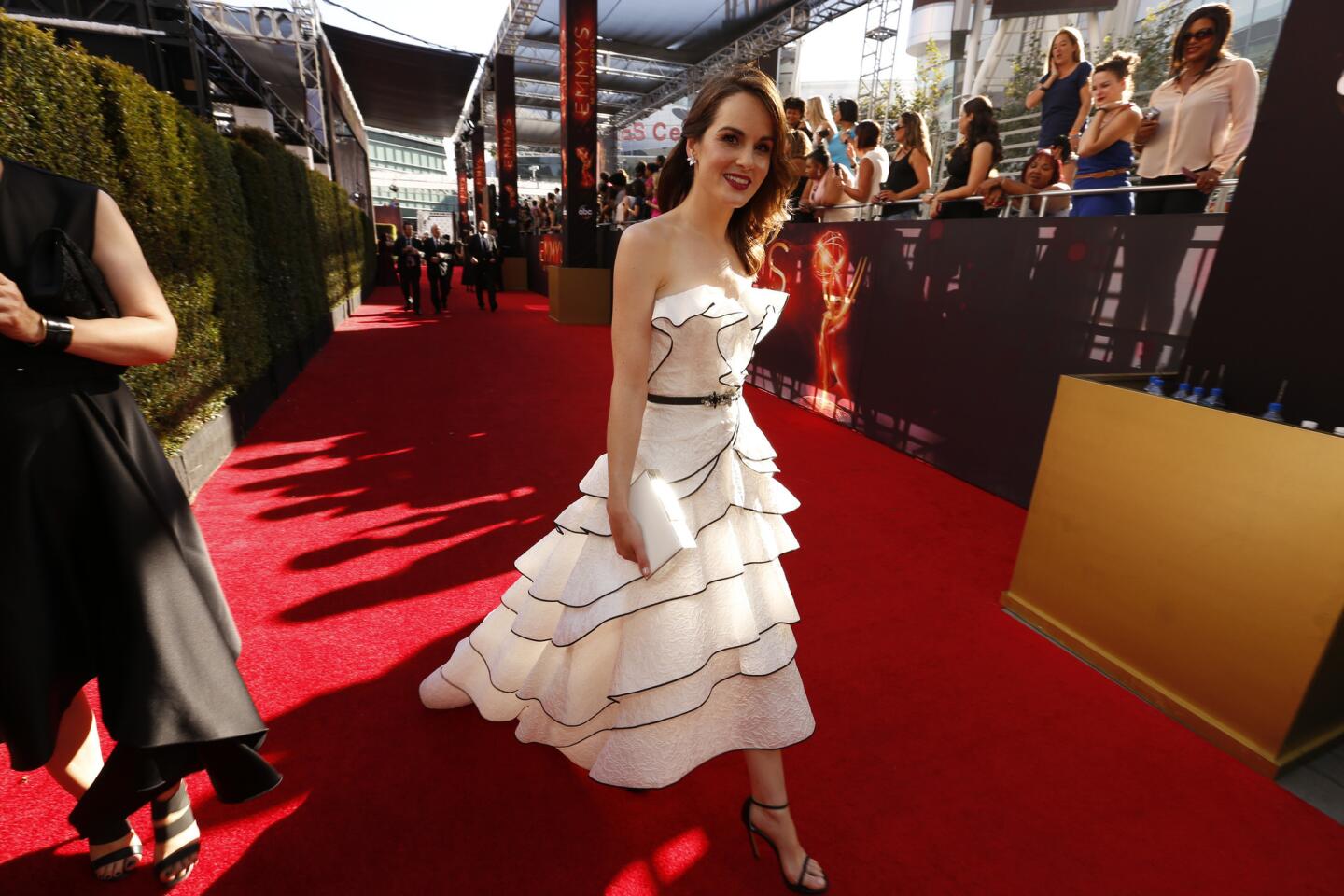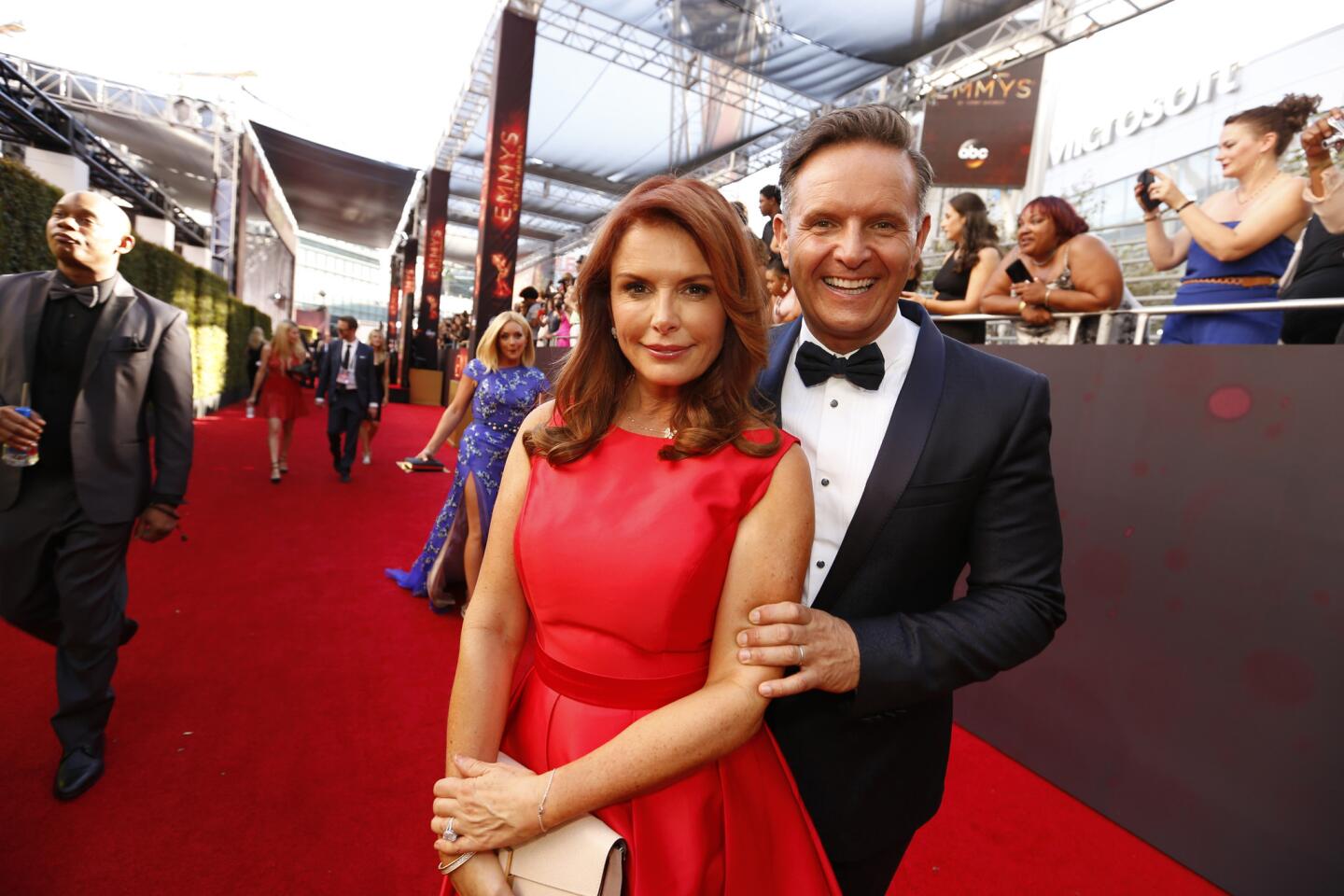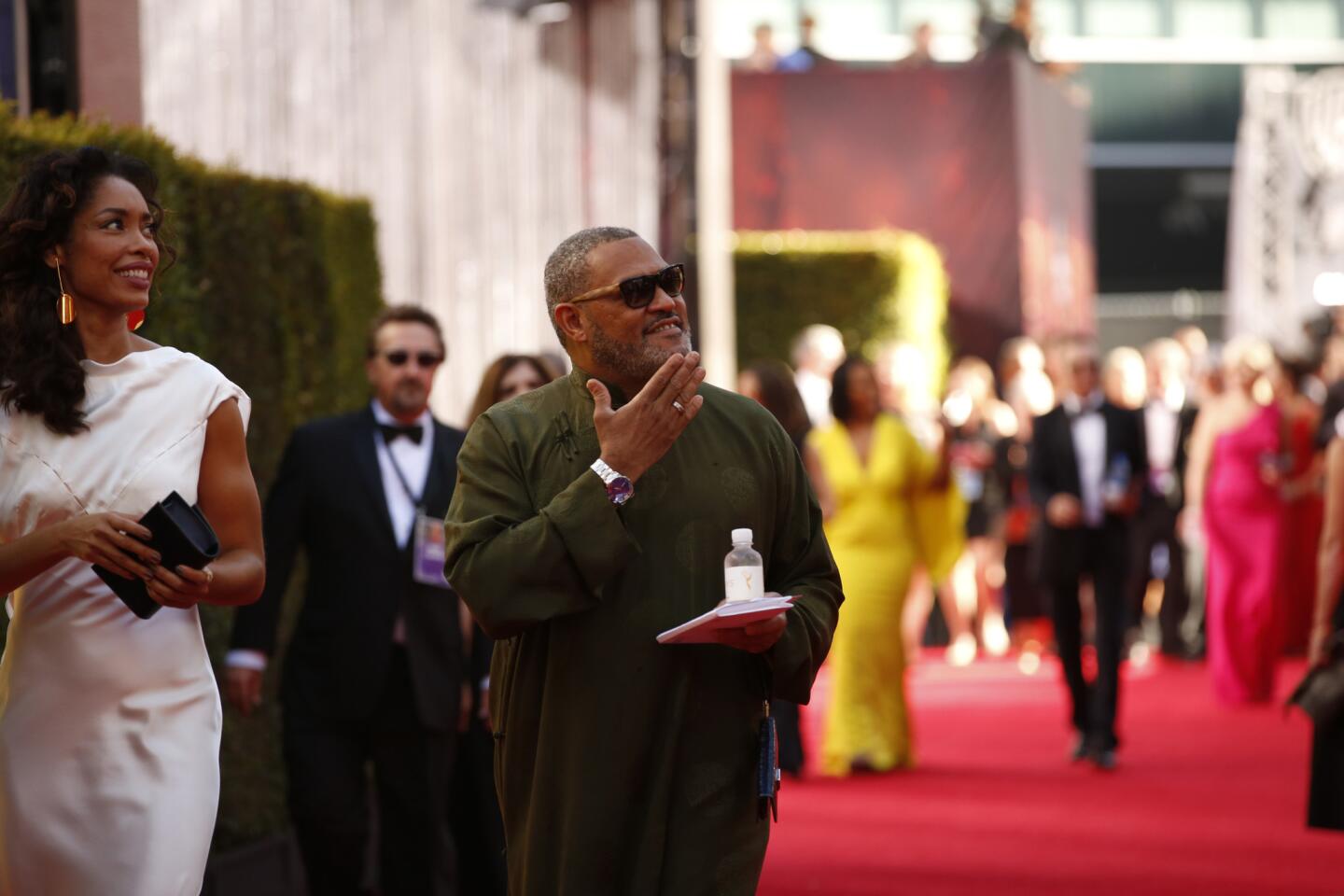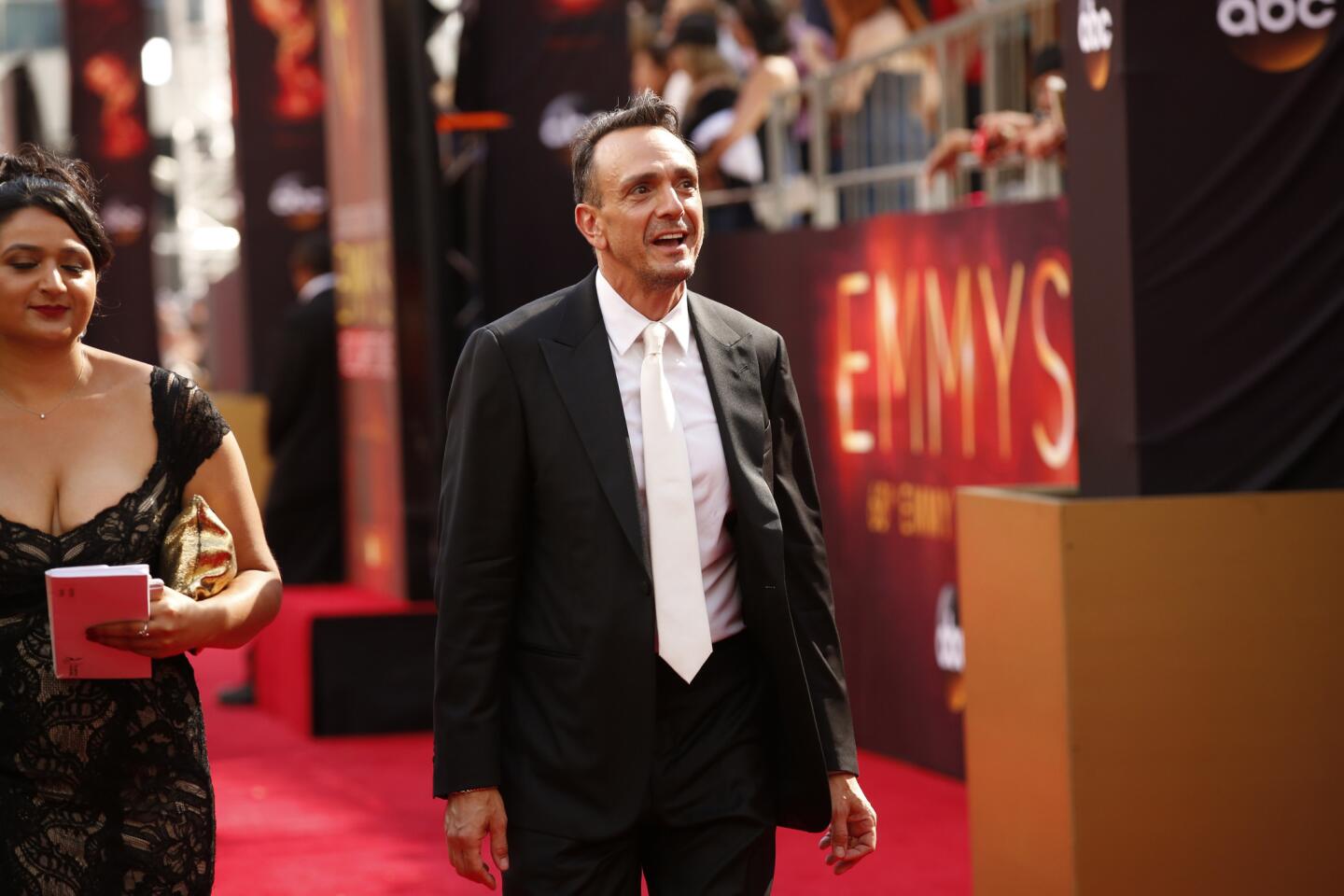It was Sarah Paulson’s moment — but it belonged just as much to Marcia Clark.
Paulson had just won the Emmy for lead actress in a limited series or movie for her portrayal of the former L.A. County prosecutor in FX’s “The People v. O.J. Simpson: American Crime Story,” and she used her time onstage to both thank and apologize to Clark, who failed to win a conviction in the case.
More than two decades ago, the Simpson trial provided a flashpoint on race, criminal justice, domestic violence and celebrity while offering punchlines galore.
On Sunday night at the Emmys, all those elements were again on display — along with a rare moment of public vindication.
1/48
D.B. Weiss at the microphone and David Benioff, at left of Weiss, accept the Emmy for Drama Series for “Game of Thrones” with the cast and crew.
(Robert Gauthier / Los Angeles Times) 2/48
The cast and crew of “Veep” celebrate their win for comedy series
(Robert Gauthier / Los Angeles Times) 3/48
Ryan Murphy, left, and John Travolta accept the award for limited series for “The People v. O.J. Simpson: American Crime Story.
(Robert Gauthier / Los Angeles Times) 4/48
Tatiana Maslany accepts the award for lead actress in a drama series for “Orphan Black.”
(Robert Gauthier / Los Angeles Times) 5/48
Rami Malek accepts the award for lead actor in a drama series for “Mr. Robot.” (Robert Gauthier / Los Angeles Times )
6/48
The ‘In memoriam’ sequence shows Gary Marshall during the show at the 68th Primetime Emmy Awards.
(Robert Gauthier / Los Angeles Times) 7/48
Henry Winkler honors “Happy Days” creator Garry Marshall.
(Kevin Winter / Getty Images) 8/48
Tori Kelly performs “Hallelujah” during an In Memoriam tribute at the Emmy Awards.
(Chris Pizzello / Associated Press) 9/48
“Fresh off the Boat” stars Randall Park and Constance Wu.
(Chris Pizzello / Invision/Associated Press) 10/48
“Empire” star Taraji P. Henson
(Kevin Winter / Getty Images) 11/48
Host Jimmy Kimmel walks away with Maggie Smith’s Emmy, which had been announced by “Speechless” star Minnie Driver and “NCIS” star Michael Weatherly.
(Robert Gauthier / Los Angeles Times) 12/48
“Mr. Robot” star Rami Malek and “Suits” star Abigail Spencer.
(Robert Gauthier / Los Angeles Times) 13/48
Julia Louis-Dreyfus
(Robert Gauthier / Los Angeles Times) 14/48
Jeffrey Tambor accepts the Emmy for Lead Actor in a Comedy Series for his role in “Transparent.”
(Robert Gauthier / Los Angeles Times) 15/48
Directors Thomas Kail, left, and Alex Rudzinski accept the award for directing for a variety special for “Grease: Live.”
(Robert Gauthier / Los Angeles Times) 16/48
“Orange Is the New Black” star Laverne Cox.
(Robert Gauthier / Los Angeles Times) 17/48
Patton Oswalt accepts the award for writing for a variety special for “Patton Oswalt: Talking for Clapping.”
(Kevin Winter / Getty Images) 18/48
Jimmy Kimmel hands out peanut butter and jelly sandwiches made by his mother during the show.
(Robert Gauthier / Los Angeles Times) 19/48
“Braindead” star Margo Martindale and “The Simpsons” star Hank Azaria.
(Robert Gauthier / Los Angeles Times) 20/48
Tim Carvell, left, and John Oliver accept the award for outstanding variety talk series for “Last Week Tonight With John Oliver.”
(Kevin Winter / Getty Images) 21/48
David Benioff, left, and D.B. Weiss accept the award for writing for a drama series for “Game of Thrones.”
(Kevin Winter / Getty Images) 22/48
Matt Damon, left, and Jimmy Kimmel.
(AFP / Getty Images) 23/48
“Downton Abbey” star Michelle Dockery and “Bloodline” star Kyle Chandler.
(Kevin Winter / Getty Images) 24/48
“Unbreakable Kimmy Schmidt” creator Tina Fey, left, and “Maya and Marty” star Amy Poehler.
(Robert Gauthier / Los Angeles Times) 25/48
Courtney B. Vance accepts the award for lead actor in a limited series or movie for “The People vs. O.J. Simpson.”
(Kevin Winter / Getty Images) 26/48
Leslie Jones, right, on stage with Ernst & Young employees.
(Robert Gauthier / Los Angeles Times) 27/48
Sarah Paulson accepts the award for lead actress in a limited series or movie for “The People v. O.J. Simpson. (Robert Gauthier / Los Angeles Times)
28/48
“Homeland” star Claire Danes and “All the Way” star Bryan Cranston.
(Kevin Winter / Getty Images) 29/48
“Superstore” star America Ferrera and “This Is Us” star Mandy Moore.
(Robert Gauthier / Los Angeles Times) 30/48
“American Crime” actress Regina King celebrates her win for supporting actress in a limited series or movie.
(Kevin Winter / Getty Images) 31/48
“American Crime” actress Regina King celebrates her win for supporting actress in a limited series or movie.
(Robert Gauthier / Los Angeles Times) 32/48
“Quantico” star Priyanka Chopra and “The Night Manager” star Tom Hiddleston.
(Kevin Winter / Getty Images) 33/48
Susanne Bier wins directing for a limited series, movie or special for “The Night Manager.”
(Kevin Winter / Getty Images) 34/48
Producer Mark Burnett, center, and the production team for “The Voice” accept the award for reality competition program.
(Kevin Winter / Getty Images) 35/48
“Stranger Things” actor Gaten Matarazzo passes out peanut butter and jelly sandwiches to the audience during the Emmy Awards.
(Kevin Winter / Getty Images) 36/48
Jill Soloway accepts the award for directing in a comedy series for her work on “Transparent.”
(Kevin Winter / Getty Images) 38/48
Jeffrey Tambor accepts the award for lead actor in a comedy series for “Transparent.”
(Kevin Winter / Getty Images) 39/48
“Transparent” actor Jeffrey Tambor, left, accepts the award for lead actor in a comedy series from TV personality James Corden.
(Kevin Winter / Getty Images) 40/48
Aziz Ansari and Alan Yang accept the award for writing for a comedy series for “Master of None.”
(Kevin Winter / Getty Images) 41/48
“Difficult People” actor Joel McHale and “The Good Place” actress Kristen Bell present the award for supporting actress in a comedy.
(Robert Gauthier / Los Angeles Times) 42/48
“Episodes” star Matt LeBlanc and “Modern Family” star Julie Bowen
(Kevin Winter / Getty Images) 43/48
Kate McKinnon accepts the award for supporting actress in a comedy series for her work on “Saturday Night Live.”
(Kevin Winter / Getty Images) 44/48
“Baskets” actor Louie Anderson accepts the award for supporting actor in a comedy series.
(Kevin Winter / Getty Images) 45/48
ABC’s “black-ish” stars Anthony Anderson and Tracee Ellis Ross.
(Kevin Winter / Getty Images) 46/48
Actors Caleb McLaughlin, Millie Bobby Brown and Gaten Matarazzo perform.
(Kevin Winter / Getty Images) 47/48
Jimmy Kimmel opens the 68th annual Primetime Emmy Awards at Microsoft Theater on Sept. 18, 2016 in Los Angeles.
(Kevin Winter / Getty Images) 48/48
The scene inside the 68th Primetime Emmy Awards at the Microsoft Theater in Los Angeles.
(Robert Gauthier / Los Angeles Times) “The more I learned about the real Marcia Clark — not the two-dimensional cardboard cutout I saw on the news but the complicated, whip-smart giant-hearted mother of two who woke up every day, put both feet on the floor and dedicated herself to righting an unconscionable wrong,” Paulson said. She noted that “I, along with the rest of the world, had been superficial and careless in my judgment.”
“I’m sorry,” she added.
As Clark offered a smile and serene nod from her seat — she had come as Paulson’s guest — the moment crystallized just one of the several new perspectives that a belated Hollywood arrival has been able to shine on the case.
“People” won five awards at the Jimmy Kimmel-hosted Emmys, including limited series, on top of the four Creative Arts Emmys it had previously taken home.
But the statuettes were in a way beside the point. At the fore in the Microsoft Theater on Sunday was how the program — along with the ESPN docuseries “O.J.: Made in America,” which will be eligible for Oscars and Emmys in 2017 — furnished a chance to view the murders of Nicole Brown and Ron Goldman through a 21st century lens, a rare do-over of sorts in American culture. Together the two series had helped people re-examine the case from the vantage point of a different, if hardly simpler, racial moment.
FULL COVERAGE: Memorable moments | Red carpet |Show highlights | Winners | Best & worst dressed | Candid photos
It was a Hollywood confection to the core. “People” was developed and executive-produced by industry veterans Scott Alexander and Larry Karaszewski; “Glee” creators Ryan Murphy and Brad Falchuk and “The Hunger Games” backers Nina Jacobson and Brad Simpson also as executive producers. But it demonstrated how fictional creators in this age of the fact-based film can not only turn history into pop-cultural phenomenon, but give it new rigor and context.
The Clark moment on Sunday highlighted the case’s feminist side. It was an aspect that was not heavily discussed during the trial but that emerged more clearly in the series, with Clark portrayed as a crusader for domestic-violence justice and a victim, sometimes, of an anti-feminist agenda.
Backstage Paulson told reporters that she was hoping for a chance to “stand up there with many, many eyeballs on me and say something that I wish the world could hear.”
Race was also thrust to the fore anew. On a night when “Game of Thrones” and “Veep” took the top two prizes, the constant stream of faces of color, from both sides of the Simpson aisle, highlighted race’s linchpin role not only in the show’s on-screen events but its off-screen popularity.
Courtney B. Vance won lead actor in a limited series or movie for playing defense attorney Johnnie Cochran, and Sterling K. Brown was a surprise winner for his portrayal of Cochran adversary Christopher Darden. “Obama out. Hillary in,” Vance said as he left the stage, subtly underscoring how far America had come, at least in one respect, since the days when the most prominent black man in America was famous for very different reasons.
There were, however, other respects. Though Black Lives Matter was not front and center at the Emmys on Sunday, it ran under the show and entwined with its real-life events. The first episode of “People” aired less than three months after controversial video of the Laquan McDonald shooting by Chicago police was revealed, and its finale aired less than three months before the shooting death of Alton Sterling by white police officers in Baton Rouge, La. That made the processing of the O.J. case different, and arguably deeper, than in the 1990’s, when the debate about criminal justice had yet to reach this level of awareness, particularly among whites.
Backstage, Jacobson told reporters that “we saw this trial through the prism of race and class and gender. That conversation, as it pertains to criminal justice system, has only become louder and louder. “
1/34
Louie Anderson gets ready to enter the Microsoft Theater. (Al Seib / Los Angeles Times)
2/34
Tituss Burgess (Al Seib / Los Angeles Times)
3/34
Jamie Brewer (Al Seib / Los Angeles Times)
4/34
Ariel Winter (Al Seib / Los Angeles Times)
5/34
Eric Stonestreet takes a selfie with fans.
(Al Seib / Los Angeles Times) 6/34
Sterling K. Brown and Ryan Michelle Bathe. (Al Seib / Los Angeles Times)
7/34
John Singleton (Al Seib / Los Angeles Times)
8/34
Emily Robinson (Al Seib / Los Angeles Times)
9/34
Jeremy Maguire (Al Seib / Los Angeles Times)
10/34
Nolan Gould (Al Seib / Los Angeles Times)
11/34
Gaten Matarazzo, Millie Bobby Brown and Caleb McLaughlin. (Al Seib / Los Angeles Times)
12/34
Keegan-Michael Key and Elisa Pugliese (Al Seib / Los Angeles Times)
13/34
Jenifer Lewis (Al Seib / Los Angeles Times)
14/34
Regina King and Trevor Jackson (Al Seib / Los Angeles Times)
15/34
Holly Taylor (Al Seib / Los Angeles Times)
16/34
Emily Ratajkowski (Al Seib / Los Angeles Times)
17/34
(L-R) Kelly Preston, John Travolta and Rami Malek.
(Al Seib / Los Angeles Times) 18/34
Sarah Paulson (Al Seib / Los Angeles Times)
19/34
Courtney B. Vance (Al Seib / Los Angeles Times)
20/34
Heidi Klum and Padma Lakshmi
(Al Seib / Los Angeles Times) 21/34
Yara Shahidi (Al Seib / Los Angeles Times)
22/34
Viola Davis gives a wave. (Al Seib / Los Angeles Times )
23/34
William H. Macy and Felicity Huffman are all smiles.
(Al Seib / Los Angeles Times) 24/34
Jon Voight and Miles Brown of “black-ish” pose for a photo.
(Al Seib / Los Angeles Times) 25/34
Bryan Cranston signs an autograph.
(Al Seib / Los Angeles Times) 26/34
Sofia Vergara walks the red carpet.
(Al Seib / Los Angeles Times) 27/34
Aziz Ansari flashes a smile.
(Al Seib / Los Angeles Times) 28/34
Priyanka Chopra glides in a flowing gown.
(Al Seib / Los Angeles Times) 29/34
Emilia Clarke makes her way onto the red carpet.
(Al Seib / Los Angeles Times) 30/34
Angela Bassett arrives in a bright gown.
(Al Seib / Los Angeles Times) 31/34
Michelle Dockery hits the red carpet.
(Al Seib / Los Angeles Times) 32/34
Mark Burnett and Roma Downey mug for the camera.
(Al Seib / Los Angeles Times) 33/34
Laurence Fishburne makes an entrance.
(Al Seib / Los Angeles Times) 34/34
Hank Azaria sports the white-tie-on-white-shirt look.
(Al Seib / Los Angeles Times) But for all the seriousness it was also inevitable that Simpson would enter a more frivolous realm Sunday.
Kimmel, who was not on the air when the trial happened, went to the comedy well early and often, beginning with a pre-recorded parody of the Ford Bronco chase and continuing with a visual gag. “Juice, Juice, Juice,” he said to David Schwimmer, who plays Simpson confidant Robert Kardashian in the show, referring to the character’s frequent use of Simpson’s nickname and the social-media phenomenon that has sprung from it.
He also asked whether John Travolta, who played Robert Shapiro, would thank Simpson if he won, and wondered whether Simpson was watching from his jail cell, where he is serving time because of a different crime.
And addressing Clark, Kimmel said, “This must be very weird for you. Are you rooting for O.J. to win this time?”
The collision of big moments with late-night shtick, though, was in a sense its own encapsulation of the Simpson affair.
“The O.J. trial has always been the perfect embodiment of high and low,” said Jeffrey Toobin, the author on whose 1997 book the “People” series was based, shortly before the Emmys began. . “You could look at it from a tawdry celebrity angle and it was fascinating, but you could also look at it from a high-minded historical perspective and it was fascinating. I think that’s why it has endured so much.”
The re-living of the trial through a television season — and the chance to marinate in its various elements at a Hollywood awards show — would seem to afford a historical perspective a more immediacy-minded pop culture these days rarely offers.
Some experts, however, were quick to caution that the return to the case was not as much a revisiting of history as it was a chance to air out current views.
“People watching these contemporary representations are looking at something different than what people lived through back in the ‘90s. ‘The People v. O.J. Simpson’ is fictional and the documentary has a rather overt political slant to its interpretation of the events and the people responsible,” Todd Boyd, a USC professor who specializes in race and popular culture, wrote in an email.
“So I would disagree that these representations have bridged a divide because you can’t relive that time,” he wrote, adding, “What we have seen this year isow some people have interpreted these events, but the events have been filtered through a contemporary perspective that really tells us more about our present than it does our past.”
Times staff writers Yvonne Villarreal and Jessica Gelt contributed to this report.
See the most-read stories in Entertainment this hour »
On Twitter: @ZeitchikLAT
MORE:
‘People v. O.J. Simpson’ at Emmy awards: A new verdict on the case
HBO and FX reign over the Emmys with ‘Game of Thrones’ and ‘The People v. O.J. Simpson’
Louie Anderson hopes ‘Baskets’ will help people embrace different families instead of labeling them ‘those weirdos’
